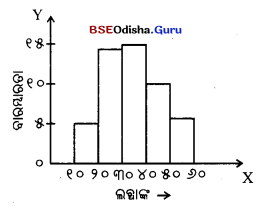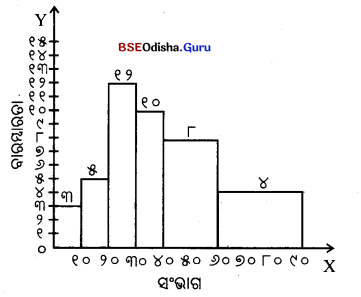Odisha State Board CHSE Odisha Class 11 Political Science Solutions Chapter 14 କାର୍ଯ୍ୟପାଳିକା Questions and Answers.
CHSE Odisha 11th Class Political Science Solutions Chapter 14 କାର୍ଯ୍ୟପାଳିକା
ବସ୍ତୁନିଷ୍ଠ ଓ ଅତିସଂକ୍ଷିପ୍ତ ଉତ୍ତରମୂଳକ ପ୍ରଶ୍ନୋତ୍ତର
(A) ସମ୍ଭାବ୍ୟ ଚାରୋଟି ଉତ୍ତର ମଧ୍ୟରୁ ଠିକ୍ ଉତ୍ତରଟି ବାଛି ଲେଖ ।
୧ । ରାଷ୍ଟ୍ରପତି ଏବଂ ଉପ-ରାଷ୍ଟ୍ରପତି ଏକାସଙ୍ଗରେ ଇସ୍ତଫା ଦେବା ପରିସ୍ଥିତିରେ ___________ ରାଷ୍ଟ୍ରପତି ଦାୟିତ୍ଵ ସଂପାଦନ କରନ୍ତି ।
(କ) ଉଚ୍ଚତମ ନ୍ୟାୟାଳୟର ମୁଖ୍ୟ ବିଚାରପତି
(ଖ) ଉଚ୍ଚ ନ୍ୟାୟାଳୟର ମୁଖ୍ୟ ବିଚାରପତି
(ଗ) ଲୋକସଭାର ବାଚସ୍ପତି
(ଘ) ପ୍ରଧାନମନ୍ତ୍ରୀଙ୍କ ମନୋନୀତ ବ୍ୟକ୍ତି
Answer:
(ଗ) ଲୋକସଭାର ବାଚସ୍ପତି
୨ । କୌଣସି ଗୁରୁତ୍ଵପୂର୍ଣ୍ଣ ଆଇନ କିମ୍ବା ତଥ୍ୟ ବିଷୟରେ ___________ ସର୍ବୋଚ୍ଚ ନ୍ୟାୟାଳୟଙ୍କର ମତାମତ ଲୋଡ଼ିବାର କ୍ଷମତାପ୍ରାପ୍ତ ହୋଇଅଛନ୍ତି ।
(କ) ପ୍ରଧାନମନ୍ତ୍ରୀ
(ଖ) ଉପରାଷ୍ଟ୍ରପତି
(ଗ) ରାଷ୍ଟ୍ରପତି
(ଘ) ବାଚସ୍ପତି
Answer:
(ଗ) ରାଷ୍ଟ୍ରପତି
୩ । ଭାରତର ___________ ଙ୍କ ଦ୍ଵାରା ସର୍ବୋଚ୍ଚ ନ୍ୟାୟାଳୟର ବିଚାରପତିମାନେ ନିଯୁକ୍ତ ଓ ପଦଚ୍ୟୁତ ହୁଅନ୍ତି ।
(କ) ପ୍ରଧାନମନ୍ତ୍ରୀ
(ଖ) ଉପରାଷ୍ଟ୍ରପତି
(ଗ) ରାଷ୍ଟ୍ରପତି
(ଘ) ବାଚସ୍ପତି
Answer:
(ଗ) ରାଷ୍ଟ୍ରପତି

୪ । ___________ ହେଉଛନ୍ତି ପ୍ରତିରକ୍ଷା ବାହିନୀର ସର୍ବୋଚ୍ଚ ସେନାପତି ।
(କ) ପ୍ରଧାନମନ୍ତ୍ରୀ
(ଖ) ଉପରାଷ୍ଟ୍ରପତି
(ଗ) ରାଷ୍ଟ୍ରପତି
(ଘ) ବାଚସ୍ପତି
Answer:
(ଗ) ରାଷ୍ଟ୍ରପତି
୫ । ___________ ହେଉଛନ୍ତି ଯୋଜନା ଆୟୋଗର ଅଧ୍ୟକ୍ଷ ।
(କ) ପ୍ରଧାନମନ୍ତ୍ରୀ
(ଖ) ଉପରାଷ୍ଟ୍ରପତି
(ଗ) ରାଷ୍ଟ୍ରପତି
(ଘ) ବାଚସ୍ପତି
Answer:
(କ) ପ୍ରଧାନମନ୍ତ୍ରୀ
୬ । ଅର୍ଥ ଆୟୋଗ ପ୍ରତି ___________ ବର୍ଷରେ ଗଠିତ ହୁଏ ।
(କ) ଛଅ
(ଖ) ସାତ
(ଗ) ପାଞ୍ଚ
(ଘ) ଆଠ
Answer:
(ଗ) ପାଞ୍ଚ
୭ । ରାଜ୍ୟର ସାମ୍ବିଧାନିକ ମୁଖ୍ୟଙ୍କୁ ___________ କୁହାଯାଏ ।
(କ) ପ୍ରଧାନମନ୍ତ୍ରୀ
(ଖ) ରାଜ୍ୟପାଳ
(ଗ) ରାଷ୍ଟ୍ରପତି
(ଘ) ମୁଖ୍ୟମନ୍ତ୍ରୀ
Answer:
(ଖ) ରାଜ୍ୟପାଳ
୮ । ରାଜ୍ୟପାଳଙ୍କୁ ___________ ନିଯୁକ୍ତ କରନ୍ତି ଓ ପଦଚ୍ୟୁତ ମଧ୍ୟ କରିପାରନ୍ତି ।
କ) ପ୍ରଧାନମନ୍ତ୍ରୀ
(ଖ) ରାଜ୍ୟପାଳ
(ଗ) ରାଷ୍ଟ୍ରପତି
(ଘ) ମୁଖ୍ୟମନ୍ତ୍ରୀ
Answer:
(ଗ) ରାଷ୍ଟ୍ରପତି
୯ । ରାଜ୍ୟପାଳ ହେବା ପାଇଁ ___________ ବର୍ଷ ବୟସ ହୋଇଥିବା ଆବଶ୍ୟକ ।
(କ) ୩୦
(ଖ) ୩୪
(ଗ) ୨୫
(ଘ) ୩୫
Answer:
(ଘ) ୩୫
୧୦ । ___________ ରାଜ୍ୟମାନଙ୍କରେ କେନ୍ଦ୍ରର ପ୍ରତିନିଧ୍ଵଭାବରେ କାର୍ଯ୍ୟ କରନ୍ତି ।
(କ) ପ୍ରଧାନମନ୍ତ୍ରୀ
(ଖ) ରାଜ୍ୟପାଳ
(ଗ) ରାଷ୍ଟ୍ରପତି
(ଘ) ମୁଖ୍ୟମନ୍ତ୍ରୀ
Answer:
(ଖ) ରାଜ୍ୟପାଳ
୧୧ । ___________ ରାଜ୍ୟର ପ୍ରକୃତ କାର୍ଯ୍ୟପାଳିକା ଅଟନ୍ତି ।
(କ) ମନ୍ତ୍ରୀପରିଷଦ ବା ମୁଖ୍ୟମନ୍ତ୍ରୀଙ୍କ ନେତୃତ୍ବରେ ଥିବା ମନ୍ତ୍ରୀପରିଷଦ
(ଖ) ରାଜ୍ୟପାଳ
(ଗ) ଉଚ୍ଚ ନ୍ୟାୟାଳୟର ମୁଖ୍ୟ ବିଚାରପତି
(ଘ) ମୁଖ୍ୟ ସଚିବ
Answer:
(କ) ମନ୍ତ୍ରୀପରିଷଦ ବା ମୁଖ୍ୟମନ୍ତ୍ରୀଙ୍କ ନେତୃତ୍ବରେ ଥିବା ମନ୍ତ୍ରୀପରିଷଦ
୧୨ । ମୁଖ୍ୟମନ୍ତ୍ରୀଙ୍କୁ ___________ ନିଯୁକ୍ତ କରନ୍ତି ।
(କ) ପ୍ରଧାନମନ୍ତ୍ରୀ
(ଖ) ରାଜ୍ୟପାଳ
(ଗ) ରାଷ୍ଟ୍ରପତି
(ଘ) ମୁଖ୍ୟମନ୍ତ୍ରୀ
Answer:
(ଖ) ରାଜ୍ୟପାଳ

୧୪ । ___________ ଚାହିଁଲେ ରାଜ୍ୟପାଳଙ୍କୁ ତାଙ୍କ କାର୍ଯ୍ୟରୁ ଅନ୍ତର କରିଦେଇ ପାରିବେ ।
(କ) ପ୍ରଧାନମନ୍ତ୍ରୀ
(ଖ) ରାଜ୍ୟପାଳ
(ଗ) ରାଷ୍ଟ୍ରପତି
(ଘ) ମୁଖ୍ୟମନ୍ତ୍ରୀ
Answer:
(ଗ) ରାଷ୍ଟ୍ରପତି
୧୫ । ରାଜ୍ୟପାଳ ରାଜ୍ୟର ସମସ୍ତ ବିଶ୍ବବିଦ୍ୟାଳୟଗୁଡ଼ିକର ___________ ଅଟନ୍ତି ।
(କ) କୁଳପତି
(ଖ) ପ୍ରଧାନ ଆଚାର୍ଯ୍ୟ
(ଗ) କୁଳାଧୂପତି
(ଘ) ମୁଖ୍ୟ କାର୍ଯ୍ୟପାଳିକା
Answer:
(ଗ) କୁଳାଧୂପତି
୧୬ । ରାଜ୍ୟର ଆଡ଼ଭୋକେଟ୍ ଜେନେରାଲଙ୍କୁ ___________ ନିଯୁକ୍ତ ଦିଅନ୍ତି ।
(କ) ପ୍ରଧାନମନ୍ତ୍ରୀ
(ଖ) ରାଜ୍ୟପାଳ
(ଗ) ରାଷ୍ଟ୍ରପତି
(ଘ) ମୁଖ୍ୟମନ୍ତ୍ରୀ
Answer:
(ଖ) ରାଜ୍ୟପାଳ
୧୭ । ଅଧ୍ୟାଦେଶ ___________ ସମୟ ପର୍ଯ୍ୟନ୍ତ ବଳବତ୍ତର ରୁହେ ଓ ରାଜ୍ୟରେ ଏହାକୁ ___________ ଜାରି କରନ୍ତି ।
(କ) ୬ ମାସ ଓ ୬ ସପ୍ତାହ; ରାଜ୍ୟପାଳ
(ଖ) ୬ ସପ୍ତାହ; ରାଜ୍ୟପାଳ
(ଗ) ୬ ମାସ; ରାଜ୍ୟପାଳ
(ଘ) ୬ ମାସ, ୬ ସପ୍ତାହ; ମୁଖ୍ୟମନ୍ତ୍ରୀ
Answer:
(କ) ୬ ମାସ ଓ ୬ ସପ୍ତାହ; ରାଜ୍ୟପାଳ
୧୮ । ___________ ବିଧାନସଭାକୁ ଭାଙ୍ଗି ଦେଇପାରନ୍ତି ।
(କ) ପ୍ରଧାନମନ୍ତ୍ରୀ
(ଖ) ରାଜ୍ୟପାଳ
(ଗ) ରାଷ୍ଟ୍ରପତି
(ଘ) ମୁଖ୍ୟମନ୍ତ୍ରୀ
Answer:
(ଖ) ରାଜ୍ୟପାଳ
୧୯ । ରାଜ୍ୟ ରାଜନୈତିକ ସଂକଟକୁ ଦୂର କରିବାପାଇଁ ___________ ଏକ ରାଜନୈତିକ ଅସ୍ତ୍ର ଅଟେ ।
(କ) ଆର୍ଥକ ଜରୁରୀ ପରିସ୍ଥିତି
(ଖ) ରାଷ୍ଟ୍ରପତି ଶାସନ
(ଗ) ଜାତୀୟ ଜରୁରୀ ପରିସ୍ଥିତି
(ଘ) ଅଧ୍ୟାଦେଶ
Answer:
(ଖ) ରାଷ୍ଟ୍ରପତି ଶାସନ
୨୦ । ରାଜ୍ୟପାଳ ___________ ପଦ୍ଧତିରେ ନିଯୁକ୍ତ ହୁଅନ୍ତି ।
(କ) ନିର୍ବାଚନ
(ଖ) ପରୋକ୍ଷ ନିର୍ବାଚନ
(ଗ) ନିଯୁକ୍ତି ପରୀକ୍ଷା
(ଘ) ମନୋନୟନ
Answer:
(ଘ) ମନୋନୟନ
୨୧ । ବିଧାନସଭାକୁ ଦୂତ ଓ ବାର୍ତ୍ତା ପଠାଇବାର କ୍ଷମତା ___________ ଙ୍କର ରହିଛି ।
(କ) ପ୍ରଧାନମନ୍ତ୍ରୀ
(ଖ) ରାଜ୍ୟପାଳ
(ଗ) ରାଷ୍ଟ୍ରପତି
(ଘ) ମୁଖ୍ୟମନ୍ତ୍ରୀ
Answer:
(ଖ) ରାଜ୍ୟପାଳ
୨୨ । ରାଜ୍ୟ ପବ୍ଲିକ୍ ସର୍ଭିସ କମିଶନର ସଭ୍ୟ ଓ ଚେୟାରମ୍ୟାନ୍ଙ୍କୁ ___________ ନିଯୁକ୍ତ କରନ୍ତି ।
(କ) ପ୍ରଧାନମନ୍ତ୍ରୀ
(ଖ) ରାଜ୍ୟପାଳ
(ଗ) ରାଷ୍ଟ୍ରପତି
(ଘ) ମୁଖ୍ୟମନ୍ତ୍ରୀ
Answer:
(ଖ) ରାଜ୍ୟପାଳ

୨୩ । ___________ ରାଜ୍ୟ ମନ୍ତ୍ରୀସଭାର ସଦସ୍ୟମାନଙ୍କୁ ପଦ ଗୋପନୀୟତାର ଶପଥପାଠ କରାନ୍ତି ।
(କ) ପ୍ରଧାନମନ୍ତ୍ରୀ
(ଖ) ରାଜ୍ୟପାଳ
(ଗ) ରାଷ୍ଟ୍ରପତି
(ଘ) ମୁଖ୍ୟମନ୍ତ୍ରୀ
Answer:
(ଖ) ରାଜ୍ୟପାଳ
୨୪ । ରାଜ୍ୟର ___________ ଙ୍କ ପୂର୍ବ ଅନୁମୋଦନ ନ ଥିଲେ, କୌଣସି ଅର୍ଥବିଲ୍ ସଂପୃକ୍ତ ରାଜ୍ୟର ବିଧାନସଭାରେ ଉପସ୍ଥାପନ କରାଯାଇପାରିବ ନାହିଁ ।
(କ) ପ୍ରଧାନମନ୍ତ୍ରୀ
(ଖ) ରାଜ୍ୟପାଳ
(ଗ) ରାଷ୍ଟ୍ରପତି
(ଘ) ମୁଖ୍ୟମନ୍ତ୍ରୀ
Answer:
(ଖ) ରାଜ୍ୟପାଳ
୨୫ । ରାଜ୍ୟ ମନ୍ତ୍ରୀପରିଷଦ ସାମୂହିକଭାବରେ ସଂପୃକ୍ତ ରାଜ୍ୟର ___________ ନିକଟରେ ଉତ୍ତରଦାୟୀ ।
(କ) ଲୋକସଭା
(ଖ) ବିଧାନସଭା
(ଗ) ରାଜ୍ୟସଭା
(ଘ) ମୁଖ୍ୟମନ୍ତ୍ରୀ
Answer:
(ଖ) ବିଧାନସଭା
୨୬ । ରାଜ୍ୟର ରାଜ୍ୟପାଳ ___________ ସମୟରେ ଅଧ୍ୟାଦେଶ ଜାରି କରନ୍ତି ।
(କ) ବିଧାନସଭାର ଅଧୂବେଶନ ବସି ନଥୁବା ଓ ଜରୁରୀ ଆବଶ୍ୟକତା
(ଖ) ଜରୁରୀ ପରିସ୍ଥିତି
(ଗ) ପ୍ରାକୃତିକ
(ଘ) ମୁଖ୍ୟମନ୍ତ୍ରୀଙ୍କ ଇସ୍ତଫା
Answer:
(କ) ବିଧାନସଭାର ଅଧୂବେଶନ ବସିନଥୁବା ବା ଜରୁରୀ ଆବଶ୍ୟକତା
୨୭ । ___________ ହେଉଛନ୍ତି ରାଜ୍ୟର ମୁଖ୍ୟ ।
(କ) ପ୍ରଧାନମନ୍ତ୍ରୀ
(ଖ) ରାଜ୍ୟପାଳ
(ଗ) ରାଷ୍ଟ୍ରପତି
(ଘ) ମୁଖ୍ୟମନ୍ତ୍ରୀ
Answer:
(ଖ) ରାଜ୍ୟପାଳ
୨୮ । ___________ କେନ୍ଦ୍ର ମନ୍ତ୍ରୀମଣ୍ଡଳ ବୈଠକରେ ଅଧ୍ୟକ୍ଷତା କରନ୍ତି ।
(କ) ରାଷ୍ଟ୍ରପତି
(ଖ) ବାଚସ୍ପତି
(ଗ) ପ୍ରଧାନମନ୍ତ୍ରୀ
(ଘ) କେନ୍ଦ୍ରୀ ଗୃହମନ୍ତ୍ରୀ
Answer:
(ଗ) ପ୍ରଧାନମନ୍ତ୍ରୀ
୨୯ । ___________ ଙ୍କୁ “ପ୍ରାଇମସ୍ ଇଣ୍ଟର ପ୍ୟାରସ୍’’ କୁହାଯାଏ ଯାହାର ଆକ୍ଷରିକ ଅର୍ଥ ___________ ।
(କ) ରାଷ୍ଟ୍ରପତି, ସମାନ
(ଖ) ମୁଖ୍ୟମନ୍ତ୍ରୀ; ଗୁରୁତ୍ଵପୂର୍ଣ୍ଣ ପଦବୀ
(ଗ) ପ୍ରଧାନମନ୍ତ୍ରୀ ବା ମୁଖ୍ୟମନ୍ତ୍ରୀ; ସମାସ୍କନ୍ଧ ବ୍ୟକ୍ତିଙ୍କ ମଧ୍ୟରେ ପ୍ରଥମ
(ଘ) ବାଚସ୍ପତି; ଅସମାନ
Answer:
(ଗ) ପ୍ରଧାନମନ୍ତ୍ରୀ ବା ମୁଖ୍ୟମନ୍ତ୍ରୀ; ସମାସ୍କନ୍ଧ ବ୍ୟକ୍ତିଙ୍କ ମଧ୍ୟରେ ପ୍ରଥମ
୩୦ । ‘ଇଣ୍ଟର ଷ୍ଟେଲାସ୍ ଲୁନା ମାଇନୋରସ୍’ ପଦର ଅର୍ଥ ___________ ।
(କ) କ୍ଷୁଦ୍ର ତାରକାମାନଙ୍କ ମଧ୍ୟରେ ଚନ୍ଦ୍ର
(ଖ) ସୂର୍ଯ୍ୟ ଚାରିପାଖରେ ଗ୍ରହ
(ଗ) ସମାସ୍କନ୍ଧ ବ୍ୟକ୍ତିଙ୍କ ମଧ୍ୟରେ ପ୍ରଥମ
(ଘ) ରାଷ୍ଟ୍ରରୂପକ ଜାହାଜର ଚାଳକ
Answer:
(କ) କ୍ଷୁଦ୍ର ତାରକାମାନଙ୍କ ମଧ୍ୟରେ ଚନ୍ଦ୍ର

୩୧ । ଭାରତରେ ପ୍ରତିରକ୍ଷା ବାହିନୀର ସର୍ବୋଚ୍ଚ କମାଣ୍ଡର କିଏ ?
(କ) ପଦାତିକ ସେନାମୁଖ୍ୟ
(ଖ) ନୌସେନା ମୁଖ୍ୟ
(ଗ) ବାୟୁସେନା ମୁଖ୍ୟ
(ଘ) ରାଷ୍ଟ୍ରପତି
Answer:
(ଘ) ରାଷ୍ଟ୍ରପତି
(B) ନିମ୍ନୋକ୍ତ ପଦକୁ ବୁଝାଇ ଲେଖ ।
୧ । ଅଧ୍ୟାଦେଶ କାହାକୁ କହନ୍ତି ?
Answer:
ସଂସଦର ଅଧୂବେଶନ ଚାଲି ନଥିବା ସମୟରେ କୌଣସି ଆଇନର ଆବଶ୍ୟକତା ପଡ଼ିଲେ ରାଷ୍ଟ୍ରପତି ଯେଉଁ ଜରୁରୀ ଆଇନ ପ୍ରଣୟନ କରନ୍ତି ତାକୁ ଅଧ୍ୟାଦେଶ କୁହାଯାଏ ।
୨ । ଅନାସ୍ଥା ପ୍ରସ୍ତାବ କ’ଣ ?
Answer:
ବିରୋଧୀ ଦଳ କାର୍ଯ୍ୟରତ ମନ୍ତ୍ରୀମଣ୍ଡଳକୁ କାର୍ଯ୍ୟରୁ ଅନ୍ତର ପାଇଁ ଏକ ପ୍ରସ୍ତାବ ଲୋକସଭାରେ ଆଗତ କରନ୍ତି । ଯଦି ଏହା ଅର୍ଦ୍ଧେକରୁ ଊର୍ଦ୍ଧ୍ବ ସଭ୍ୟଙ୍କଦ୍ବାରା ଗୃହୀତ ହୁଏ ତାହେଲେ ମନ୍ତ୍ରୀମଣ୍ଡଳର ପତନ ଅଟେ । ଏହି ପ୍ରସ୍ତାବକୁ ଅନାସ୍ଥା ପ୍ରସ୍ତାବ କୁହାଯାଏ ।
୩ । ‘ପ୍ରାଇମସ୍ ଇଣ୍ଟର ପ୍ୟାରେସ୍’ ର ଅର୍ଥ କ’ଣ ?
Answer:
‘ପ୍ରାଇମସ୍ ଇଣ୍ଟର ପ୍ୟାରେସ୍’ର ଅର୍ଥ ହେଉଛି ସମାସ୍କନ୍ଧ ବ୍ୟକ୍ତିମାନଙ୍କ ମଧ୍ୟରେ ପ୍ରଥମ । ସଂସଦୀୟ ଶାସନରେ ପ୍ରଧାନମନ୍ତ୍ରୀ ଓ ମୁଖ୍ୟମନ୍ତ୍ରୀଙ୍କୁ ତାଙ୍କ ମନ୍ତ୍ରୀମଣ୍ଡଳର ସଦସ୍ୟମାନଙ୍କ ତୁଳନାରେ ଏହି ଉକ୍ତିର ପ୍ରୟୋଗ କରାଯାଏ ।
୪ । ଗୋଟିଏ ରାଜ୍ୟରେ ସାମ୍ବିଧାନିକ ବ୍ୟବସ୍ଥାର ବିଫଳତା ହେଲେ କ’ଣ ହୁଏ ?
କିମ୍ବା, ରାଷ୍ଟ୍ରପତି ଶାସନ କ’ଣ ?
Answer:
ଗୋଟିଏ ରାଜ୍ୟର ସାମ୍ବିଧାନିକ ବ୍ୟବସ୍ଥାର ବିଫଳତା ହୋଇଛି ବୋଲି ରାଜ୍ୟର ରାଜ୍ୟପାଳ ବା ଅନ୍ୟସୂତ୍ରରୁ ସଂଗୃହୀତ ତଥ୍ୟ ଉପରେ ରାଷ୍ଟ୍ରପତିଙ୍କର ହୃଦ୍ବୋଧ ହେଲେ ୩୫୬ ଧାରା ଅନୁଯାୟୀ ସେ ରାଜ୍ୟ ଜରୁରୀ ପରିସ୍ଥିତି ବା ରାଷ୍ଟ୍ରପତି ଶାସନ ଜାରି କରନ୍ତି ।
୫ । ମିଳିତ ମନ୍ତ୍ରିମଣ୍ଡଳ କ’ଣ ?
Answer:
ଏକାଧ୍ଯକ ରାଜନୈତିକ ଦଳ ମିଳିତଭାବରେ ଯେଉଁ ମନ୍ତ୍ରୀମଣ୍ଡଳ ଗଠନ କରନ୍ତି ତାକୁ ମିଳିତ ମନ୍ତ୍ରୀମଣ୍ଡଳ କୁହାଯାଏ ।
୬ । ନ୍ୟାୟିକ ପୁନରବଲୋକନ (Judicial Review)କ୍ଷମତା କ’ଣ ?
Answer:
ନ୍ୟାୟିକ ପୁନରବଲୋକନ ଉଚ୍ଚତମ ଓ ଉଚ୍ଚ ନ୍ୟାୟାଳୟ ପାଖରେ ଏକ ବିଶେଷ କ୍ଷମତା ଯାହାର ଉପଯୋଗ କରି ବ୍ୟବସ୍ଥାପିକା ଓ କାର୍ଯ୍ୟପାଳିକାର କାର୍ଯ୍ୟ ସମ୍ବିଧାନ ବିରୋଧୀ କି ନୁହେଁ ତାହା ପରୀକ୍ଷା କରାଯାଇପାରେ ଏବଂ କୌଣସି କାର୍ଯ୍ୟ ସମ୍ବିଧାନ ବିରୋଧୀ ହେଲେ ତାହାକୁ ଅସିଦ୍ଧ ବା ଅଣସାମ୍ବିଧାନିକ ଘୋଷଣା କରାଯାଇପାରେ ।
(C) ଗୋଟିଏ ଶବ୍ଦ ବା ପଦରେ ଉତ୍ତର ଦିଅ ।
୧ । ରାଷ୍ଟ୍ରପତି କେନ୍ଦ୍ର କାର୍ଯ୍ୟପାଳିକାର କେଉଁ ମୁଖ୍ୟ ଅଟନ୍ତି ?
Answer:
ନାମମାତ୍ର, ସାମ୍ବିଧାନିକ ଓ ଆଳଙ୍କାରିକ ମୁଖ୍ୟ
୨ । କେଉଁ ଜରୁରୀ ପରିସ୍ଥିତି ଅନିର୍ଦ୍ଦିଷ୍ଟ କାଳ ପର୍ଯ୍ୟନ୍ତ ଜାରି ହୋଇପାରିବେ ?
Answer:
ଜାତୀୟ ଓ ଆର୍ଥିକ ଜରୁରୀ ପରିସ୍ଥିତି
୩ । ସଂସଦ ଓ ରାଜ୍ୟ ବିଧାନସଭାର କେଉଁ ସଦସ୍ୟମାନେ ରାଷ୍ଟ୍ରପତି ନିର୍ବାଚନରେ ଅଂଶଗ୍ରହଣ କରିପାରନ୍ତି ନାହିଁ ?
Answer:
ମନୋନୀତ ସଦସ୍ୟ
୪ । ରାଷ୍ଟ୍ରପତି ଓ ଉପରାଷ୍ଟ୍ରପତିଙ୍କ ନିର୍ବାଚନ ପଦ୍ଧତିଟି କ’ଣ ?
Answer:
ସମାନୁପାତିକ ପ୍ରତିନିଧୁତ୍ଵ ଅନୁସାରେ ଏକକ ହସ୍ତାନ୍ତରଣୀୟ ଭୋଟଦାନ ବ୍ୟବସ୍ଥା
୫ । ସଂସଦର ଦୁଇଟି କ୍ରମାଗତ ଅଧୂବେଶନ ମଧ୍ୟରେ ସର୍ବାଧିକ କେତେ ଦିନ ବ୍ୟବଧାନ ରହିପାରିବ ?
Answer:
୬ (ଛଅ) ମାସ
୬ । ସଂସଦର ବିନା ଅନୁମୋଦନରେ ରାଜ୍ୟ ଓ ଆର୍ଥିକ ଜରୁରୀ ପରିସ୍ଥିତି ସର୍ବାଧ୍ଵକ କେତେଦିନ ବଳବତ୍ତର ରହିପାରିବ ?
Answer:
୨ (ଦୁଇ) ମାସ

୭ । ସଂସଦର ବିନା ଅନୁମୋଦନରେ ଜାତୀୟ ଜରୁରୀ ପରିସ୍ଥିତି ସର୍ବାଧିକ କେତେଦିନ କାଏମ ରହେ ?
Answer:
୧ (ଏକ) ମାସ
୮ । ରାଷ୍ଟ୍ରପତି ଓ ଉପରାଷ୍ଟ୍ରପତି ନିର୍ବାଚନ ମାମଲା କେଉଁ ଅଦାଲତରେ ବିଚାର ହୁଏ ?
Answer:
ଉଚ୍ଚତମ ନ୍ୟାୟାଳୟ
୯ । ବ୍ୟବସ୍ଥାପିକାର ସଭ୍ୟ ନ ହୋଇ ଜଣେ ବ୍ୟକ୍ତି ସର୍ବାଧିକ କେତେଦିନ ପର୍ଯ୍ୟନ୍ତ ମନ୍ତ୍ରୀ ହୋଇପାରିବେ ?
Answer:
୬ (ଛଅ) ମାସ
୧୦ । କିଏ ରାଜ୍ୟ ବିଶ୍ଵବିଦ୍ୟାଳଗୁଡ଼ିକର କୁଳାଧୂପତି ରୂପେ କାର୍ଯ୍ୟ କରନ୍ତି ?
Answer:
ରାଜ୍ୟପାଳ
(D) ଭ୍ରମ ସଂଶୋଧନ କର ।
୧ । ମୁଖ୍ୟମନ୍ତ୍ରୀ ଉସ୍ତଫା ଦେଲେ ଆଉ ଜଣେ ମୁଖ୍ୟମନ୍ତ୍ରୀ ନିଯୁକ୍ତ ହୁଅନ୍ତି କିନ୍ତୁ ମନ୍ତ୍ରୀମଣ୍ଡଳରେ କିଛି ପରିବର୍ତ୍ତନ ହୁଏ ନାହିଁ ?
Answer:
ମୁଖ୍ୟମନ୍ତ୍ରୀ ଇସ୍ତଫା ଦେଲେ ମନ୍ତ୍ରୀମଣ୍ଡଳ ଭାଙ୍ଗିଯାଏ ।
୨ । ଏକାଧ୍ଵକ ରାଜ୍ୟ ପାଇଁ ଜଣେ ରାଜ୍ୟପାଳ ରହିପାରିବେ ନାହିଁ ?
Answer:
ଏକା ବା ଏକାଧିକ ରାଜ୍ୟପାଇଁ ଜଣେ ରାଜ୍ୟପାଳ ରହିପାରିବେ ।
୩ । ରାଜ୍ୟପାଳଙ୍କୁ ମୁଖ୍ୟମନ୍ତ୍ରୀ ଶପଥପାଠ କରାନ୍ତି ?
Answer:
ରାଜ୍ୟପାଳଙ୍କୁ ରାଜ୍ୟ ଉଚ୍ଚ ନ୍ୟାୟାଳୟର ମୁଖ୍ୟ ବିଚାରପତି ଶପଥପାଠ କରାନ୍ତି ।
୪ । ଓଡ଼ିଶା ବିଧାନମଣ୍ଡଳ କେବଳ ବିଧାନସଭାକୁ ନେଇ ଗଠିତ ?
Answer:
ଓଡ଼ିଶା ବିଧାନମଣ୍ଡଳ କେବଳ ରାଜ୍ୟପାଳ ଓ ବିଧାନସଭାକୁ ନେଇ ଗଠିତ ।
୫ । ରାଷ୍ଟ୍ରପତି, ଉପରାଷ୍ଟ୍ରପତି ଓ ରାଜ୍ୟପାଳ ପଦବୀ ପାଇଁ ସର୍ବନିମ୍ନ ବୟସ ୩୦ ବର୍ଷ ଅଟେ ?
Answer:
ରାଷ୍ଟ୍ରପତି, ଉପରାଷ୍ଟ୍ରପତି ଓ ରାଜ୍ୟପାଳ ପଦବୀ ପାଇଁ ସର୍ବନିମ୍ନ ବୟସ ୩୫ ବର୍ଷ ଅଟେ ।
୬ । ରାଷ୍ଟ୍ରପତିଙ୍କ ମୁଖ୍ୟ ପରାମର୍ଶଦାତା ହେଉଛନ୍ତି ତାଙ୍କର ସଚିବ ?
Answer:
ରାଷ୍ଟ୍ରପତିଙ୍କ ମୁଖ୍ୟ ପରାମର୍ଶଦାତା ହେଉଛନ୍ତି ପ୍ରଧାନମନ୍ତ୍ରୀ ।
୭ । ଜାତୀୟ ଜରୁରୀ ପରିସ୍ଥିତି ସମୟରେ ୨୦ ଓ ୨୧ ଧାରା ମଧ୍ୟ ବାତିଲ ହୁଏ ?
Answer:
ଜାତୀୟ ଜରୁରୀ ପରିସ୍ଥିତି ସମୟରେ ୨୦ ଓ ୨୧ ଧାରା ବାତିଲ ହୁଏ ନାହିଁ ।
୮ । ବର୍ତ୍ତମାନ ପର୍ଯ୍ୟନ୍ତ ଓଡ଼ିଶାରେ ୧୦ଥର ରାଷ୍ଟ୍ରପତି ଶାସନ ଜାରି କରାଯାଇଛି ?
Answer:
ବର୍ତ୍ତମାନ ପର୍ଯ୍ୟନ୍ତ ଓଡ଼ିଶାରେ ୬(ଛଅ) ଥର ରାଷ୍ଟ୍ରପତି ଶାସନ ଜାରି କରାଯାଇଛି ?
୯ । ଉପରାଷ୍ଟ୍ରପତିଙ୍କ ବିରୁଦ୍ଧରେ ମହାଭିଯୋଗ ପ୍ରସ୍ତାବ ସଂସଦର ଯେକୌଣସି ଗୃହରେ ପ୍ରଥମେ ଆଗତ କରାଯାଇପାରିବ ?
Answer:
ଉପରାଷ୍ଟ୍ରପତିଙ୍କ ବିରୁଦ୍ଧରେ ମହାଭିଯୋଗ ପ୍ରସ୍ତାବ ସଂସଦର ଉଚ୍ଚ ସଦନ ଅର୍ଥାତ୍ ରାଜ୍ୟସଭାରେ ପ୍ରଥମେ ଆଗତ କରାଯାଇପାରିବ ।
୧୦ । ଉପରାଷ୍ଟ୍ରପତି ରାଜ୍ୟସଭାର ଅଧ୍ୟକ୍ଷଭାବେ କୌଣସି ଦରମା ପାଆନ୍ତି ନାହିଁ ?
Answer:
ଉପରାଷ୍ଟ୍ରପତି ଭାବେ ସେ କୌଣସି ଦରମା ପାଆନ୍ତି ନାହିଁ ।
(E) ଶୂନ୍ୟସ୍ଥାନ ପୂରଣ କର ।
୧ । ରାଷ୍ଟ୍ରପତିଙ୍କ ମାସିକ ଦରମା ___________ ।
Answer:
୧,୫୦,୦୦୦ ଟଙ୍କା
୨ । ରାଜ୍ୟସଭାର ଅଧ୍ୟକ୍ଷଭାବେ ଉପରାଷ୍ଟ୍ରପତିଙ୍କ ମାସିକ ___________ ଦରମା ପାଆନ୍ତି ।
Answer:
୧, ୨୫,୦୦୦ଟଙ୍କା
୩ । ରାଜ୍ୟପାଳଙ୍କ ମାସିକ ଦରମା ___________ ।
Answer:
୧, ୧୦,୦୦୦ ଟଙ୍କା
୪ । ରାଷ୍ଟ୍ରପତି ଆସନ ଖାଲିପଡ଼ିଲେ ___________ କାର୍ଯ୍ୟକାରୀ ରାଷ୍ଟ୍ରପତି ହିସାବରେ ସର୍ବାଧିକ ___________ ମାସ ପର୍ଯ୍ୟନ୍ତ କାର୍ଯ୍ୟ କରନ୍ତି ?
Answer:
ଉପରାଷ୍ଟ୍ରପତି, ୬(ଛଅ)
୫ । ରାଷ୍ଟ୍ରପତି ଓ ଉପରାଷ୍ଟ୍ରପତିଙ୍କ ବିରୁଦ୍ଧରେ ବହିଷ୍କାର ପ୍ରସ୍ତାବ ଏକ ___________ ଦିନିଆ ନୋଟିସ ମାଧ୍ୟମରେ ସଂସଦରେ ଆସିଥାଏ ?
Answer:
୧୪
୬ । ___________ ଜାତିର ନେତା ହିସାବରେ କାର୍ଯ୍ୟ କରନ୍ତି ।
Answer:
ପ୍ରଧାନମନ୍ତ୍ରୀ
୭ । କ୍ୟାବିନେଟ୍ର ___________ ପରାମର୍ଶ କ୍ରମେ ରାଷ୍ଟ୍ରପତି ଜାତୀୟ ଜରୁରୀ ପରିସ୍ଥିତି ଜାରି କରନ୍ତି ?
Answer:
ଲିଖ୍ତ
୮ । କେନ୍ଦ୍ରମନ୍ତ୍ରୀମଣ୍ଡଳ ___________ ନିକଟରେ ମିଳିତଭାବେ ଉତ୍ତରଦାୟୀ ରୁହେ ।
Answer:
ଲୋକସଭା

ସଂକ୍ଷିପ୍ତ ଉତ୍ତରମୂଳକ ପ୍ରଶ୍ନୋତ୍ତର
(A) ଦୁଇଟି ବାକ୍ୟରେ ଉତ୍ତର ଦିଅ ।
୧ । ଭାରତର ରାଷ୍ଟ୍ରପତିଙ୍କୁ କିଏ ନିର୍ବାଚିତ କରନ୍ତି ?
Answer:
ଲୋକସଭା, ରାଜ୍ୟସଭା ଓ ବିଭିନ୍ନ ରାଜ୍ୟ ବିଧାନସଭାର ନିର୍ବାଚିତ ସଭ୍ୟମାନଙ୍କୁ ନେଇ ଗଠିତ ନିର୍ବାଚକମଣ୍ଡଳୀ ନିଜ ନିର୍ବାଚିତ କରେ ।
୨ । ରାଷ୍ଟ୍ରପତି ପଦବୀ ପାଇଁ ପ୍ରତିଦ୍ଵନ୍ଦିତା କରୁଥିବା ପ୍ରାର୍ଥୀଙ୍କର ସର୍ବନିମ୍ନ ବୟସସୀମା କେତେ ?
Answer:
୩୫ ବର୍ଷ
୩ । କେଉଁ ପଦ୍ଧତିରେ ଭାରତର ରାଷ୍ଟ୍ରପତିଙ୍କୁ ତାଙ୍କ ପଦରୁ ବହିଷ୍କାର କରାଯାଇପାରିବ ?
Answer:
ସଂସଦର ଉଭୟ ଗୃହରେ ରାଷ୍ଟ୍ରପତିଙ୍କ ବହିଷ୍କାର ପାଇଁ ଉଦ୍ଦିଷ୍ଟ ମହାଭିଯୋଗ ପ୍ରସ୍ତାବ ଆବଶ୍ୟକ ସଂଖ୍ୟାଗରିଷ୍ଠ ସମର୍ଥନକ୍ରମେ ଗୃହୀତ ହେଲେ ରାଷ୍ଟ୍ରପତିଙ୍କୁ ତାଙ୍କ ପଦରୁ ବହିଷ୍କାର କରାଯାଇପାରିବ ।
୪ । ଅର୍ଥ କମିଶନଙ୍କୁ କିଏ ନିଯୁକ୍ତ କରନ୍ତି ?
Answer:
ଅର୍ଥ କମିଶନଙ୍କ ରାଷ୍ଟ୍ରପତି ନିଯୁକ୍ତ କରନ୍ତି ।
୫ । ପଦବୀରେ ଥାଇ ରାଷ୍ଟ୍ରପତି ପ୍ରାଣତ୍ୟାଗ କଲେ କ’ଣ ହୁଏ ?
Answer:
ପଦବୀରେ ଥାଇ ରାଷ୍ଟ୍ରପତି ପ୍ରଣତ୍ୟାଗ କଲେ ଉପରାଷ୍ଟ୍ରପତି ରାଷ୍ଟ୍ରପତି ଆସନ ଅଳଙ୍କୃତ କରନ୍ତି ।
୬ । ସଂସଦର ମିଳିତ ଅଧୂବେଶନ କିଏ ଆହ୍ବାନ କରନ୍ତି ?
Answer:
ରାଷ୍ଟ୍ରପତି ସଂସଦର ମିଳିତ ଅଧୂବେଶନ ଆହ୍ଵାନ କରନ୍ତି ।
୭ । କେଉଁ ଧାରା ଅନୁସାରେ ଆର୍ଥକ ଜରୁରୀ ପରିସ୍ଥିତି ଘୋଷଣା କରାଯାଇପାରିବ ?
Answer:
ସମ୍ବିଧାନର ୩୬୦ ଧାରା ଅନୁସାରେ ଆର୍ଥିକ ଜରୁରୀ ପରିସ୍ଥିତି ଘୋଷଣା କରାଯାଇପାରିବ ।
୮ । ସର୍ବଶେଷଥର କେଉଁ ବର୍ଷ ରାଷ୍ଟ୍ରପତି ଜାତୀୟ ଜରୁରୀ ପରିସ୍ଥିତି ଜାରି କରିଥିଲେ ?
Answer:
୧୯୭୫ ମସିହାରେ ଶେଷଥର ପାଇଁ ରାଷ୍ଟ୍ରପତି ଜାତୀୟ ଜରୁରୀ ପରିସ୍ଥିତି ଜରି କରିଥିଲେ ।
୯ । ଉପରାଷ୍ଟ୍ରପତିଙ୍କୁ ବହିଷ୍କାର ବା କାର୍ଯ୍ୟରୁ ଅନ୍ତର କରିବାପାଇଁ ପ୍ରସ୍ତାବ ଆଗତ କରିବା ନିମନ୍ତେ ଏକଚାଟିଆ ଅଧୁକାର ସଂସଦର କେଉଁ ସଦନର ଅଛି ?
Answer:
ଉପରାଷ୍ଟ୍ରପତିଙ୍କୁ ବହିଷ୍କାର ବା କାର୍ଯ୍ୟରୁ ଅନ୍ତର କରିବାପାଇଁ ପ୍ରସ୍ତାବ ଆଗତ କରିବା ନିମନ୍ତେ ସଂସଦର ଉଚ୍ଚ ସଦନ ବା ରାଜ୍ୟସଭାର ଏକଚାଟିଆ ଅଧିକାର ଅଛି ।
୧୦ । ଉପରାଷ୍ଟ୍ରପତି ଯେତେବେଳେ ରାଷ୍ଟ୍ରପତି ଦାୟିତ୍ବ ତୁଲାଇଥାଆନ୍ତି ସେହି ସମୟରେ କିଏ ରାଜ୍ୟସଭାର ଅଧ୍ୟକ୍ଷଭାବେ କାର୍ଯ୍ୟ କରନ୍ତି ?
Answer:
ଉପରାଷ୍ଟ୍ରପତି ଯେତେବେଳେ ରାଷ୍ଟ୍ରପତି ଦାୟିତ୍ଵ ତୁଲାନ୍ତି ସେହି ସମୟରେ ରାଜ୍ୟ ସଭାର ଉପାଧ୍ୟକ୍ଷ ରାଜ୍ୟସଭାର ଅଧ୍ୟକ୍ଷଭାବରେ କାର୍ଯ୍ୟ କରନ୍ତି ।
୧୧ । ମନ୍ତ୍ରୀମଣ୍ଡଳର ପ୍ରଧାନ କାର୍ଯ୍ୟ କ’ଣ ?
Answer:
ରାଷ୍ଟ୍ରପତିଙ୍କୁ ତାଙ୍କ କାର୍ଯ୍ୟରେ ସାହାଯ୍ୟ ଓ ପରାମର୍ଶ ଦେବା ହେଉଛି ମନ୍ତ୍ରୀମଣ୍ଡଳର ପ୍ରଧାନ କାର୍ଯ୍ୟ ।
୧୨ । ମନ୍ତ୍ରୀମଣ୍ଡଳ ଓ ରାଷ୍ଟ୍ରପତିଙ୍କ ମଧ୍ୟରେ କିଏ ଯୋଗସୂତ୍ର ରକ୍ଷା କରନ୍ତି ?
Answer:
ମନ୍ତ୍ରୀମଣ୍ଡଳ ଓ ରାଷ୍ଟ୍ରପତିଙ୍କ ମଧ୍ୟରେ ପ୍ରଧାନମନ୍ତ୍ରୀ ଯୋଗସୂତ୍ର ରକ୍ଷା କରିଥା’ନ୍ତି ।
୧୩ । କୌଣସି କାରଣରୁ ମନ୍ତ୍ରୀମାନଙ୍କ ମଧ୍ୟରେ ବିବାଦ ଉପୁଜିଲେ କିଏ ସମାଧାନ କରିଥାଆନ୍ତି ?
Answer:
ମନ୍ତ୍ରୀମାନଙ୍କ ମଧ୍ୟରେ କୌଣସି କାରଣରୁ ବିବାଦ ଉପୁଜିଲେ ପ୍ରଧାନମନ୍ତ୍ରୀ ତା’ର ସମାଧାନ କରିଥାଆନ୍ତି ।
୧୪ । କିଏ ମନ୍ତ୍ରିମଣ୍ଡଳର ଆକାର ନିର୍ଣ୍ଣୟ କରି ମନ୍ତ୍ରୀମାନଙ୍କ ମଧ୍ୟରେ ବିଭାଗ ବଣ୍ଟନ କରନ୍ତି ?
Answer:
ପ୍ରଧାନମନ୍ତ୍ରୀ ମନ୍ତ୍ରୀମଣ୍ଡଳର ଆକାର ନିର୍ଣ୍ଣୟ କରି ମନ୍ତ୍ରୀମାନଙ୍କ ମଧ୍ୟରେ ବିଭାଗ ବଣ୍ଟନ କରନ୍ତି ।
୧୫ । ବଜେଟ୍ କାହାକୁ କୁହାଯାଏ ?
Answer:
ବାର୍ଷିକ ଆୟବ୍ୟୟର ଅଟକଳକୁ ବଜେଟ୍ କୁହାଯାଏ ।
୧୬ । ରାଜ୍ୟସଭାର କାର୍ଯ୍ୟକାଳ କେତେ ବର୍ଷ ?
Answer:
ରାଜ୍ୟସଭା ଏକ ସ୍ଥାୟୀ ଗୃହ ହୋଇଥିବାରୁ ଏହାର ନିର୍ଦ୍ଦିଷ୍ଟ କାର୍ଯ୍ୟକାଳ ନଥାଏ ।

୧୭ । ରାଜ୍ୟସଭାର ଅଧ୍ୟକ୍ଷଙ୍କୁ କାର୍ଯ୍ୟରୁ ଅନ୍ତର କରିବାପାଇଁ ପ୍ରସ୍ତାବ ଆଗତ କରିବା ନିମନ୍ତେ ଏକାଚାଟିଆ ଅଧିକାର ସଂସଦର କେଉଁ ସଦନର ଅଛି ?
Answer:
ରାଜ୍ୟସଭାର ଅଧ୍ୟକ୍ଷଙ୍କୁ କାର୍ଯ୍ୟରୁ ଅନ୍ତର କରିବାପାଇଁ ପ୍ରସ୍ତାବ ଆଗତ କରିବା ନିମନ୍ତେ ଏକଚାଟିଆ ଅସ୍ଵୀକାର ସଂସଦର ଉଚ୍ଚ ସଦନ ବା ରାଜ୍ୟସଭାର ଅଛି ।
୧୮ । ବିଲ୍ କିପରି ଆଇନରେ ପରିଣତ ହୁଏ ?
Answer:
ସଂସଦର ଉଭୟ ଗୃହର ଅନୁମୋଦନ ଲାଭ କରିଥିବା ବିଲଟି ରାଷ୍ଟ୍ରପତିଙ୍କ ସ୍ବୀକୃତି ପାଇଲା ପାରେ ଆଇନରେ ପରିଣତ ହୁଏ ।
୧୯ । କେଉଁ ବିଧେୟକ କ୍ଷେତ୍ରରେ ରାଷ୍ଟ୍ରପତି ମିଳିତ ବୈଠକ ଡାକି ପାରନ୍ତି ?
Answer:
ସାଧାରଣ ବିଧେୟକ କ୍ଷେତ୍ରରେ ସଂସଦର ଉଭୟ ଗୃହ ମଧ୍ୟରେ ମତବିଭେଦତା ଦେଖାଗଲେ ରାଷ୍ଟ୍ରପତି ଉଭୟ ଗୃହର ମିଳିତ ବୈଠକ ଡାକିପାରନ୍ତି ।
୨୦ । ଭାରତର ମହାନ୍ୟାୟବାଦୀ କହିଲେ କ’ଣ ବୁଝ ?
Answer:
ଭାରତର ମହାନ୍ୟାୟବାଦୀ ପ୍ରଧାନମନ୍ତ୍ରୀଙ୍କ ସୁପାରିସ କ୍ରମେ ରାଷ୍ଟ୍ରପତିଙ୍କଦ୍ୱାରା ନିଯୁକ୍ତ ହୋଇଥା’ନ୍ତି । ସେ କେନ୍ଦ୍ର ସରକାରଙ୍କ ମୁଖ୍ୟ ଅଧ୍ଵବକ୍ତା ଅଟନ୍ତି । ସେ ସରକାରଙ୍କୁ ଆଇନ ସମ୍ପର୍କୀୟ ପରାମର୍ଶ ଓ ସାହାଯ୍ୟ ପ୍ରଦାନ କରନ୍ତି ।
୨୧ । କେନ୍ଦ୍ର ମନ୍ତ୍ରୀମଣ୍ଡଳରେ କେତେ ଶ୍ରେଣୀୟ ମନ୍ତ୍ରୀ ଥାନ୍ତି ଓ କ’ଣ କ’ଣ ?
Answer:
କେନ୍ଦ୍ର ମନ୍ତ୍ରୀମଣ୍ଡଳରେ ସାଧାରଣତଃ ତିନି ଶ୍ରେଣୀର ମନ୍ତ୍ରୀଥା’ନ୍ତି; ଯଥା – କ୍ୟାବିନେଟ୍ ମନ୍ତ୍ରୀ, ରାଷ୍ଟ୍ରମନ୍ତ୍ରୀ ଓ ଉପମନ୍ତ୍ରୀ । ଏତଦ୍ବ୍ୟତୀତ ସଂସଦୀୟ ସଚିବ ନାମରେ ଚତୁର୍ଥ ପ୍ରକାର ମନ୍ତ୍ରୀ ମଧ୍ୟ କେତେକ କ୍ଷେତ୍ରରେ ରହିଥା’ନ୍ତି ।
୨୨ । କୌଣସି ଗୁରୁତ୍ଵପୂର୍ଣ୍ଣ ଆଇନଗତ ପ୍ରଶ୍ନର ସମାଧାନ ପାଇଁ ରାଷ୍ଟ୍ରପତି କାହାର ପରାମର୍ଶ ମାଗିଥାନ୍ତି ?
Answer:
ରାଷ୍ଟ୍ରପତି ୧୪୩ ଧାରାନୁଯାୟୀ ଉଚ୍ଚତମ ନ୍ୟାୟାଳୟର ପରାମର୍ଶ ଲୋଡ଼ନ୍ତି ।
୨୩ । ଗୋଟିଏ ରାଜ୍ୟର ରାଜ୍ୟପାଳଙ୍କଠାରୁ ରିପୋର୍ଟ ନ ପାଇଥିଲେ ମଧ୍ୟ ସେହି ରାଜ୍ୟରେ ରାଷ୍ଟ୍ରପତି ରାଷ୍ଟ୍ରପତି ଶାସନ ଜାରି କରିପାରିବେ କି ?
Answer:
ହଁ, ରାଜ୍ୟପାଳ ଭିନ୍ନ ଅନ୍ୟ ସୂତ୍ରରୁ ପ୍ରାପ୍ତ ତଥ୍ୟ ଉପରେ ରାଷ୍ଟ୍ରପତିଙ୍କର ବିଶ୍ଵାସ ହେଲେ ରାଷ୍ଟ୍ରପତି ସେହି ରାଜ୍ୟରେ ରାଷ୍ଟ୍ରପତି ଶାସନ ଜାରି କରିପାରିବେ ।
୨୪ । ମୁଖ୍ୟ ନିର୍ବାଚନ କମିଶନରଙ୍କୁ କିଏ ନିଯୁକ୍ତ କରନ୍ତି ?
Answer:
ମୁଖ୍ୟ ନିର୍ବାଚନ କମିଶନରଙ୍କୁ ରାଷ୍ଟ୍ରପତି ନିଯୁକ୍ତ କରନ୍ତି ।
୨୫ । ସମ୍ବିଧାନ ସଂଶୋଧନ ଚିଠା-ଆଇନକୁ ରାଷ୍ଟ୍ରପତି ସ୍ବୀକୃତି ପ୍ରଦାନ ରହିତ କରିପାରିବେ କି ?
Answer:
ହଁ, ସମ୍ବିଧାନ ସଂଶୋଧନ ଚିଠା-ଆଇନକୁ ରାଷ୍ଟ୍ରପତି ସ୍ବୀକୃତି ପ୍ରଦାନ ରହିତ କରିପାରିବେ ।
୨୬ । କେଉଁ ସାମ୍ବିଧାନିକ ପଦାଧୂକାରୀ ସଂସଦର ଆଲୋଚନାରେ ଭାଗ ନେଇପାରିବେ, ମାତ୍ର ଭୋଟ ଦାନ କରିପାରିବେ ନାହିଁ ?
Answer:
ଭାରତର ମୁଖ୍ୟ ଅଧ୍ଵବକ୍ତା, ମୁଖ୍ୟ ହିସାବରକ୍ଷକ ଓ ନିରୀକ୍ଷକ ସଂସଦର ଆଲୋଚନାରେ ଭାଗ ନେଇପାରିବେ, ମାତ୍ର ଭୋଟଦାନ କରିପାରିବେ ନାହିଁ ।
୨୭ । ମଧ୍ୟବର୍ତ୍ତୀକାଳୀନ ନିର୍ବାଚନ କହିଲେ କ’ଣ ବୁଝାଏ ?
Answer:
ସଂସଦ ବା ରାଜ୍ୟ ବିଧାନସଭା ପାଇଁ ପ୍ରତି ୫ ବର୍ଷରେ ଥରେ ନିର୍ବାଚନ ଅନୁଷ୍ଠିତ ହୁଏ । କିନ୍ତୁ ୫ ବର୍ଷ ପୂର୍ଣ ହେବା ପୂର୍ବରୁ କୌଣସି କାରଣରୁ ଏକକ ବା ମିଳିତଭାବେ କୌଣସି ରାଜନୈତିକ ଦଳ ମନ୍ତ୍ରୀମଣ୍ଡଳ ଗଠନ କରିନପାରିଲେ କେନ୍ଦ୍ର କ୍ଷେତ୍ରରେ ରାଷ୍ଟ୍ରପତି ଓ ରାଜ୍ୟ କ୍ଷେତ୍ରରେ ରାଜ୍ୟପାଳ ଯଥାକ୍ରମେ ଲୋକସଭା ଓ ବିଧାନସଭା ଭଙ୍ଗ କରି ସାନି ନିର୍ବାଚନ ପାଇଁ ଘୋଷଣା କରନ୍ତି । ଏହି ନିର୍ବାଚନକୁ ମଧ୍ୟବର୍ତୀକାଳୀନ ନିର୍ବାଚନ କୁହାଯାଏ ।
୨୮ । କିଏ ଜାତୀୟ ଉନ୍ନୟନ ପରିଷଦର ଅଧ୍ୟକ୍ଷ ?
Answer:
ପ୍ରଧାନମନ୍ତ୍ରୀ ଜାତୀୟ ଉନ୍ନୟନ ପରିଷଦର ଅଧ୍ୟକ୍ଷ ଅଟନ୍ତି ।
୨୯ । ରାଜ୍ୟସରକାରଙ୍କର ସାମ୍ବିଧାନିକ ମୁଖ୍ୟ କିଏ ?
Answer:
ରାଜ୍ୟସରକାରଙ୍କର ସାମ୍ବିଧାନିକ ମୁଖ୍ୟ ରାଜ୍ୟପାଳ ।
୩୦ । ରାଜ୍ୟରେ ଅଧ୍ୟାଦେଶ ସମ୍ବିଧାନର କେତେ ଧାରା ଅନୁସାରେ ଜାରି ହୁଏ ?
Answer:
ରାଜ୍ୟରେ ଅଧ୍ୟାଦେଶ ସମ୍ବିଧାନର ୨୧୩ ଧାରା ଅନୁସାରେ ରାଜ୍ୟପାଳ ଜାରି କରନ୍ତି ।
୩୧ । ମନ୍ତ୍ରୀମାନଙ୍କ ମଧ୍ୟରେ ବିଭାଗ ବଣ୍ଟନ କିଏ କରେ ?
Answer:
ମୁଖ୍ୟମନ୍ତ୍ରୀ ମନ୍ତ୍ରୀମାନଙ୍କ ମଧ୍ୟରେ ବିଭାଗ ବଣ୍ଟନ କରନ୍ତି ।
୩୨ । ମୁଖ୍ୟମନ୍ତ୍ରୀ କିପରି ନିଯୁକ୍ତି ହୁଅନ୍ତା ?
Answer:
ରାଜ୍ୟପାଳ ବିଧାନସଭାର ସଂଖ୍ୟାଗରିଷ୍ଠ ଦଳର ନେତାଙ୍କୁ ମୁଖ୍ୟମନ୍ତ୍ରୀରୂପେ ନିଯୁକ୍ତ କରନ୍ତି ।

୩୩ । କିଏ ରାଜ୍ୟପାଳଙ୍କୁ ଶପଥପାଠ କରାନ୍ତି ?
Answer:
ରାଜ୍ୟ ଉଚ୍ଚ ନ୍ୟାୟାଳୟର ମୁଖ୍ୟ ବିଚାରପତି ରାଜ୍ୟପାଳଙ୍କୁ ଶପଥପାଠ କରାନ୍ତି ।
୩୪ । ଓଡ଼ିଶା ବିଧାନସଭାର ଅର୍ଥ ବିଧେୟକ ଆଗତ କରିବା ପୂର୍ବରୁ କାହାର ଅନୁମତି ନେବା ଦରକାର ?
Answer:
ଓଡ଼ିଶା ବିଧାନସଭାରେ ଅର୍ଥ ବିଧେୟକ ଆଗତ ପୂର୍ବରୁ ରାଜ୍ୟପାଳଙ୍କ ଅନୁମତି ଦରକାର ।
୩୫ । ସମ୍ବିଧାନର କେତେ ଧାରା ଅନୁସାରେ ରାଜ୍ୟ ପାଇଁ ଜଣେ ରାଜ୍ୟପାଳ ରହିବେ ?
Answer:
ସମ୍ବିଧାନର ୧୫୩ ଧାରା ଅନୁସାରେ ରାଜ୍ୟ ପାଇଁ ଜଣେ ରାଜ୍ୟପାଳ ରହିବେ ।
୩୬ । ରାଜ୍ୟପାଳ କେତେବେଳେ ରାଜ୍ୟର ପ୍ରତ୍ୟକ୍ଷ ଶାସନଭାର ନିଜ ହାତକୁ ନିଅନ୍ତି ?
Answer:
ରାଜ୍ୟପାଳ ରାଜ୍ୟରେ ଜରୁରୀ ପରିସ୍ଥିତି ଜାରି ହୋଇଥିବା ସମୟରେ ରାଜ୍ୟର ପ୍ରତ୍ୟକ୍ଷ ଶାସନଭାର ନିଜ ହାତକୁ ନିଅନ୍ତି ।
୩୭ । କାହାର ଅନୁମୋଦନ ଲାଭ କଲାପରେ ରାଜ୍ୟପାଳଙ୍କଦ୍ୱାରା ଜାରି ହୋଇଥବା ଅଧ୍ୟାଦେଶ ଆଇନର ରୂପ ନିଏ ?
Answer:
ବିଧାନସଭାର ଅନୁମୋଦନ ଲାଭ କଲାପରେ ରାଜ୍ୟପାଳଙ୍କଦ୍ଵାରା ଜାରି ହୋଇଥବା ଅଧ୍ୟାଦେଶ ଆଇନର ରୂପ ନିଏ ।
୩୮ । ରାଜ୍ୟପାଳଙ୍କର ଇଚ୍ଛାଧୀନ କ୍ଷମତା କ’ଣ ?
Answer:
ମନ୍ତ୍ରିମଣ୍ଡଳର ବିନା ପରାମର୍ଶରେ ରାଜ୍ୟପାଳ ସ୍ଵାଧୀନଭାବରେ ଯେଉଁ କ୍ଷମତାଗୁଡ଼ିକୁ ଉପଭୋଗ କରନ୍ତି ତାକୁ ରାଜ୍ୟପାଳଙ୍କର ଇଚ୍ଛାଧୀନ କ୍ଷମତା କୁହାଯାଏ ।
୩୯ । କେଉଁ ବିଲ୍କୁ ରାଜ୍ୟପାଳ ରାଷ୍ଟ୍ରପତିଙ୍କ ଅନୁମୋଦନ ପାଇଁ ସ୍ଥଗିତ ରଖୁଥାଆନ୍ତି ?
Answer:
ଯଦି କୌଣସି ବିଲ୍ ହାଇକୋର୍ଟର ସାମ୍ବିଧାନିକ ମର୍ଯ୍ୟାଦା କ୍ଷୁଣ୍ଣ କରିବାକୁ ଉଦ୍ଦିଷ୍ଟ ଥାଏ ତେବେ ତାକୁ ରାଜ୍ୟପାଳ ରାଷ୍ଟ୍ରପତିଙ୍କ ଅନୁମୋଦନ ପାଇଁ ସ୍ଥଗିତ ରଖୁପାରିବେ ।
୪୦ । ବିଧାନସଭାରେ ମନ୍ତ୍ରୀମଣ୍ଡଳ ବିରୁଦ୍ଧରେ ଅନାସ୍ଥା ପ୍ରସ୍ତାବ ଗୃହୀତ ହେଲେ କ’ଣ ହୁଏ ?
Answer:
ବିଧାନସଭାରେ ମନ୍ତ୍ରୀମଣ୍ଡଳ ବିରୁଦ୍ଧରେ ଅନାସ୍ଥା ପ୍ରସ୍ତାବ ଗୃହୀତ ହେଲେ ମନ୍ତ୍ରୀମଣ୍ଡଳ ଭାଙ୍ଗିଯାଏ ।
୪୧ । ଜଣେ ମୁଖ୍ୟମନ୍ତ୍ରୀ ଇସ୍ତଫା ଦେଲେ କ’ଣ ହୁଏ ?
Answer:
ଜଣେ ମୁଖ୍ୟମନ୍ତ୍ରୀ ଇସ୍ତଫା ଦେଲେ ତାଙ୍କ ମନ୍ତ୍ରୀମଣ୍ଡଳ ଆପେ ଆପେ ଭାଙ୍ଗିଯାଏ ଏବଂ ନୂତନ ମନ୍ତ୍ରୀମଣ୍ଡଳ ଗଠନ ପାଇଁ ସୁଯୋଗ ସୃଷ୍ଟି ହୁଏ ।
୪୨ । ଓଡ଼ିଶାର ପ୍ରଥମ ମୁଖ୍ୟମନ୍ତ୍ରୀ କିଏ ?
Answer:
ଓଡ଼ିଶାର ପ୍ରଥମ ମୁଖ୍ୟମନ୍ତ୍ରୀ ଡ. ହରେକୃଷ୍ଣ ମହତାବ ।
୪୩ । ମନ୍ତ୍ରୀଙ୍କର ମୁଖ୍ୟ ପ୍ରଶାସନିକ ପରାମର୍ଶଦାତା କିଏ ?
Answer:
ମନ୍ତ୍ରୀଙ୍କର ମୁଖ୍ୟ ପ୍ରଶାସନିକ ପରାମର୍ଶଦାତା ସମ୍ପୃକ୍ତ ବିଭାଗର ସଚିବ ଅଟନ୍ତି ।
୪୪ । ବିଧାନସଭାକୁ କିଏ ସୁଗିତ ରଖୁପାରିବେ ?
Answer:
ରାଜ୍ୟପାଳ ବିଧାନସଭାକୁ ସ୍ଥଗିତ ରଖିପାରିବେ ।
୪୫ । ରାଜ୍ୟ ମନ୍ତ୍ରିପରିଷଦ କାହା ନିକଟରେ ଉତ୍ତରଦାୟୀ ରୁହନ୍ତି ?
Answer:
ରାଜ୍ୟ ମନ୍ତ୍ରୀପରିଷଦ ରାଜ୍ୟ ବିଧାନସଭା ନିକଟରେ ଉତ୍ତରଦାୟୀ ରୁହେ ।
୪୬ । ରାଜ୍ୟପାଳ କାହା ନିକଟରେ ଉତ୍ତର ଦାୟୀ ?
Answer:
ରାଜ୍ୟପାଳ ରାଷ୍ଟ୍ରପତିଙ୍କ ନିକଟରେ ଉତ୍ତରଦାୟୀ ରୁହନ୍ତି ।
୪୭ । ବିଧାନସଭାର ସଭ୍ୟ ନଥିବା ଜଣେ ଅଣସଦସ୍ୟ କେତେଦିନ ମନ୍ତ୍ରୀମଣ୍ଡଳରେ ରହିପାରିବେ ?
Answer:
ବିଧାନସଭାର ସଭ୍ୟ ନଥାଇ ଜଣେ ଅଣସଦସ୍ୟ ଅତିବେଶିରେ ୬ ମାସ ପର୍ଯ୍ୟନ୍ତ ମନ୍ତ୍ରିମଣ୍ଡଳରେ ରହିପାରିବେ ।
୪୮ । କେଉଁ ସାଂବିଧାନିକ ପଦାଧ୍ୟାକାରୀ ରାଜ୍ୟ ବିଧାନପାଳିକାରେ ଆଲୋଚନାରେ ଭାଗ ନେଇପାରିବେ, ମାତ୍ର ଭୋଟଦାନ କରିପାରିବେ ନାହିଁ ?
Answer:
ରାଜ୍ୟ ମୁଖ୍ୟ ଅଧ୍ଵବକ୍ତା ରାଜ୍ୟ ବିଧାନପାଳିକାର ଆଲୋଚନାରେ ଭାଗ ନେଇପାରିଲେ ମଧ୍ୟ ଭୋଟଦାନ କରିପାରିବେ ନାହିଁ ।
୪୯ । ସମଗ୍ର ଓଡ଼ିଶାରେ ଥିବା ଓଡ଼ିଶାର ବିଶ୍ଵବିଦ୍ୟାଳୟ ଗୁଡ଼ିକର କୁଳାଧୂପତି କିଏ ?
Answer:
ସମଗ୍ର ଓଡ଼ିଶାରେ ଥିବା ବିଶ୍ଵବିଦ୍ୟାଳୟଗୁଡ଼ିକର କୁଳାଧୂପତି ହେଉଛନ୍ତି ଓଡ଼ିଶାର ରାଜ୍ୟପାଳ ।
୫୦ । ରାଜ୍ୟ ଶାସନରେ କିଏ ମୁଖ୍ୟମନ୍ତ୍ରୀଙ୍କର ପ୍ରଧାନ ପରାମର୍ଶଦାତାରୂପେ କାର୍ଯ୍ୟ କରନ୍ତି ?
Answer:
ରାଜ୍ୟ ଶାସନରେ ରାଜ୍ୟ ମୁଖ୍ୟ ଶାସନସଚିବ ମୁଖ୍ୟମନ୍ତ୍ରୀଙ୍କର ପ୍ରଧାନ ପରାମର୍ଶଦାତାରୂପେ କାର୍ଯ୍ୟ କରନ୍ତି ।

୫୧ । ଆଡ଼ଭୋକେଟ୍ ଜେନେରାଲଙ୍କୁ କିଏ ନିଯୁକ୍ତ କରନ୍ତି ?
Answer:
ଆଡ଼ଭୋକେଟ୍ ଜେନେରାଲଙ୍କୁ ରାଜ୍ୟ ମୁଖ୍ୟମନ୍ତ୍ରୀଙ୍କ ସୁପାରିସ କ୍ରମେ ସଂପୃକ୍ତ ରାଜ୍ୟର ରାଜ୍ୟପାଳ ନିଯୁକ୍ତ କରନ୍ତି ।
(B) ପାଞ୍ଚଗୋଟି ବାକ୍ୟ
ମଧ୍ଯରେ ଉତ୍ତର ଦିଅ ଦିଅ ।
୧ । ରାଷ୍ଟ୍ରପତି କାହିଁକି ପରୋକ୍ଷଭାବରେ ନିର୍ବାଚିତ ହୁଅନ୍ତି ?
Answer:
ଭାରତ ସଂସଦୀୟ ଗଣତନ୍ତ୍ରରେ ପର୍ଯ୍ୟବସିତ । ଏଠାରେ ଜଣେ ନାମକୁମାତ୍ର ମୁଖ୍ୟ ଏବଂ ଅନ୍ୟ ଜଣେ ପ୍ରଧାନମୁଖ୍ୟ ରହିବେ । ଆର୍ଥିକ ସ୍ଥିତି ଦୁର୍ବଳ ହେତୁ ନାମକୁ ମାତ୍ର ମୁଖ୍ୟ ପାଇଁ ଅଧିକ ବ୍ୟୟସାପେକ୍ଷ ହେବା ଠିକ୍ ନୁହେଁ । ଜନବହୁଳତା ଓ ନିରକ୍ଷରତା ପ୍ରଭାବଯୋଗୁଁ ପରୋକ୍ଷ ନିର୍ବାଚନ ହୁଏ । ଉଭୟ ରାଷ୍ଟ୍ରପତି ଓ ପ୍ରଧାନମନ୍ତ୍ରୀ ପ୍ରତ୍ୟକ୍ଷ ନିର୍ବାଚିତ ହେଲେ କ୍ଷମତା ପାଇଁ କଳହ ହୋଇପାରେ ।
୨ । ମହାଭିଯୋଗ ପ୍ରସ୍ତାବ କ’ଣ ?
Answer:
ରାଷ୍ଟ୍ରପତିଙ୍କୁ ସମ୍ବିଧାନ ଲଙ୍ଘନ କରିଥିବା କାରଣରୁ ଶାସନକାର୍ଯ୍ୟରୁ ବହିଷ୍କାର କରିବାପାଇଁ ଯେଉଁ ପ୍ରସ୍ତାବ ଆଗତ କରାଯାଏ ତାକୁ ମହାଭିଯୋଗ ପ୍ରସ୍ତାବ କୁହାଯାଏ । ସମ୍ବିଧାନର ୬୧ ଧାରା ଅନୁସାରେ ସଂସଦର ଯେକୌଣସି ଗୃହରେ ମହାଭିଯୋଗ ପ୍ରସ୍ତାବ ଆଗତ କରାଯାଇପାରେ; ମାତ୍ର ଏହା ପୂର୍ବରୁ ଉକ୍ତ ଗୃହର ମୋଟ ସଭ୍ୟ ସଂଖ୍ୟାର ଏକ-ଚତୁର୍ଥାଂଶ ସଭ୍ୟଙ୍କ ସ୍ଵାକ୍ଷରିତ କ୍ରମେ ଏକ ୧୪ ଦିନିଆ ନୋଟିସ୍ ଜାରି କରାଯିବା ଆବଶ୍ୟକ । ଉକ୍ତ ପ୍ରସ୍ତାବଟି ନିର୍ଦ୍ଦିଷ୍ଟ ଦିନ ଗୋଟିଏ ଗୃହରେ ଆଲୋଚିତ ହୋଇ ଅନ୍ତତଃ ଦୁଇ-ତୃତୀୟାଂଶ ସଭ୍ୟଙ୍କ ସମର୍ଥନ ସହ ଗୃହୀତ ହେଲେ ଏହା ଅନ୍ୟ ସଦନକୁ ପଠାଯାଏ । ଅନ୍ୟ ଗୃହଟି ଅଭିଯୋଗ ସମ୍ପର୍କରେ ଦଦନ୍ତ କରି ଯଦି ଅଭିଯୋଗ ପ୍ରସ୍ତାବଟି ଦୁଇ-ତୃତୀୟାଂଶ ସଭ୍ୟଙ୍କ ସମର୍ଥନ କ୍ରମେ ଗ୍ରହଣ କରେ ତାହେଲେ ରାଷ୍ଟ୍ରପତି କାର୍ଯ୍ୟରୁ ଅନ୍ତର ହୁଅନ୍ତି ।
୩ । ‘ଭାରତର ରାଷ୍ଟ୍ରପତି ନାମକୁ ମାତ୍ର ଶାସନ ମୁଖ୍ୟ’–ବୁଝାଅ ।
Answer:
ଭାରତରେ ସଂସଦୀୟ ଶାସନ ବ୍ୟବସ୍ଥା ପ୍ରଚଳିତ ଥିବାରୁ ରାଷ୍ଟ୍ରପତି କେବଳ ନାମକୁ ମାତ୍ର କେନ୍ଦ୍ର ଶାସନର ମୁଖ୍ୟ ଅଟନ୍ତି । ରାଷ୍ଟ୍ରର ମୁଖ୍ୟ ନେତୃତ୍ଵରେ ପରିଚାଳିତ କେନ୍ଦ୍ର ମନ୍ତ୍ରୀମଣ୍ଡଳର ପରାମର୍ଶ ଅନୁଯାୟୀ ସେ ନିଜର ଦାୟିତ୍ଵ ତୁଲାନ୍ତି । ପ୍ରଧାନମନ୍ତ୍ରୀ ନିଯୁକ୍ତି ଓ ଲୋକସଭା ଭଙ୍ଗ କରିବା ପରି କେତେକ ପରିସ୍ଥିତିରେ ରାଷ୍ଟ୍ରପତିଙ୍କର ସ୍ଵତନ୍ତ୍ର କ୍ଷମତା ଥିଲେ ମଧ୍ୟ ବାସ୍ତବ ଶାସନ କ୍ଷେତ୍ରରେ ସେ ମନ୍ତ୍ରିମଣ୍ଡଳର ପରାମର୍ଶ ବିନା କୌଣସି କାର୍ଯ୍ୟ କରିପାରିବେ ନାହିଁ । ତେଣୁ ରାଷ୍ଟ୍ରପତି ହେଉଛନ୍ତି ରାଷ୍ଟ୍ରର ମୁଖ୍ୟ; ମାତ୍ର ବାସ୍ତବ ଶାସନ କ୍ଷମତା ମନ୍ତ୍ରୀମଣ୍ଡଳ ଉପରେ ନ୍ୟସ୍ତ ହୋଇଥାଏ ।
୪ । ଆଇନ ପ୍ରଣୟନ କ୍ଷେତ୍ରରେ ରାଷ୍ଟ୍ରପତିଙ୍କ ଭୂମିକା ବର୍ଣନା କର ।
Answer:
ସଂସଦର ଅବିଚ୍ଛେଦ୍ୟ ଅଙ୍ଗଭାବରେ ରାଷ୍ଟ୍ରପତି କାର୍ଯ୍ୟ କରନ୍ତି । ସଂସଦରେ ଗୃହୀତ ହୋଇଥିବା ବିଧେୟକଗୁଡ଼ିକ ରାଷ୍ଟ୍ରପତିଙ୍କ ସ୍ବୀକୃତି ଲାଭ କଲାପରେ ଆଇନରେ ପରିଣତ ହୁଏ । ସଂସଦରେ ଗୃହୀତ ହୋଇଥିବା ସାଧାରଣ ବିଧେୟକକୁ ରାଷ୍ଟ୍ରପତି ସ୍ବୀକୃତି ନ ଦେଇ ପୁନର୍ବିଚାରପାଇଁ ଫେରାଇ ଦେଇପାରନ୍ତି । ମାତ୍ର ଉକ୍ତ ବିଧେୟକ ଯଦି ସଂସଦରେ ପୁନର୍ବାର ଗୃହୀତ ହୋଇ ରାଷ୍ଟ୍ରପତିଙ୍କ ନିକଟକୁ ଯାଏ, ତେବେ ସ୍ବୀକୃତି ଦେବାପାଇଁ ବାଧ୍ୟ ଅଟନ୍ତି । ଅଧାଦେଶ ଜାରି କରିବା ରାଷ୍ଟ୍ରପତିଙ୍କର ଅନ୍ୟ ଏକ ଆଇନ ପ୍ରଣୟନ କ୍ଷମତା, ମାତ୍ର ଏହାକୁ ରାଷ୍ଟ୍ରପତି ବ୍ୟବହାର କରନ୍ତି ଯେତେବେଳେ ଆଇନର ଜରୁରୀ ଆବଶ୍ୟକତା ଥାଏ; ମାତ୍ର ସଂସଦ କାର୍ଯ୍ୟରତ ନଥାଏ ।
୫ । ରାଷ୍ଟ୍ରପତିଙ୍କର କି କି ଆର୍ଥିକ କ୍ଷମତା ରହିଛି ?
Answer:
ଆର୍ଥିକ ପ୍ରଶାସନ କ୍ଷେତ୍ରରେ ରାଷ୍ଟ୍ରପତିଙ୍କର ଭୂମିକା ଗୁରୁତ୍ଵପୂର୍ଣ୍ଣ । ତାଙ୍କ ବିନା ଅନୁମୋଦନରେ କୌଣସି ଅର୍ଥ ବିଧେୟକ ଲୋକସଭାରେ ଆଗତ କରାଯାଇପାରିବ ନାହିଁ । ପ୍ରତି ଆର୍ଥିକ ବର୍ଷ ଆରମ୍ଭରେ ରାଷ୍ଟ୍ରପତିଙ୍କ ତରଫରୁ ଅର୍ଥମନ୍ତ୍ରୀ ଆଗାମୀ ବର୍ଷର ଆୟବ୍ୟୟର ଅଟକଳ ବା ବଜେଟ ସଂସଦରେ ଆଗତ କରନ୍ତି । କେନ୍ଦ୍ର ଓ ରାଜ୍ୟ ମଧ୍ୟରେ ଆୟର ସୁଷମ ବଣ୍ଟନପାଇଁ ସେ ପ୍ରତି ପାଞ୍ଚବର୍ଷରେ ଥରେ ଅର୍ଥ ଆୟୋଗ ନିଯୁକ୍ତ କରନ୍ତି । ପାର୍ଲିଆମେଣ୍ଟରେ ବଜେଟ୍ ଗୃହୀତ ହୋଇ ନ ପାରିଲେ ରାଷ୍ଟ୍ରପତି ଅଧ୍ୟାଦେଶ ବଳରେ ଅର୍ଥ ବ୍ୟୟପାଇଁ ଜରୁରୀ ପାଣ୍ଠିରୁ ବରାଦ ଦିଅନ୍ତି ।
୬ । ରାଷ୍ଟ୍ରପତିଙ୍କ ଅଧ୍ୟାଦେଶ କ’ଣ ?
Answer:
ସମ୍ବିଧାନର ୧୨୩ ଧାରା ଅନୁଯାୟୀ ରାଷ୍ଟ୍ରପତି ଅଧ୍ୟାଦେଶ ଜାରି କରନ୍ତି । ପାର୍ଲିଆମେଣ୍ଟର ବୈଠକ ବସି ନ ଥିବାବେଳେ କୌଣସି ଆଇନର ଜରୁରୀ ଆବଶ୍ୟକତା ଅନୁଭୂତ ହେଲେ ରାଷ୍ଟ୍ରପତି ଏହି ଅଧ୍ୟାଦେଶ ଜାରି କରନ୍ତି । ଅଧ୍ୟାଦେଶଟି ଆଇନ ଭଳି କାର୍ଯ୍ୟ କରେ । ପାର୍ଲିଆମେଣ୍ଟର ଅଧିବେଶନ ଆରମ୍ଭ ହେବାଠାରୁ ୬ ସପ୍ତାହ ମଧ୍ୟରେ ଏହା ଅନୁମୋଦିତ ନ ହେଲେ ରଦ୍ଦ ହୋଇଯାଏ ଏବଂ ଅନୁମୋଦିତ ହେଲେ ଆଇନରେ ପରିଣତ ହୁଏ । ରାଷ୍ଟ୍ରପତି ଚାହିଁଲେ ଯେକୌଣସି ସମୟରେ ଅଧ୍ୟାଦେଶକୁ ପ୍ରତ୍ୟାହାର କରିପାରନ୍ତି ।
୭ । ରାଷ୍ଟ୍ରପତି କେଉଁ ପରିସ୍ଥିତିରେ ଆର୍ଥିକ ଜରୁରୀ ପରିସ୍ଥିତି ଘୋଷଣା କରନ୍ତି ?
Answer:
ସମଗ୍ର ଭାରତବର୍ଷରେ ବା କୌଣସି ଅଞ୍ଚଳରେ ଅର୍ଥନୈତିକ ଅସ୍ଥିରତା ବା ଦେବାଳିଆ ପରିସ୍ଥିତି ସୃଷ୍ଟି ହୋଇଛି ବୋଲି ଯଦି ରାଷ୍ଟ୍ରପତିଙ୍କର ହୃଦବୋଧ ହୁଏ, ତେବେ ସମ୍ବିଧାନର ୩୬୦ ଧାରା ଅନୁସାରେ ସେ ଆର୍ଥକ ଜରୁରୀ ପରିସ୍ଥିତି ଘୋଷଣା କରିପାରିବେ । ଜାତୀୟ ଜରୁରୀ ପରିସ୍ଥିତିର ନିୟମ ଅନୁସାରେ ଆର୍ଥିକ ଜରୁରୀ ପରିସ୍ଥିତି ସଂସଦଦ୍ଵାରା ଅନୁମୋଦିତ ହୁଏ ଏବଂ ପ୍ରତି ଛଅ ମାସରେ ଥରେ ଏହାର ମିଆଦ ବୃଦ୍ଧି କରାଯାଇଥାଏ । ଏହା ଘୋଷଣାହେଲେ କେନ୍ଦ୍ର ସରକାର ରାଜ୍ୟ ସରକାରମାନଙ୍କୁ ସେମାନଙ୍କର ଆର୍ଥିକ ବ୍ୟବସ୍ଥାକୁ ସୁପରିଚାଳିତ କରିବାପାଇଁ ଆବଶ୍ୟକୀୟ ନିର୍ଦ୍ଦେଶ ଦେଇଥାଆନ୍ତି । ଏତଦ୍ବ୍ୟତୀତ ଆର୍ଥିକ ପରିସ୍ଥିତିକୁ ସୁଧାରିବାପାଇଁ ରାଷ୍ଟ୍ରପତି ଆବଶ୍ୟକ ମନେକଲେ ସରକାରୀ କର୍ମଚାରୀମାନଙ୍କର ଦରମା ହ୍ରାସ କରିପାରିବେ ।
୮ । ‘ରାଷ୍ଟ୍ରପତି ସମ୍ବିଧାନର ରକ୍ଷକ’ – ବୁଝାଅ ।
Answer:
ରାଷ୍ଟ୍ରମୁଖ୍ୟଭାବରେ ରାଷ୍ଟ୍ରପତି ରାଷ୍ଟ୍ରର ପ୍ରତିନିଧୃତ୍ଵ କରନ୍ତି ଏବଂ ଜନମତର ପ୍ରତିଫଳନ କରୁଥିବା ସମ୍ବିଧାନକୁ ରକ୍ଷା କରନ୍ତି । ପ୍ରଧାନମନ୍ତ୍ରୀ ଦେଶର ପ୍ରକୃତ ଶାସକ ହେଲେ ମଧ୍ୟ କେବଳ ତାଙ୍କ ପ୍ରତି ଆନୁଗତ୍ୟ ପ୍ରକାଶ ନକରି ସମ୍ବିଧାନ ପ୍ରତି ବିଶ୍ଵସ୍ତ ରହି ସମ୍ବିଧାନର ସୁରକ୍ଷା କରିବାପାଇଁ ଶପଥପାଠ କରାନ୍ତି । ପ୍ରଧାନମନ୍ତ୍ରୀ ସମ୍ବିଧାନ ବିରୋଧୀ କାର୍ଯ୍ୟରେ ପରାମର୍ଶ ଦେଲେ ବା ସେହି ପ୍ରକାର କାର୍ଯ୍ୟଲାଗି ରାଷ୍ଟ୍ରପତିଙ୍କୁ ତାକୁ ଉପେକ୍ଷା କରି ସମ୍ବିଧାନର ସୁରକ୍ଷା ଲିପ୍ତ ହେଲେ ଓ ପ୍ରତିରକ୍ଷା ଲାଗି କାର୍ଯ୍ୟ କରିବାର ନୈତିକ ଅଧୁକାର ରାଷ୍ଟ୍ରପତିଙ୍କର ଅଛି । ସେ ସମ୍ବିଧାନର ୬୦ ଧାରା ଅନୁସାରେ ସମ୍ବିଧାନର ରକ୍ଷକ ଅଟନ୍ତି । ସାର୍ବଭୌମତ୍ଵର ଜୀବନ୍ତ ପ୍ରତୀକ ହେଉଛନ୍ତି ରାଷ୍ଟ୍ରପତି ।
୯ । ଉପରାଷ୍ଟ୍ରପତିଙ୍କର କାର୍ଯ୍ୟାବଳୀ ବିଷୟରେ ସଂକ୍ଷେପରେ ଆଲୋଚନା କର ।
Answer:
ଭାରତୀୟ ସମ୍ବିଧାନର ୬୩ ଧାରା ଅନୁସାରେ ଭାରତରେ ଜଣେ ଉପରାଷ୍ଟ୍ରପତି ରହିବାର ବ୍ୟବସ୍ଥା କରାଯାଇଛି । ଉପରାଷ୍ଟ୍ରପତି ରାଜ୍ୟସଭାର ଅଧ୍ୟକ୍ଷ ଅଟନ୍ତି । ସେ ରାଜ୍ୟସଭାର ଅଧ୍ୟକ୍ଷଭାବରେ ଦରମା ଓ ଭତ୍ତା ପାଆନ୍ତି ଏବଂ ଗୃହକାର୍ଯ୍ୟକୁ ପରିଚାଳନା କରନ୍ତି । ରାଷ୍ଟ୍ରପତିଙ୍କର ମୃତ୍ୟୁ, ଇସ୍ତଫା କିମ୍ବା ବହିଷ୍କାର ଆଦି କୌଣସି କାରଣରୁ ରାଷ୍ଟ୍ରପତିଙ୍କ ଆସନ ଖାଲି ପଡ଼ିଲେ ଉପରାଷ୍ଟ୍ରପତି ରାଷ୍ଟ୍ରପତିଙ୍କ ଦାୟିତ୍ଵ ତୁଲାନ୍ତି । ସେ ଖୁବ୍ ବେଶିରେ ଏହି ଦାୟିତ୍ଵ ୬ ମାସ ପର୍ଯ୍ୟନ୍ତ ତୁଲାନ୍ତି । ସେ ବିଦେଶୀ ରାଷ୍ଟ୍ର ଭ୍ରମଣ କରି ସମ୍ପର୍କ ପ୍ରତିଷ୍ଠା କରନ୍ତି ଏବଂ ବହୁ ସାଂସ୍କୃତିକ କାର୍ଯ୍ୟରେ ଯୋଗଦାନ କରନ୍ତି ।
୧୦ । ପ୍ରଧାନମନ୍ତ୍ରୀ ‘ସମକକ୍ଷ ବ୍ୟକ୍ତିମାନଙ୍କ ମଧ୍ୟରେ ପ୍ରଥମ’ – ମନ୍ତବ୍ୟ ଦିଅ ।
Answer:
ପ୍ରଧାନମନ୍ତ୍ରୀ ହେଉଛନ୍ତି ମନ୍ତ୍ରୀମଣ୍ଡଳର ମେରୁଦଣ୍ଡ । ସେ ମନ୍ତ୍ରୀମଣ୍ଡଳର ଗଠନ କରନ୍ତି ଏବଂ ସେମାନଙ୍କର ଅଭିଜ୍ଞତା ଓ କାର୍ଯ୍ୟଦକ୍ଷତାକୁ ବିଚାରକୁ ନେଇ ସେମାନଙ୍କ ମଧ୍ୟରେ ବିଭାଗ ବଣ୍ଟନ କରନ୍ତି । ସେ ମନ୍ତ୍ରୀମଣ୍ଡଳର ପ୍ରତିନିଧୂତ୍ବ କରିବା ସଙ୍ଗେ ସଙ୍ଗେ ମନ୍ତ୍ରୀମଣ୍ଡଳର ସମସ୍ତ ବୈଠକରେ ଅଧ୍ୟକ୍ଷତା କରନ୍ତି । ସେ କ୍ୟାବିନେଟ୍ ପାହ୍ୟାର ମନ୍ତ୍ରୀମାନଙ୍କ ସହ ସମକକ୍ଷ ହୋଇଥିଲେ ମଧ୍ୟ ତାଙ୍କ ହାତମୁଠାରେ ମନ୍ତ୍ରୀମାନଙ୍କର ଜୀବନ ରହିଥାଏ । ବାସ୍ତବରେ ପ୍ରଧାନମନ୍ତ୍ରୀ ହେଉଛନ୍ତି ମନ୍ତ୍ରିମଣ୍ଡଳର ଚାବିକାଠି । ସେଥିପାଇଁ ଯଥାର୍ଥରେ ପ୍ରଧାନମନ୍ତ୍ରୀଙ୍କୁ ‘ସମକକ୍ଷ ବ୍ୟକ୍ତିମାନଙ୍କ ମଧ୍ୟରେ ପ୍ରଥମ’ ବୋଲି କୁହାଯାଇଥାଏ ।
୧୧ । କେନ୍ଦ୍ର ମନ୍ତ୍ରୀମଣ୍ଡଳ କିପରି ଗଠିତ ହୋଇଥାଏ ?
Answer:
ସାଧାରଣ ନିର୍ବାଚନ ପରେ ଲୋକସଭାରେ ସଂଖ୍ୟାଗରିଷ୍ଠତା ହାସଲ କରିଥିବା ଦଳର ଦଳପତିଙ୍କୁ ରାଷ୍ଟ୍ରପତି ପ୍ରଧାନମନ୍ତ୍ରୀରୂପେ ନିଯୁକ୍ତ କରି ମନ୍ତ୍ରୀମଣ୍ଡଳ ଗଠନ କରିବାପାଇଁ ଆହ୍ୱାନ କରନ୍ତି । ପ୍ରଧାନମନ୍ତ୍ରୀଙ୍କ ପରାମର୍ଶ ଅନୁଯାୟୀ ରାଷ୍ଟ୍ରପତି ଅନ୍ୟାନ୍ୟ ମନ୍ତ୍ରୀମାନଙ୍କୁ ନିଯୁକ୍ତ କରନ୍ତି ।
ବାସ୍ତବିକ ପ୍ରଧାନମନ୍ତ୍ରୀ ମନ୍ତ୍ରୀମଣ୍ଡଳର କେନ୍ଦ୍ରବିନ୍ଦୁ ସଦୃଶ । ସେ ବିଭାଗ ବଣ୍ଟନ, ବିଭାଗ ଅଦଳବଦଳ ନିଷ୍ପତ୍ତି ନେଇଥାଆନ୍ତି । ମନ୍ତ୍ରୀମଣ୍ଡଳର ଆକାର ତାଙ୍କ ଉପରେ ନିର୍ଭର କରେ । ସଂସଦର କୌଣସି ଗୃହର ସଭ୍ୟ ହୋଇନଥୁବା ଜଣେ ବ୍ୟକ୍ତିଙ୍କୁ ପ୍ରଧାନମନ୍ତ୍ରୀ ଚାହିଁଲେ ମନ୍ତ୍ରୀମଣ୍ଡଳରେ ସ୍ଥାନ ଦେଇପାରନ୍ତି । ମାତ୍ର ତାଙ୍କୁ ୬ ମାସ ମଧ୍ୟରେ ସଂସଦର ସଦସ୍ୟ ହେବାକୁ ପଡ଼ିବ ।
୧୨ । କ୍ୟାବିନେଟ୍ ଏକଚ୍ଛତ୍ରବାଦ କ’ଣ ?
Answer:
ସଂସଦୀୟ ଗଣତନ୍ତ୍ରରେ ସଂସଦକୁ ଗଣତନ୍ତ୍ରର ହୃତ୍ପିଣ୍ଡ ବୋଲି ବିଚାର କରାଯାଏ । ମାତ୍ର ସଂପ୍ରତି କେତେକ, କାରଣରୁ ସଂସଦ ପରିବର୍ତ୍ତେ କ୍ୟାବିନେଟ୍ର କ୍ଷମତା ବ୍ୟାପକଭାବରେ ବୃଦ୍ଧି ପାଇଥାଏ । କାଳକ୍ରମେ ସଂସଦର କ୍ଷମତା କ୍ୟାବିନେଟ୍ ହାତକୁ ଚାଲିଯିବାରୁ ସଂସଦ ମନ୍ତ୍ରୀମଣ୍ଡଳକୁ ନିୟନ୍ତ୍ରଣ କରିବା ପରିବର୍ତ୍ତେ କ୍ୟାବିନେଟ୍ ସଂସଦକୁ ନିୟନ୍ତ୍ରଣ କରୁଛି | ସଂସଦରେ ସଂଖ୍ୟାଗରିଷ୍ଠତା ଫାଇଦା ଉଠାଇ ଦଳୀୟ ଶୃଙ୍ଖଳା ଓ ସଂସଦୀୟ ସଭ୍ୟମାନଙ୍କର କାର୍ଯ୍ୟବ୍ୟସ୍ତତା ଓ ଅନଭିଜ୍ଞତାର ସୁଯୋଗ ନେଇ କ୍ୟାବିନେଟ ତା’ର ପ୍ରଭାବ ବିସ୍ତାର କରିବାକୁ ସମର୍ଥ ହୋଇପାରିଛି । ତେଣୁ କ୍ୟାବିନେଟ୍ର ଏହି କ୍ଷମତାକୁ କ୍ୟାବିନେଟ୍ର ଏକଚ୍ଛତ୍ରବାଦ କୁହାଯାଏ ।
୧୩ । ମନ୍ତ୍ରୀପରିଷଦର ସାମୂହିକ ଦାୟିତ୍ବ କ’ଣ ?
Answer:
ସମ୍ବିଧାନର ୭୫ (୩) ଧାରା ଅନୁସାରେ ମନ୍ତ୍ରୀମଣ୍ଡଳ ସମସ୍ତ ପ୍ରକାର ସରକାରୀ ନୀତି ଓ କାର୍ଯ୍ୟକ୍ରମ ପାଇଁ ମିଳିତଭାବେ ପାର୍ଲିଆମେଣ୍ଟ ନିକଟରେ ଦାୟୀ । ମନ୍ତ୍ରୀମଣ୍ଡଳ ଗୃହୀତ ନିଷ୍ପତ୍ତିଗୁଡ଼ିକ ପାଇଁ ସାମୂହିକଭାବେ ଦାୟିତ୍ଵ ବହନ କରନ୍ତି; ଯଥା— ମନ୍ତ୍ରୀମାନେ ପାର୍ଲିଆମେଣ୍ଟର ବାହାରେ ଓ ଭିତରେ ଗୋଟିଏ ସଂସ୍ଥାରୂପେ କାର୍ଯ୍ୟ କରନ୍ତି । ପାର୍ଲିଆମେଣ୍ଟରେ ଉଭୟ କକ୍ଷର ସଭ୍ୟମାନେ ଅଧୁବେଶନ ସମୟରେ ବିଭିନ୍ନ ପ୍ରଶ୍ନ ପଚାରନ୍ତି । ମନ୍ତ୍ରୀମାନେ ପ୍ରଶ୍ନଗୁଡ଼ିକର ଉତ୍ତର ଦେବାକୁ ବାଧ୍ୟ । କୌଣସି ମନ୍ତ୍ରୀ ଉତ୍ତର ଦେଇ ନ ପାରିଲେ ପ୍ରଧାନମନ୍ତ୍ରୀ ବା ଅନ୍ୟ ମନ୍ତ୍ରୀମାନେ ମନ୍ତ୍ରୀଙ୍କ ତରଫରୁ ଉତ୍ତର ଦିଅନ୍ତି । ବଜେଟ୍ ପ୍ରସ୍ତାବବେଳେ ବିରୋଧୀ ଦଳମାନଙ୍କଦ୍ଵାରା ଆଗତ କାଟ୍ ପ୍ରସ୍ତାବ ସଂସଦରେ କାଟ ପ୍ରସ୍ତାବ ବିରୋଧୀ ଦଳମାନଙ୍କଦ୍ଵାରା ଗୃହୀତ ହେଲେ ମନ୍ତ୍ରୀମଣ୍ଡଳ ଇସ୍ତଫା ଦିଅନ୍ତି | ମନ୍ତ୍ରୀମଣ୍ଡଳର ସଦସ୍ୟମାନେ ସାଙ୍ଗ ହୋଇ ପହଁରନ୍ତି ଏବଂ ସାଙ୍ଗ ହୋଇ ବୁଡ଼ି ମରନ୍ତି ।

୧୪ । ଭାରତର ରାଷ୍ଟ୍ରପତି ଏକ ରବର ଷ୍ଟାମ୍ପ କି ?
Answer:
ଭାରତର ରାଷ୍ଟ୍ରପତି ରାଷ୍ଟ୍ରମୁଖ୍ୟ ଭାବେ ସମଗ୍ର ସାମ୍ବିଧାନିକ କ୍ଷମତାର ଅଧୂକାରୀ । କିନ୍ତୁ ସେ ବାସ୍ତବରେ ଏହି କ୍ଷମତାଗୁଡ଼ିକୁ ପ୍ରୟୋଗ କରନ୍ତି ନାହିଁ । ପ୍ରଧାନମନ୍ତ୍ରୀ ଓ ତାଙ୍କର ମନ୍ତ୍ରୀମଣ୍ଡଳର ପରାମର୍ଶକ୍ରମେ ରାଷ୍ଟ୍ରପତି ତାଙ୍କର କ୍ଷମତାକୁ କାର୍ଯ୍ୟକାରୀ କରନ୍ତି । ୪୪ତମ ସମ୍ବିଧାନ ସଂଶୋଧନ ଆଇନ ଅନୁସାରେ ରାଷ୍ଟ୍ରପତି ମନ୍ତ୍ରୀପରିଷଦର ସମସ୍ତ ପରାମର୍ଶ ମାନିବାକୁ ବାଧ୍ୟ । ତେଣୁ ସମାଲୋଚକମାନେ କହନ୍ତି, ଭାରତର ରାଷ୍ଟ୍ରପତି ଏକ ରବର ଷ୍ଟାମ୍ପ ।
୧୫ । ଜାତୀୟ ଜରୁରୀ ପରିସ୍ଥିତି ଘୋଷଣା ହେଲେ କ’ଣ ହୁଏ ?
Answer:
ଜାତୀୟ ଜରୁରୀ ପରିସ୍ଥିତି ଘୋଷଣା ହେଲେ କେନ୍ଦ୍ର ସରକାର ରାଜ୍ୟ ସରକାରଙ୍କୁ ଶାସନ କାର୍ଯ୍ୟ ସମ୍ପର୍କରେ ନିର୍ଦ୍ଦେଶ ଦିଅନ୍ତି । ରାଜ୍ୟ ତାଲିକାଭୁକ୍ତ ଯେକୌଣସି ବିଷୟ ଉପରେ ପାର୍ଲିଆମେଣ୍ଟ ଆଇନ ପ୍ରଣୟନ କରେ । କେନ୍ଦ୍ର ଓ ରାଜ୍ୟମାନଙ୍କ ମଧ୍ୟରେ ରାଜସ୍ଵ ବଣ୍ଟନ ବ୍ୟବସ୍ଥାକୁ ରାଷ୍ଟ୍ରପତି ସ୍ଥଗିତ ବା ପରିବର୍ତ୍ତନ କରିପାରିବେ । ୧୯ ଧାରାରେ ବର୍ଣ୍ଣିତ ନାଗରିକର ସ୍ଵାଧୀନତା ଅଧିକାର ଓ ୩୨ ଧାରାରେ ବର୍ଣ୍ଣିତ ସାମ୍ବିଧାନିକ ପ୍ରତିକାର ଅଧିକାରକୁ ସଙ୍କୁଚିତ କରାଯାଇପାରେ । ପାର୍ଲିଆମେଣ୍ଟ କାର୍ଯ୍ୟକାଳ ଏକ ବର୍ଷ ବଢ଼ାଇ ଦିଆଯାଇପାରେ ଏବଂ ଏହି ଘୋଷଣାନାମା ପ୍ରତ୍ୟାହୃତ ହେଲେ ପାର୍ଲିଆମେଣ୍ଟ ବଦ୍ଧିତ କାର୍ଯ୍ୟକାଳ ଅତି ବେଶୀରେ ଛଅ ମାସ ପର୍ଯ୍ୟନ୍ତ ରହେ ।
୧୬ । ରାଷ୍ଟ୍ରପତିଙ୍କ ସ୍ଵେଚ୍ଛାଧୀନ କ୍ଷମତା କ’ର ?
Answer:
ରାଷ୍ଟ୍ରପତିଙ୍କ ନିଜ ଇଚ୍ଛାରେ ଦୁଇଟି କାର୍ଯ୍ୟ କରନ୍ତି, ଯଥା-
(୧) କୌଣସି ଦଳ ପାର୍ଲିଆମେଣ୍ଟରେ ସଂଖ୍ୟାଗରିଷ୍ଠ ନ ଥିଲେ ପ୍ରଧାନମନ୍ତ୍ରୀଙ୍କୁ ନିଯୁକ୍ତି;
(୨) କ୍ଷମତାସୀନ ଦଳ ସଂଖ୍ୟାଲଘୁ ହୋଇଗଲେ ମନ୍ତ୍ରୀମଣ୍ଡଳର ବିନା ପରାମର୍ଶରେ ଲୋକସଭା ଭାଙ୍ଗିବା ତାଙ୍କର ଇଚ୍ଛାଧୀନ କ୍ଷମତା ପରିସରଭୁକ୍ତ ଅଟେ ।
୧୭ । ଲୋକସଭା ମନ୍ତ୍ରୀମଣ୍ଡଳକୁ କିପରି ନିୟନ୍ତ୍ରଣ କରେ ?
Answer:
ସାମ୍ବିଧାନିକ ବ୍ୟବସ୍ଥା ଅନୁଯାୟୀ କେନ୍ଦ୍ର ମନ୍ତ୍ରୀମଣ୍ଡଳ ସାମୂହିକଭାବରେ ଲୋକସଭା ନିକଟରେ ଦାୟୀ । ଅନାସ୍ଥା ପ୍ରସ୍ତାବ, ମୁଲତବୀ ପ୍ରସ୍ତାବ, ନିନ୍ଦା ପ୍ରସ୍ତାବ, ଖର୍ଚ୍ଚ କାଟ ପ୍ରସ୍ତାବ, ପ୍ରଶ୍ନୋତ୍ତର ଇତ୍ୟାଦି ମାଧ୍ୟମରେ ଲୋକସଭା ମନ୍ତ୍ରୀମଣ୍ଡଳ ଉପରେ ନିଜର କର୍ତ୍ତୃତ୍ଵ ଜାରି କରିଥାଏ । ସରକାରଙ୍କ ବିରୁଦ୍ଧରେ ଅନାସ୍ଥା ପ୍ରସ୍ତାବ, ନିନ୍ଦା ପ୍ରସ୍ତାବ, କାଟ ପ୍ରସ୍ତାବ ଗୃହୀତ ହେଲେ ମନ୍ତ୍ରୀମଣ୍ଡଳକୁ ଇସ୍ତଫା ଦେବାକୁ ପଡ଼ିଥାଏ ।
୧୮ । ଭାରତର ସଞ୍ଚତ ପାଣି ବିଷୟରେ ଟିପ୍ପଣୀ ଦିଅ ।
Answer:
ସମ୍ବିଧାନର ୨୬୬ ଧାରା ଅନୁସାରେ ଭାରତରେ ଏକ ସଞ୍ଚେତ ପାଣ୍ଠି ରହିବ । ଏହି ପାଣ୍ଠିରେ ଭାରତ ସରକାରଙ୍କ ବିଭିନ୍ନ ପ୍ରକାର ଖଜଣା, କର, ଟିକସ, ଋଣ, ଅଗ୍ରୀମ ପରିଶୋଧ ହେଉଥିବା ଋଣ ପ୍ରଭୃତିରୁ ଆଦାୟ ହେଉଥିବା ସମସ୍ତ ରାଜସ୍ଵ ଜମା ରହେ । ଭାରତ ସରକାରଙ୍କ ସମସ୍ତ ବ୍ୟୟ ଏହି ପାଣ୍ଠି ବହନ କରେ । ପ୍ରତ୍ୟେକ ରାଜ୍ୟରେ ମଧ୍ୟ ଏହି ପ୍ରକାର ରାଜ୍ୟ ସମ୍ପ୍ରତ ପାଣ୍ଠି ନାମରେ ଗୋଟିଏ ଗୋଟିଏ ପାଣ୍ଠି ରହିଛି ।
୧୯ । ଭାରତର ଜରୁରୀ ପାଣ୍ଠି କ’ଣ ?
ସମ୍ବିଧାନର ୨୬୭ ଧାରା ଅନୁସାରେ ଭାରତର ଏକ ଜରୁରୀ ପାଣ୍ଠି ରହିବାର ବ୍ୟବସ୍ଥା ରହିଛି । ଏହି ପାଣ୍ଠି ରାଷ୍ଟ୍ରପତିଙ୍କ ଦାୟିତ୍ଵରେ ଥାଏ । ପାର୍ଲିଆମେଣ୍ଟର ଆଇନ ଅନୁସାରେ ପ୍ରତିବର୍ଷ ଏହି ପାଣ୍ଠିରେ ଅର୍ଥ ଜମା କରାଯାଏ । କୌଣସି କାରଣରୁ ଠିକ୍ ସମୟରେ ଦେଶର ବଜେଟ୍ ଗୃହୀତ ହୋଇ ନ ପାରିଲେ; ବଜେଟ୍ରେ ବ୍ୟବସ୍ଥା ହୋଇଥିବା ଅର୍ଥ କୌଣସି ନିର୍ଦ୍ଦିଷ୍ଟ ଖର୍ଚ୍ଚ ପାଇଁ କମ୍ ହେଲେ, ସରକାରଙ୍କୁ କୌଣସି ଆକସ୍ମିକ ଖର୍ଚ୍ଚ ବହନ କରିବାକୁ ପଡ଼ିଲେ ସରକାର ଜରୁରୀ ପାଣ୍ଠିରୁ ଅର୍ଥ ଆଣି ଏହି ଖର୍ଚ୍ଚକୁ ମୁକାବିଲା କରନ୍ତି । ପରେ ବଜେଟ୍ ଆଗତ କରି ପାର୍ଲିଆମେଣ୍ଟର ଅନୁମୋଦନ କ୍ରମେ ନିଆଯାଇଥିବା ଅର୍ଥ ଜରୁରୀ ପାଣ୍ଠିକୁ ଫେରାଇ ଦିଆଯାଏ । ତେଣୁ ଏହା ଏକ ଆପଦକାଳୀନ ପାଣ୍ଠି ।
୨୦ । ରାଷ୍ଟ୍ରପତି ପଦ ପାଇଁ ପ୍ରାର୍ଥୀଙ୍କର କେଉଁ ସବୁ ଯୋଗ୍ୟତା ଥିବା ଆବଶ୍ୟକ ?
Answer:
ରାଷ୍ଟ୍ରପତି ପଦ ପାଇଁ ପ୍ରାର୍ଥୀଙ୍କର ନିମ୍ନଲିଖତ ଯୋଗ୍ୟତା ଥିବା ଆବଶ୍ୟକ
(କ) ସେ ଭାରତୀୟ ନାଗରିକ ହୋଇଥବେ ।
(ଖ) ତାଙ୍କର ବୟସ ୩୫ ବର୍ଷରୁ ଊର୍ଦ୍ଧ୍ୱ ହୋଇଥିବ ।
(ଗ) ଲୋକସଭାର ସଦସ୍ୟ ହେବାପାଇଁ ତାଙ୍କର ସମସ୍ତ ଯୋଗ୍ୟତା ଥିବ, କିନ୍ତୁ ସେ କୌଣସି ବ୍ୟବସ୍ଥାପକ ସଭାର ସଭ୍ୟ ହୋଇନଥିବେ ।
(ଘ) ସେ ସରକାରଙ୍କ ସହ ଲାଭଜନକ ବ୍ୟବସାୟରେ ସମ୍ପୃକ୍ତ ନଥିବେ ।
୨୧ । ଉପରାଷ୍ଟ୍ରପତିଙ୍କ ଯୋଗ୍ୟତା କ’ଣ ?
Answer:
ଉପରାଷ୍ଟ୍ରପତି ପଦ ପାଇଁ ପ୍ରାର୍ଥୀଙ୍କର ନିମ୍ନଲିଖତ ଯୋଗ୍ୟତା ଥିବା ଆବଶ୍ୟକ –
(କ) ସେ ଭାରତୀୟ ନାଗରିକ ହୋଇଥବେ ।
(ଖ) ତାଙ୍କୁ ଅନ୍ତତଃ ପକ୍ଷେ ୩୫ ବର୍ଷ ବୟସ ହୋଇଥିବ ।
(ଗ) ତାଙ୍କର ରାଜ୍ୟସଭାର ସଭ୍ୟ ହେବାପାଇଁ ଯୋଗ୍ୟତା ଥିବ, କିନ୍ତୁ ସେ କୌଣସି ବ୍ୟବସ୍ଥାପକ ସଭାର ସଭ୍ୟ ହୋଇନଥିବେ ।
(ଘ) ସେ ସରକାରଙ୍କ ସହ କୌଣସି ଲାଭଜନକ ବ୍ୟବସାୟରେ ସମ୍ପୃକ୍ତ ନଥିବେ ।
୨୨ । କ୍ୟାବିନେଟ୍ ମନ୍ତ୍ରୀପରିଷଦ ନୁହେଁ – ଯଥାର୍ଥତା ପ୍ରତିପାଦନ କର ।
Answer:
କ୍ୟାବିନେଟ୍ ଓ ମନ୍ତ୍ରୀପରିଷଦ ଦୁଇଟି ଏକ ଅର୍ଥବୋଧକ ଶବ୍ଦ ନୁହନ୍ତି । (୧) ମନ୍ତ୍ରପରିଷଦ ହେଉଛି ଏକ ବୃହତ୍ତର ସଙ୍ଗଠନ, ଯେଉଁଥରେ କ୍ୟାବିନେଟ୍ ମନ୍ତ୍ରୀ, ରାଷ୍ଟ୍ରମନ୍ତ୍ରୀ, ଉପମନ୍ତ୍ରୀ ଆଦି ସ୍ଥାନ ପାଉଥିବାବେଳେ କ୍ୟାବିନେଟ୍ ଏହାର ଅଂଶବିଶେଷ ଅଟେ । (୨) କ୍ୟାବିନେଟ୍ ମନ୍ତ୍ରୀମାନଙ୍କର ସଭାରେ ନିୟମିତ ଅନୁଷ୍ଠିତ ହୋଇ ଶାସନ ସଂକ୍ରାନ୍ତୀୟ ନିଷ୍ପତ୍ତି ନିଆଯାଉଥିବାବେଳେ ମନ୍ତ୍ରୀପରିଷଦର ବୈଠକରେ ଏହା କ୍ଵଚିତ୍ର ହୁଏ । (୩) ରାଷ୍ଟ୍ରପତିଙ୍କୁ ପରାମର୍ଶ ଦେବାର ଅଧିକାର କେବଳ ମନ୍ତ୍ରୀପରିଷଦର ରହିଛି |
୨୩ । ଭାରତର ଉପରାଷ୍ଟ୍ରପତି କିପରି ନିର୍ବାଚିତ ହୁଅନ୍ତି ?
Answer:
୩୫ ବର୍ଷ ବୟସରୁ ଊର୍ଦ୍ଧ୍ବ ଜଣେ ଭାରତୀୟ ନାଗରିକ ରାଜ୍ୟସଭାର ସଦସ୍ୟ ହେବାପାଇଁ ସମସ୍ତ ଯୋଗ୍ୟତାସମ୍ପନ୍ନ ହୋଇଥିଲେ ଓ ସରକାରଙ୍କ ସହ କୌଣସି ଲାଭଜନକ ବ୍ୟବସାୟରେ ସମ୍ପୃକ୍ତ ନଥିଲେ ଉପରାଷ୍ଟ୍ରପତି ପଦ ପାଇଁ ପ୍ରାର୍ଥୀ ହୋଇପାରିବେ । ସମ୍ବିଧାନର ୬୬ ଧାରା ଅନୁଯାୟୀ ରାଜ୍ୟସଭା ଓ ଲୋକସଭାର ସଭ୍ୟମାନଙ୍କଦ୍ୱାରା ସମାନୁପାତିକ ପ୍ରତିନିଧୂ ତଥା ଏକକ ହସ୍ତାନ୍ତରଣୀୟ ଭୋଟ ବ୍ୟବସ୍ଥାଦ୍ଵାରା ଉପରାଷ୍ଟ୍ରପତି ନିର୍ବାଚିତ ହୋଇଥା’ନ୍ତି ।
୨୪ । ଅନାସ୍ଥା ପ୍ରସ୍ତାବ କ’ଣ ?
Answer:
ସଂସଦୀୟ ଶାସନ ବ୍ୟବସ୍ଥାରେ ପ୍ରଧାନମନ୍ତ୍ରୀ ବା ମୁଖ୍ୟମନ୍ତ୍ରୀଙ୍କ କାର୍ଯ୍ୟକାଳ ଯଥାକ୍ରମେ ସଂସଦ ବା ରାଜ୍ୟ ବିଧାନସଭାର ସଂଖ୍ୟାଗରିଷ୍ଠ ଆସ୍ଥା ଉପରେ ନିର୍ଭର କରେ । ତାଙ୍କ ନେତୃତ୍ଵରେ ଥିବା ମନ୍ତ୍ରୀପରିଷଦ ସାମୂହିକ ଦାୟିତ୍ଵ ନୀତି ପାଳନ କରୁଥିବାରୁ ଯେକୌଣସି ମନ୍ତ୍ରୀ ବା ପ୍ରଧାନମନ୍ତ୍ରୀ ବା ମୁଖ୍ୟମନ୍ତ୍ରୀଙ୍କ ବିରୋଧରେ ସମ୍ପୃକ୍ତ ଗୃହ ଅନାସ୍ଥା ପ୍ରସ୍ତାବ ଗୃହୀତ କଲେ ମନ୍ତ୍ରୀମଣ୍ଡଳର ପତନ ଘଟେ । ସରକାରଙ୍କଦ୍ଵାରା ଉପସ୍ଥାପିତ ବଜେଟ୍ ସମ୍ପୃକ୍ତ ଗୃହର ଅନୁମୋଦନ ପ୍ରାପ୍ତ ନହେଲେ ମଧ୍ୟ ତାହା ମନ୍ତ୍ରୀମଣ୍ଡଳ ବିରୁଦ୍ଧରେ ଅନାସ୍ଥା ପ୍ରସ୍ତାବ ଗୃହୀତ ହେବା ସହ ସମାନ ହୋଇଥାଏ । ଏହା ମାଧ୍ୟମରେ ବ୍ୟବସ୍ଥାପିକା ବାସ୍ତବ କାର୍ଯ୍ୟପାଳିକା ଉପରେ ନିୟନ୍ତ୍ରଣ ଜାରିକରେ ।
୨୫ । ମିଳିତ ସରକାର (Coalition Government) କ’ଣ ?
Answer:
ବହୁଦଳୀୟ ବ୍ୟବସ୍ଥା ପ୍ରଚଳିତ ଥିବା ସଂସଦୀୟ ସରକାରରେ ବ୍ୟବସ୍ଥାପିକାର ନିମ୍ନ ସଦନରେ କୌଣସି ଗୋଟିଏ ନିର୍ଦ୍ଦିଷ୍ଟ ଦଳ ପୂର୍ଣ୍ଣ ସଂଖ୍ୟାଗରିଷ୍ଠତା ପାଇ ମନ୍ତ୍ରୀମଣ୍ଡଳ ଗଠନ ପାଇଁ ମୁଖ୍ୟ କାର୍ଯ୍ୟପାଳିକାଙ୍କଠାରୁ ନିମନ୍ତ୍ରଣ ପାଇବା ଅନେକ ସମୟରେ କଷ୍ଟସାଧ୍ୟ ହୋଇଥାଏ । ଏହା ମନ୍ତ୍ରୀମଣ୍ଡଳ ଗଠନ କ୍ଷେତ୍ରରେ ଅଚଳ ଅବସ୍ଥା ସୃଷ୍ଟି କରେ । କିନ୍ତୁ ନିର୍ବାଚନ ପୂର୍ବରୁ ବା ନିର୍ବାଚନ ପରେ କେତେକ ସାଧାରଣ କାର୍ଯ୍ୟକ୍ରମ ଭିଭିରେ ଦୁଇ ବା ଅଧୁକ ରାଜନୈତିକ ଦଳ ମଧ୍ୟରେ ବୁଝାମଣା ସୃଷ୍ଟି ହେଲେ ଏବଂ ସେମାନେ ସମଷ୍ଟିଗତଭାବେ ନିଜର ସଂଖ୍ୟାଗରିଷ୍ଠତା ପ୍ରତିପାଦନ କଲେ ସେହି ଦଳମାନଙ୍କଦ୍ଵାରା ମିଳିତ ମନ୍ତ୍ରୀମଣ୍ଡଳ ଗଠିତ ହୁଏ । ଏହା ପ୍ରାୟତଃ ଏକ ରାଜନୈତିକ ସଂସ୍କୃତିରେ ପରିଣତ ହେଲାଣି । କେନ୍ଦ୍ରରେ ଏନ୍.ଡ଼ି.ଏ. ସରକାର ଓ ଓଡ଼ିଶାରେ ବି.ଜେ.ଡ଼ି. ଓ ବି.ଜେ.ପି.ର ମିଳିତ ମନ୍ତ୍ରୀମଣ୍ଡଳ ଏହାର ଉଦାହରଣ ଅଟେ ।
୨୬ । ଭାରତର ଉପରାଷ୍ଟ୍ରପତି କିପରି ପଦଚ୍ୟୁତ ହୁଅନ୍ତି ?
Answer:
ଭାରତର ଉପରାଷ୍ଟ୍ରପତିଙ୍କ ସାଧାରଣ କାର୍ଯ୍ୟକାଳ ପାଞ୍ଚବର୍ଷ | କିନ୍ତୁ ରାଜ୍ୟସଭାରେ ପ୍ରଥମେ ଗୃହର ଏକ ଚତୁର୍ଥାଂଶ ସଭ୍ୟଙ୍କ ସ୍ଵାକ୍ଷରରେ ଏକ ଚଉଦଦିନିଆ ନୋଟିସ୍ ମାଧ୍ୟମରେ ଆଗତ ମହାଭିଯୋଗ ପ୍ରସ୍ତାବ ଉକ୍ତ ଗୃହର ସମସ୍ତ ସଭ୍ୟଙ୍କ ସଂଖ୍ୟାଗରିଷ୍ଠ ସମର୍ଥନରେ ଗୃହୀତ ଏବଂ ପରେ ଲୋକସଭାଦ୍ଵାରା ଅନୁମୋଦିତ ହେବା ପରିସ୍ଥିତିରେ ଉପରାଷ୍ଟ୍ରପତି ପଦଚ୍ୟୁତ ହୁଅନ୍ତି ।
୨୭ । ରାଜ୍ୟପାଳଙ୍କୁ କାହିଁକି କେନ୍ଦ୍ରର ପ୍ରତିନିଧୁ ବୋଲି କୁହାଯାଏ ?
Answer:
ରାଜ୍ୟପାଳ ନାମକୁ ମାତ୍ର ଶାସକ ହେଲେ ମଧ୍ୟ ସେ ରାଷ୍ଟ୍ରପତିଙ୍କଦ୍ୱାରା ନିଯୁକ୍ତି ପାଇଥାଆନ୍ତି । ତାଙ୍କର ସମସ୍ତ କାର୍ଯ୍ୟକଳାପ ପାଇଁ ସେ ରାଷ୍ଟ୍ରପତିଙ୍କ ପାଖରେ ଦାୟୀ ରହନ୍ତି । କେନ୍ଦ୍ର ସରକାର ଓ ରାଜ୍ୟ ସରକାରଙ୍କ ମଧ୍ୟରେ ରାଜ୍ୟପାଳ ସମନ୍ଵୟ ରକ୍ଷା କରନ୍ତି । ରାଜ୍ୟର ଶାସନ ବ୍ୟବସ୍ଥା ବିଷୟରେ ପ୍ରତି ୧୫ ଦିନ ମଧ୍ୟରେ ସେ ଗୁପ୍ତ ବିବରଣୀ ରାଷ୍ଟ୍ରପତିଙ୍କ ପାଖକୁ ପଠାନ୍ତି । ରାଜ୍ୟରେ ରହି କେନ୍ଦ୍ର ସରକାରଙ୍କ ସହ ଯୋଗସୂତ୍ର ରକ୍ଷା କରିବା ତାଙ୍କର କର୍ତ୍ତବ୍ୟ । କେନ୍ଦ୍ରଦ୍ଵାରା ନିଯୁକ୍ତି ପାଇ ରାଜ୍ୟ ମଧ୍ୟରେ ସମ୍ପର୍କ ପ୍ରତିଷ୍ଠାର ଏକ ମାଧ୍ୟମ ହୋଇଥିବାରୁ ତାଙ୍କୁ କେନ୍ଦ୍ରର ପ୍ରତିନିଧ୍ଵ କୁହାଯାଏ ।
୨୮ । ରାଜ୍ୟପାଳ ବିଧାନସଭାର ଏକ ଅବିଚ୍ଛେଦ୍ୟ ଅଙ୍ଗ – ବୁଝାଅ ।
Answer:
ସମ୍ବିଧାନର ୧୬୮ (କ) ଧାରାରେ ରାଜ୍ୟପାଳଙ୍କୁ ବିଧାନସଭାର ଏ ଅବିଚ୍ଛେଦ୍ୟ ଅଙ୍ଗଭାବରେ ବର୍ଣ୍ଣନା କରାଯାଇଛି । ସେ ବିଧାନସଭାର ଅଧିବେଶନ ଆହ୍ବାନ କରନ୍ତି ଏବଂ ସ୍ଥଗିତ ମଧ୍ଯ ରଖିପାରନ୍ତି । ବିଧାନସଭାକୁ ଭାଙ୍ଗି ଦେଇ ରାଷ୍ଟ୍ରପତି ଶାସନପାଇଁ କେନ୍ଦ୍ରକୁ ସୁପାରିସ କରିବାର କ୍ଷମତା ରାଜ୍ୟପାଳଙ୍କର ରହିଛି । ବିଧାନସଭାରେ ଗୃହୀତ ସମସ୍ତ ବିଧେୟକ ରାଜ୍ୟପାଳଙ୍କ ସ୍ଵୀକୃତି ଲାଭ କଲା ପରେ ଆଇନରେ ପରିଣତ ହେବ । ରାଜ୍ୟ ବିଧାନସଭାର ପ୍ରତ୍ୟେକ ବର୍ଷର ପ୍ରଥମ ଅଧୂବେଶନରେ ରାଜ୍ୟପାଳ ଭାଷଣ ଦେଇ ସାରିବା ପରେ ଆନୁଷ୍ଠାନିକଭାବେ ଅଧିବେଶନ ଆରମ୍ଭ ହୋଇଥାଏ । ଏହିସବୁ କାରଣରୁ ରାଜ୍ୟପାଳଙ୍କୁ ବିଧାନସଭାର ଏକ ଅବିଚ୍ଛେଦ୍ୟ ଅଙ୍ଗ ବୋଲି କୁହାଯାଏ ।

୨୯ । ରାଜ୍ୟପାଳଙ୍କର ଆର୍ଥିକ କ୍ଷମତା କ’ଣ ?
Answer:
ପ୍ରତ୍ୟେକ ଆର୍ଥିକ ବର୍ଷର ଆରମ୍ଭରେ ରାଜ୍ୟପାଳ ରାଜ୍ୟର ବାର୍ଷିକ ଆୟବ୍ୟୟ ଅଟକଳ ରାଜ୍ୟର ଅର୍ଥମନ୍ତ୍ରୀଙ୍କ ଜରିଆରେ ବିଧାନସଭାରେ ଆଗତ କରନ୍ତି । ରାଜ୍ୟପାଳଙ୍କ ବିନା ଅନୁମତିରେ କୌଣସି ଅର୍ଥ ବିଲ୍ ବିଧାନସଭାରେ ଆଗତ କରାଯାଇପାରିବ ନାହିଁ । ଅପ୍ରତ୍ୟାଶିତ ଖର୍ଚ୍ଚ ପାଇଁ ରାଜ୍ୟପାଳ ତାଙ୍କ ଅଧୀନରେ ଥିବା ଜରୁରୀ ପାଣ୍ଠିରୁ ଅର୍ଥ ମଞ୍ଜୁର କରିଥାଆନ୍ତି । ଅଡ଼ିଟ ରିପୋର୍ଟକୁ ବିଧାନସଭାରେ ଉପସ୍ଥାପିତ କରିବାପାଇଁ ଆଦେଶ ଦେବାର କ୍ଷମତା ତାଙ୍କର ଅଛି ।
୩୦ । ଅସ୍ଥାୟୀ ରାଜ୍ୟପାଳ କ’ଣ ?
Answer:
ରାଜ୍ୟପାଳ ଇସ୍ତଫା ଦେଲେ ବା ଅନ୍ୟ କୌଣସି କାରଣରୁ ରାଜ୍ୟପାଳ ପଦବୀ ଖାଲି ରହିଲେ ସାମ୍ବିଧାନିକ ସଙ୍କଟ ଏଡ଼େଇବାପାଇଁ ରାଜ୍ୟ ହାଇକୋର୍ଟର ମୁଖ୍ୟ ବିଚାରପତିଙ୍କୁ ଅସ୍ଥାୟୀ ରାଜ୍ୟପାଳ ରୂପେ ରାଷ୍ଟ୍ରପତି ନିଯୁକ୍ତ କରନ୍ତି । ଏହି ସମୟରେ ମୁଖ୍ୟ ବିଚାରପତି ରାଜ୍ୟପାଳଙ୍କ ସମସ୍ତ କ୍ଷମତା ଉପଭୋଗ କରନ୍ତି ।
୩୧ । ମୁଖ୍ୟମନ୍ତ୍ରୀ କିପରି ରାଜ୍ୟପାଳ ଓ ମନ୍ତ୍ରିମଣ୍ଡଳ ମଧ୍ୟରେ ଯୋଗସୂତ୍ର ରକ୍ଷା କରନ୍ତି ?
Answer:
ରାଜ୍ୟପାଳ ହେଉଛନ୍ତି ରାଜ୍ୟର ସାମ୍ବିଧାନିକ ଶାସନ ମୁଖ୍ୟ, ମାତ୍ର ମୁଖ୍ୟମନ୍ତ୍ରୀ ହେଉଛନ୍ତି ପ୍ରକୃତ ଶାସନମୁଖ୍ୟ । ମୁଖ୍ୟମନ୍ତ୍ରୀଙ୍କ ସୁପାରିସ କ୍ରମେ ରାଜ୍ୟପାଳ ମନ୍ତ୍ରୀମଣ୍ଡଳକୁ ନିଯୁକ୍ତ କରନ୍ତି । ସାମ୍ବିଧାନିକ ବ୍ୟବସ୍ଥା ଅନୁଯାୟୀ ମନ୍ତ୍ରୀମଣ୍ଡଳର ସମସ୍ତ ନିଷ୍ପଭି ମୁଖ୍ୟମନ୍ତ୍ରୀ ରାଜ୍ୟପାଳଙ୍କୁ ଜଣାନ୍ତି । ରାଜ୍ୟ ଶାସନର କୌଣସି ବିଷୟ ଜାଣିବାକୁ ଚାହିଁଲେ ରାଜ୍ୟପାଳ ମୁଖ୍ୟମନ୍ତ୍ରୀଙ୍କ ମାଧ୍ୟମରେ ଜାଣିପାରନ୍ତି । କୌଣସି ମନ୍ତ୍ରୀ ନିଜର ବ୍ୟକ୍ତିଗତ ମତ ରାଜ୍ୟପାଳଙ୍କୁ ଜଣାଇଲେ ରାଜ୍ୟପାଳ ମନ୍ତ୍ରୀମଣ୍ଡଳର ଆଲୋଚନା ପାଇଁ ମୁଖ୍ୟମନ୍ତ୍ରୀଙ୍କ ନିକଟକୁ ପଠାଇଥାଆନ୍ତି ।
୩୨ । ମନ୍ତ୍ରୀପରିଷଦର ସାମୂହିକ ଦାୟିତ୍ଵ କ’ଣ ?
Answer:
ସମ୍ବିଧାନର ୧୬୪ (୨) ଧାରା ଅନୁସାରେ ରାଜ୍ୟ ମନ୍ତ୍ରୀପରିଷଦ ସାମୂହିକ ଭାବରେ ବିଧାନସଭାର ଆସ୍ଥାଭାଜନ ହୋଇଥୁବା ପର୍ଯ୍ୟନ୍ତ ମନ୍ତ୍ରୀମଣ୍ଡଳ କ୍ଷମତାରେ ରହିବେ ଏବଂ ଆସ୍ଥା ହରାଇବା ମାତ୍ରେ ଇସ୍ତଫା ଦେବେ । ସବୁ ପ୍ରକାର ସରକାରୀ ନୀତି ଓ କାର୍ଯ୍ୟକଳାପ ପାଇଁ ମନ୍ତ୍ରୀପରିଷଦକୁ ସମଷ୍ଟିଗତ ଭାବରେ ବିଧାନସଭା ନିକଟରେ ଦାୟୀ ରହିବାକୁ ପଡ଼େ । ମନ୍ତ୍ରୀପରିଷଦର ଗୃହୀତ ସମସ୍ତ ନିଷ୍ପତ୍ତିକୁ ସବୁ ମନ୍ତ୍ରୀ ମିଳିତଭାବରେ ଦୃଢ଼ ସମର୍ଥନ ଜଣାଇଥାଆନ୍ତି । ଜଣେ ମନ୍ତ୍ରୀଙ୍କ ବିରୁଦ୍ଧରେ କୌଣସି କାରଣରୁ ବିଧାନସଭାରେ ଅନାସ୍ଥା ପ୍ରସ୍ତାବ ଗୃହୀତ ହେଲେ ସମଗ୍ର ମନ୍ତ୍ରୀମଣ୍ଡଳକୁ ଇସ୍ତଫା ଦେବାକୁ ପଡ଼ିଥାଏ ।
୩୩ । “ ମୁଖ୍ୟମନ୍ତ୍ରୀ ସମକକ୍ଷଙ୍କ ମଧ୍ୟରେ ପ୍ରଥମ” – ମନ୍ତବ୍ୟ ଦିଅ । –
Answer:
ମୁଖ୍ୟମନ୍ତ୍ରୀ ମନ୍ତ୍ରୀମାନଙ୍କ ମଧ୍ୟରେ ଜଣେ ହେଲେ ମଧ୍ୟ ସେ ହେଉଛନ୍ତି ମନ୍ତ୍ରୀମଣ୍ଡଳର ଜନ୍ମଦାତା ଓ ସର୍ବମୟ କର୍ତ୍ତା । ମନ୍ତ୍ରୀମଣ୍ଡଳର ଗଠନ, ସ୍ଥିତି ଓ ଅବସାନ ତାଙ୍କ ଉପରେ ନିର୍ଭର କରେ । ସେ ମନ୍ତ୍ରୀମଣ୍ଡଳର ଅଧ୍ୟକ୍ଷ ଏବଂ ତାଙ୍କ ତତ୍ତ୍ଵାବଧାନରେ କାର୍ଯ୍ୟନିର୍ଘଣ୍ଟ ପ୍ରସ୍ତୁତ ହୋଇଥାଏ । ମନ୍ତ୍ରୀମଣ୍ଡଳରେ ତାଙ୍କର ଯଥେଷ୍ଟ ପ୍ରାଧାନ୍ୟ ଥିବାରୁ ତାଙ୍କୁ ଯଥାର୍ଥରେ ‘ସମକକ୍ଷଙ୍କ ମଧ୍ୟରେ ପ୍ରଥମ’ ବୋଲି ବିଚାର କରାଯାଏ ।
୩୪ । ବିଧାନସଭାରେ ଗୃହୀତ ହୋଇଥିବା ଚିଠା ପ୍ରସ୍ତାବରେ ରାଜ୍ୟପାଳ ତାଙ୍କର ଦସ୍ତଖତ ଦେବାକୁ ବାଧ୍ୟ କି ?
Answer:
ବିଧାନସଭାରେ ଗୃହୀତ ହୋଇଥିବା ଚିଠାଟି ରାଜ୍ୟପାଳଙ୍କ ସ୍ବୀକୃତି ଲାଭ କରି ଆଇନରେ ପରିଣତ ହୁଏ; କିନ୍ତୁ ରାଜ୍ୟପାଳ ନିଜର ସ୍ଵୀକୃତି ଦେବାପାଇଁ ବାଧ୍ୟ ନୁହନ୍ତି । ବିଧାନସଭାରେ ଗୃହୀତ ହୋଇଥିବା ବିଲ ଯେତେବେଳେ ରାଜ୍ୟପାଳଙ୍କ ନିକଟକୁ ଯାଏ, ସେତେବେଳେ ରାଜ୍ୟପାଳ ଚାହିଁଲେ ସେହି ବିଲ୍କୁ ସ୍ବୀକୃତି ନ ଦେଇ ପୁନଃବିଚାର ନିମନ୍ତେ ବିଧାନସଭାକୁ ଫେରାଇ ଦେଇପାରନ୍ତି । ମାତ୍ର ଯଦି କୌଣସି ପରିବର୍ତ୍ତନ ନହୋଇ ସେହି ବିଲ୍ ପୁଣି ଥରେ ରାଜ୍ୟପାଳଙ୍କ ନିକଟରେ ପହଞ୍ଚେ, ତେବେ ରାଜ୍ୟପାଳ ତାକୁ ସ୍ବୀକୃତି ଦେବାକୁ ବାଧ୍ୟ ହୁଅନ୍ତି । ଏତଦ୍ବ୍ୟତୀତ ବିଧାନସଭାରେ ଗୃହୀତ ହୋଇଥିବା ବିଲ୍ରେ ନିଜର ସ୍ବାକ୍ଷର ନ ଦେଇ ରାଜ୍ୟପାଳ ସମ୍ବିଧାନର ୨୦୦ ଓ ୨୦୧ ଧାରା ବଳରେ ରାଷ୍ଟ୍ରପତିଙ୍କ ନିକଟକୁ ପଠାଇ ଦେଇପାରିବେ ।
୩୫ । ମନ୍ତ୍ରୀମଣ୍ଡଳ ଓ ବିଧାନସଭା ମଧ୍ଯରେ କି ସମ୍ପର୍କ ରହିଛି ?
Answer:
ବିଧାନସଭାର ସଭ୍ୟମାନଙ୍କ ମଧ୍ୟରୁ ଶାସକ ଦଳର କେତେକ ନେତାଙ୍କୁ ନେଇ ମନ୍ତ୍ରୀମଣ୍ଡଳ ଗଠିତ ହେଇଥାଏ । ମିଳିତ ଦାୟିତ୍ଵ ଯୋଗୁଁ ମନ୍ତ୍ରୀମାନେ ବ୍ୟକ୍ତିଗତ ଓ ମିଳିତଭାବରେ ବିଧାନସଭା ନିକଟରେ ଉତ୍ତରଦାୟୀ ରହନ୍ତି । ବିଧାନସଭାର ଆସ୍ଥାଭାଜନ ଥିବା ପର୍ଯ୍ୟନ୍ତ ମନ୍ତ୍ରୀମଣ୍ଡଳ କ୍ଷମତାରେ ରହିଥାଏ । ମନ୍ତ୍ରୀମଣ୍ଡଳ ବିରୁଦ୍ଧରେ ବିଧାନସଭାରେ ଅନାସ୍ଥା ପ୍ରସ୍ତାବ ଗୃହୀତ ହେଲେ ମନ୍ତ୍ରୀମଣ୍ଡଳ ଭାଙ୍ଗିଯାଏ ।
୩୬ । ରାଜ୍ୟପାଳଙ୍କ ଇଚ୍ଛାଧୀନ କ୍ଷମତା କ’ଣ ?
Answer:
ସାଧାରଣତଃ ରାଜ୍ୟପାଳ ମୁଖ୍ୟମନ୍ତ୍ରୀଙ୍କ ନେତୃତ୍ବରେ ଥିବା ମନ୍ତ୍ରୀପରିଷଦର ପରାମର୍ଶ କ୍ରମେ ନିଜର ସାମ୍ବିଧାନିକ କ୍ଷମତା ବ୍ୟବହାର କରିଥା’ନ୍ତି । କିନ୍ତୁ ନିମ୍ନଲିଖିତ କ୍ଷେତ୍ରରେ ସେ ସ୍ଵାଧୀନ ଭାବେ କାର୍ଯ୍ୟ କରିପାରନ୍ତି
(କ) ଏକକ ସଂଖ୍ୟାଗରିଷ୍ଠତା ନଥିବା ପରିସ୍ଥିତିରେ ମୁଖ୍ୟମନ୍ତ୍ରୀଙ୍କ ନିଯୁକ୍ତି;
(ଖ) ଅନାସ୍ଥା ପ୍ରସ୍ତାବ ଗ୍ରହଣ ଓ ବଜେଟ୍ ଅନୁମୋଦିତ ନ ହେବା ପରିସ୍ଥିତିରେ ମନ୍ତ୍ରୀମଣ୍ଡଳର ବରଖାସ୍ତ;
(ଗ) ରାଜ୍ୟର ସାମ୍ବିଧାନିକ ଶାସନ ସମ୍ପର୍କରେ ରାଷ୍ଟ୍ରପତିଙ୍କୁ ତଥ୍ୟ ପ୍ରଦାନ;
(ଘ) ରାଷ୍ଟ୍ରପତିଙ୍କ ଅନୁମୋଦନ ପାଇଁ ରଖାଯାଇଥିବା ବିଧେୟକ ।
୩୭ । ରାଜ୍ୟ ମନ୍ତ୍ରୀମଣ୍ଡଳକୁ କିପରି ଭାବେ ପଦଚ୍ୟୁତ କରାଯାଏ ?
Answer:
ରାଜ୍ୟର ବିଧାନସଭାରେ ମୁଖ୍ୟମନ୍ତ୍ରୀ ବା ମନ୍ତ୍ରୀପରିଷଦର କୌଣସି ସଦସ୍ୟଙ୍କ ବିରୁଦ୍ଧରେ ଅନାସ୍ଥା ପ୍ରସ୍ତାବ ଗୃହୀତ ହେଲେ କିମ୍ବା ବଜେଟ୍ ଅନୁମୋଦିତ ନହେଲେ ରାଜ୍ୟପାଳ ମୁଖ୍ୟମନ୍ତ୍ରୀ ଓ ରାଜ୍ୟ ମନ୍ତ୍ରୀମଣ୍ଡଳକୁ ପଦରୁ ଅନ୍ତର କରିପାରନ୍ତି ।
୩୮ । ରାଜ୍ୟ ମନ୍ତ୍ରୀପରିଷଦର ଗଠନ କିପରି ହୁଏ ?
Answer:
ସମ୍ବିଧାନର ୧୬୩ (୧) ଧାରାନୁସାରେ ମୁଖ୍ୟମନ୍ତ୍ରୀଙ୍କ ଅଧିନାୟକତ୍ଵରେ ରାଜ୍ୟ ମନ୍ତ୍ରୀପରିଷଦ ଗଠନ ହୋଇଥାଏ । ରାଜ୍ୟର ବିଧାନସଭା ପାଇଁ ଅନୁଷ୍ଠିତ ନିର୍ବାଚନରେ ଯେଉଁ ନେତା ବିଧାନସଭାର ସଂଖ୍ୟାଗରିଷ୍ଠ ସଭ୍ୟଙ୍କର ସମର୍ଥନ ଉପଭୋଗ କରନ୍ତି ରାଜ୍ୟପାଳ ତାଙ୍କୁ ମୁଖ୍ୟମନ୍ତ୍ରୀ ପଦରେ ନିଯୁକ୍ତି ଦିଅନ୍ତି । ମୁଖ୍ୟମନ୍ତ୍ରୀଙ୍କ ସୁପାରିସକ୍ରମେ ମନ୍ତ୍ରୀପରିଷଦର ଅନ୍ୟ ସଭ୍ୟମାନଙ୍କୁ ରାଜ୍ୟପାଳ ନିଯୁକ୍ତି ଦିଅନ୍ତି । ମନ୍ତ୍ରୀପରିଷଦର ସଭ୍ୟମାନଙ୍କ ମଧ୍ୟରେ ମୁଖ୍ୟମନ୍ତ୍ରୀ ବିଭାଗ ବଣ୍ଟନ କରନ୍ତି । ମନ୍ତ୍ରୀମାନଙ୍କ କାର୍ଯ୍ୟକାଳ ମୁଖ୍ୟମନ୍ତ୍ରୀଙ୍କ ବିଶ୍ଵାସ ଉପରେ ଏବଂ ରାଜ୍ୟ ମନ୍ତ୍ରୀପରିଷଦର କାର୍ଯ୍ୟକାଳ ବିଧାନସଭାର ସଂଖ୍ୟାଗରିଷ୍ଠ ଆସ୍ଥା ଉପରେ ନିର୍ଭର କରେ ।
୩୯ । ରାଜ୍ୟପାଳଙ୍କ ଆନୁଷ୍ଠାନିକ ବା ଉତ୍ସବଗତ କାର୍ଯ୍ୟାବଳୀ କ’ଣ ?
Answer:
ରାଜ୍ୟର ମୁଖ୍ୟ ହିସାବରେ ରାଜ୍ୟପାଳଙ୍କୁ ଅନେକ ଆନୁଷ୍ଠାନିକ ବା ଉତ୍ସବଗତ କାର୍ଯ୍ୟ କରିବାକୁ ପଡ଼ିଥାଏ । ବିଧାନସଭାର ନୂତନ ବଜେଟ୍ ଅଧିବେଶନ ବା ବର୍ଷର ପ୍ରଥମ ଅଧୂବେଶନରେ ଉଦ୍ଘାଟନୀ ଭାଷଣ ପ୍ରଦାନ କରନ୍ତି । ରାଜ୍ୟ ମନ୍ତ୍ରୀପରିଷଦର ସଦସ୍ୟ ଓ ରାଜ୍ୟ ଉଚ୍ଚନ୍ୟାୟାଳୟର ବିଚାରପତିମାନଙ୍କୁ ଶପଥପାଠ କରାନ୍ତି । ସାଧାରଣତନ୍ତ୍ର ଦିବସରେ ସେ ଅଭିବାଦନ ଗ୍ରହଣ କରନ୍ତି । ସେ ରାଜ୍ୟର ମୁଖ୍ୟ ଅତିଥୁ ସତ୍କାରକ ଅଟନ୍ତି ।

୪୦ । ରାଜ୍ୟପାଳଙ୍କ ନ୍ୟାୟିକ କ୍ଷମତାଗୁଡ଼ିକ କ’ଣ ?
Answer:
ରାଜ୍ୟପାଳ ରାଜ୍ୟ ଆଇନକୁ ଭଙ୍ଗକରି ଦୋଷୀ ସାବ୍ୟସ୍ତ ଯେକୌଣସି ଅପରାଧୀର ଆବେଦନକ୍ରମେ ତାକୁ ପୂର୍ଣ୍ଣ କ୍ଷମା ପ୍ରଦାନ କରିପାରନ୍ତି; କିମ୍ବା ଦଣ୍ଡାଦେଶ ଲାଘବ କରିପାରନ୍ତି; କିମ୍ବା ଦଣ୍ଡାଦେଶ ସ୍ଥଗିତ ରଖୁବାର ନିଷ୍ପତ୍ତି ନେଇପାରନ୍ତି | ଏତଦ୍ବ୍ୟତୀତ ନିଜର ପଦବୀରେ ଥିବା ସମୟରେ ତାଙ୍କ ବିରୁଦ୍ଧରେ କୌଣସି ଅଦାଲତରେ ଦୌନୀ ଓ ଫୌଜଦାରୀ ମୋକଦ୍ଦମା କରାଯାଇପାରେ ନାହିଁ । ସେହି ରାଜ୍ୟର ଉଚ୍ଚ ନ୍ୟାୟାଳୟର ବିଚାରପତି ନିଯୁକ୍ତି ସମୟରେ ରାଷ୍ଟ୍ରପତି ତାଙ୍କୁ ପରାମର୍ଶ କରିପାରନ୍ତି ।
୪୧ । ରାଜ୍ୟପାଳ ରାଜ୍ୟର ‘ସାଂବିଧାନିକ ମୁଖ୍ୟ’ ଅଟନ୍ତି ।
Answer:
କେନ୍ଦ୍ର ସରକାରଙ୍କ ଭଳି ଭାରତର ରାଜ୍ୟଗୁଡ଼ିକର ସରକାରମାନେ ମଧ୍ଯ ସଂସଦୀୟ ବ୍ୟବସ୍ଥାକୁ ଗ୍ରହଣ କରୁଛନ୍ତି । ଏଠାରେ ରାଜ୍ୟପାଳ ନାମକୁ ମାତ୍ର ଓ ମୁଖ୍ୟମନ୍ତ୍ରୀ ନେତୃତ୍ବରେ ଥିବା ମନ୍ତ୍ରୀପରିଷଦ ବାସ୍ତବ କାର୍ଯ୍ୟପାଳିକା ରୂପେ କାର୍ଯ୍ୟ କରୁଛନ୍ତି । ରାଜ୍ୟପାଳଙ୍କ ଉପରେ ସମ୍ବିଧାନ ରାଜ୍ୟ ପ୍ରଶାସନର ସମସ୍ତ କ୍ଷମତା ଅର୍ପଣ କରିଥିଲେ ମଧ୍ୟ ମୁଖ୍ୟମନ୍ତ୍ରୀଙ୍କ ବିନା ପରାମର୍ଶରେ ବା ପରାମର୍ଶର ବିରୁଦ୍ଧାଚାରଣ କରି ସେ ନିଜର ସାମ୍ବିଧାନିକ ଦାୟିତ୍ଵ ସଂପାଦନ କରିପାରନ୍ତି ନାହିଁ । ସେ ରାଜ୍ୟର ‘ସାମ୍ବିଧାନିକ ମୁଖ୍ୟ’ ଅଟନ୍ତି | ସମ୍ବିଧାନର ସଂରକ୍ଷଣ, ପ୍ରତିରକ୍ଷଣ ଓ ପରିରକ୍ଷଣ ପାଇଁ ସେ ଶପଥ ଗ୍ରହଣ କରିଥା’ନ୍ତି । ସମ୍ବିଧାନର ସଂରକ୍ଷକଭାବେ ସେ ମନ୍ତ୍ରୀମଣ୍ଡଳର ସାମ୍ବିଧାନିକ ସ୍ଥିତି ଓ କାର୍ଯ୍ୟ ପ୍ରତି ଦୃଷ୍ଟି ଦିଅନ୍ତି ।
(C) ପାର୍ଥକ୍ୟ ଦର୍ଶାଅ
୧ । ଅଧ୍ୟାଦେଶ ଓ ଆଇନ
Answer:
ଅଧ୍ୟାଦେଶ ହେଉଛି ଆଇନର ପୂର୍ବାବସ୍ଥା । ସଂସଦର ଅଧୂବେଶନ ବସି ନଥୁବା ସମୟର କୌଣସି ଆଇନର ଆବଶ୍ୟକତା ପଢ଼ିଲେ ରାଷ୍ଟ୍ରପତି ସୀମିତ ସମୟ ପାଇଁ ଯେଉଁ ଜରୁରୀ ଆଇନ ପ୍ରଣୟନ କରନ୍ତି, ତାକୁ ଅଧ୍ୟାଦେଶ କୁହାଯାଏ । ଅଧ୍ୟାଦେଶର ମିଆଦ ଛଅ ମାସ ଓ ଛଅ ସପ୍ତାହ । ସଂସଦର ଅଧିବେଶନ ବସିବାର ଛଅ ସପ୍ତାହ ମଧ୍ୟରେ ଯଦି ବିଧୁବଦ୍ଧଭାବେ ଏହା ଅନୁମୋଦିତ ହୁଏ ତେବେ ଏହା ସ୍ଥାୟୀ ଆଇନରେ ପରିଣତ ହୁଏ । ଅନ୍ୟ ପକ୍ଷରେ ବିଧେୟକଟି ସଂସଦର ଅନୁମୋଦନ ଲାଭ କରି ରାଷ୍ଟ୍ରପତିଙ୍କ ସ୍ଵୀକୃତି ପାଇଲା ପରେ ଆଇନରେ ପରିଣତ ହୁଏ ।
୨ । କ୍ୟାବିନେଟ୍ ଓ ମନ୍ତ୍ରୀପରିଷଦ
Answer:
କ୍ୟାବିନେଟ୍ ଓ ମନ୍ତ୍ରୀପରିଷଦ ଶବ୍ଦଦ୍ଵୟ ସମାର୍ଥବୋଧକ ନୁହନ୍ତି । ସେହି ଦୁଇଟି ଶବ୍ଦ ମଧ୍ଯରେ ନିମ୍ନଲିଖତ ମୁଖ୍ୟ ପାର୍ଥକ୍ୟ ରହିଛି –
(i) ମନ୍ତ୍ରୀପରିଷଦ ଏକ ବୃହତ୍ତମ ସଙ୍ଗଠନ ଯେଉଁଥରେ କ୍ୟାବିନେଟ୍ ମନ୍ତ୍ରୀ, ରାଷ୍ଟ୍ରମନ୍ତ୍ରୀ ଓ ଉପମନ୍ତ୍ରୀ ଆଦି ମନ୍ତ୍ରୀମାନେ ରହିଥା’ନ୍ତି । ଏଣୁ କ୍ୟାବିନେଟ୍ରମନ୍ତ୍ରୀ ମନ୍ତ୍ରୀପରିଷଦର ପ୍ରଥମଶ୍ରେଣୀୟ ମନ୍ତ୍ରୀ ଅଟନ୍ତି ।
(ii) ନିଆଯାଉଥିବାବେଳେ ମନ୍ତ୍ରୀପରିଷଦର ବୈଠକ କ୍ଵଚିତ ହୁଏ ।
(ii) ରାଷ୍ଟ୍ରପତିଙ୍କୁ ପରାମର୍ଶ ଦେବାର ଅଧିକାର କେବଳ ମନ୍ତ୍ରୀପରିଷଦର ରହିଛି ।
(iv) ସମସ୍ତ କ୍ୟାବିନେଟ୍ ସଦସ୍ୟ ମନ୍ତ୍ରୀମଣ୍ଡଳର ସଦସ୍ୟ ଅଛନ୍ତି, କିନ୍ତୁ ମନ୍ତ୍ରୀମଣ୍ଡଳର ସମସ୍ତ ସଦସ୍ୟ କ୍ୟାବିନେଟ୍ର ସଦସ୍ୟ ନୁହନ୍ତି ।
(v) ବାସ୍ତବ ଅର୍ଥରେ ସରକାର କହିଲେ କ୍ୟାବିନେଟ୍କୁ ହିଁ ବୁଝାଇଥାଏ ।
ଦୀର୍ଘ ଉତ୍ତରମୂଳକ ପ୍ରଶ୍ନୋତ୍ତର
୧ । ଭାରତର ରାଷ୍ଟ୍ରପତିଙ୍କ କ୍ଷମତା ଓ ପଦମର୍ଯ୍ୟାଦା ଆଲୋଚନା କର ।
Answer:
ଭାରତ ଶାସନର ସମସ୍ତ କ୍ଷମତା ରାଷ୍ଟ୍ରପତିଙ୍କ ହସ୍ତରେ ନ୍ୟସ୍ତ । ୪୨ତମ ସମ୍ବିଧାନ ସଂଶୋଧନ ଆଇନ ଅନୁସାରେ ଏହି କ୍ଷମତାଗୁଡ଼ିକୁ ସେ ମନ୍ତ୍ରୀମଣ୍ଡଳର ପରାମର୍ଶକ୍ରମେ କାର୍ଯ୍ୟକାରୀ କରିବାକୁ ବାଧ୍ୟ । ଭାରତବର୍ଷରେ ଦୈନନ୍ଦିନ ଶାସନ ତାଙ୍କ ନାମରେ ଚାଲେ। ତାଙ୍କର କ୍ଷମତାଗୁଡ଼ିକୁ ନିମ୍ନଲିଖତ ଭାବେ ବିଭାଗୀକରଣ କରାଯାଇପାରେ ।
(୧) କାର୍ଯ୍ୟପାଳିକା କ୍ଷମତା :
ନିଯୁକ୍ତି ପ୍ରଦାନ – ରାଷ୍ଟ୍ରପତି ପ୍ରଧାନମନ୍ତ୍ରୀଙ୍କୁ ନିଯୁକ୍ତ କରନ୍ତି ଓ ତାଙ୍କ ପରାମର୍ଶକ୍ରମେ ଅନ୍ୟ ମନ୍ତ୍ରୀମାନଙ୍କୁ ନିଯୁକ୍ତି ଦିଅନ୍ତି। ଅଡ଼ିଟର ଜେନେରାଲ, ଆଟର୍ନି ଜେନେରାଲ, ସୁପ୍ରିମ୍କୋର୍ଟ ଓ ହାଇକୋର୍ଟର ମୁଖ୍ୟ ତଥା ଅନ୍ୟାନ୍ୟ ବିଚାରପତି, ନିର୍ବାଚନ କମିଶନ, ଅର୍ଥ କମିଶନ, ରାଜ୍ୟପାଳ ଏବଂ ଉପରାଜ୍ୟପାଳ ଇତ୍ୟାଦିଙ୍କୁ ମଧ୍ୟ ସେ ନିଯୁକ୍ତି ଦେଇଥା’ନ୍ତି ।
ଅପସାରଣ – ରାଷ୍ଟ୍ରପତି ମନ୍ତ୍ରୀମଣ୍ଡଳକୁ ବା କୌଣସି ମନ୍ତ୍ରୀଙ୍କୁ କାର୍ଯ୍ୟରୁ ଅପସାରଣ କରିପାରନ୍ତି । ରାଜ୍ୟପାଳଙ୍କୁ ଚାକିରିରୁ ବରଖାସ୍ତ କରିବା ରାଷ୍ଟ୍ରପତିଙ୍କ କ୍ଷମତାଭୁକ୍ତ। ହାଇକୋର୍ଟ ଓ ସୁପ୍ରିମ୍କୋର୍ଟର ବିଚାରପତିମାନେ ରାଷ୍ଟ୍ରପତିଙ୍କ ସ୍ଵାକ୍ଷର କ୍ରମେ ଚାକିରିରୁ ବହିଷ୍କୃତ ହୁଅନ୍ତି ।
ନୀତି ନିର୍ଦ୍ଧାରଣ – ନୀତି ନିର୍ଦ୍ଧାରଣ କ୍ଷମତା ପ୍ରକୃତପକ୍ଷେ ମନ୍ତ୍ରୀମଣ୍ଡଳଦ୍ଵାରା କାର୍ଯ୍ୟକାରୀ ହେଉଥିଲେହେଁ ପ୍ରଧାନମନ୍ତ୍ରୀଙ୍କ ନେତୃତ୍ଵରେ ମନ୍ତ୍ରୀମଣ୍ଡଳରେ ଗୃହୀତ ସମସ୍ତ ନିଷ୍ପତ୍ତିକୁ ରାଷ୍ଟ୍ରପତିଙ୍କୁ ଅବଗତ କରାଯାଏ । କୌଣସି ମନ୍ତ୍ରୀଙ୍କର ନିଷ୍ପତ୍ତି ରାଷ୍ଟ୍ରପତିଙ୍କ ହୃଦ୍ବୋଧ ନ ହେଲେ ସେ ନିଷ୍ପଭିକୁ ମନ୍ତ୍ରୀପରିଷଦରେ ଆଲୋଚନା କରିବାକୁ ରାଷ୍ଟ୍ରପତି ପରାମର୍ଶ ଦିଅନ୍ତି ।
ସାମରିକ – ରାଷ୍ଟ୍ରର ନିରାପତ୍ତା ରକ୍ଷା ରାଷ୍ଟ୍ରପତିଙ୍କର ପ୍ରଧାନ କର୍ତ୍ତବ୍ୟ । ସେ ଭାରତୀୟ ଜଳ, ସ୍ଥଳ ଓ ଆକାଶ ସାମରିକ ବାହିନୀଗୁଡ଼ିକର ସର୍ବୋଚ୍ଚ ସେନାପତି। ଭାରତ ପକ୍ଷରୁ ଅନ୍ୟ ରାଷ୍ଟ୍ର ସହିତ ଯୁଦ୍ଧଘୋଷଣା, ଶାନ୍ତିସ୍ଥାପନ ଓ ସନ୍ଧି ସ୍ଵାକ୍ଷର ରାଷ୍ଟ୍ରପତି କରନ୍ତି ।
କୂଟନୀତିକ – ରାଷ୍ଟ୍ରପତି ଭାରତୀୟ ସାର୍ବଭୌମତ୍ବର ପ୍ରତୀକ । ସେ ବିଦେଶୀ ରାଷ୍ଟ୍ରମାନଙ୍କ ସହିତ ସମ୍ପର୍କ ରକ୍ଷା କରନ୍ତି । ବିଦେଶରେ ଭାରତର ପ୍ରତିନିଧୂତ୍ବ ରାଷ୍ଟ୍ରପତିଙ୍କଦ୍ଵାରା କରାଯାଇଥାଏ ।
(୨) ବ୍ୟବସ୍ଥାପିକା କ୍ଷମତା :
ରାଷ୍ଟ୍ରପତି ସଂସଦର ଏକ ଅବିଚ୍ଛେଦ୍ୟ ଅଙ୍ଗ । ଏଣୁ ଆଇନ ପ୍ରଣୟନ କ୍ଷେତ୍ରରେ ତାଙ୍କର ପ୍ରଭୂତ କ୍ଷମତା ରହିଛି ।
(କ) ସଂସଦର ବୈଠକ ଆହ୍ବାନ – ସମ୍ବିଧାନର ୮୫ ଧାରା ଅନୁସାରେ ରାଷ୍ଟ୍ରପତି ପାର୍ଲିଆମେଣ୍ଟର ଉଭୟ ଗୃହର ଅଧୂବେଶନ ଆହ୍ବାନ କରନ୍ତି । ଗୋଟିଏ ଅଧୂବେଶନରୁ ଆଉ ଗୋଟିଏ ଅଧିବେଶନକୁ ସମୟ ତଫାତ୍ ୬ ମାସରୁ ଅଧିକ ହୁଏ ନାହିଁ ।
(ଖ) ଭାଷଣ ପ୍ରଦାନ – ନିର୍ବାଚନ ପରେ ପାର୍ଲିଆମେଣ୍ଟର ପ୍ରଥମ ଅଧୂବେଶନ, ପ୍ରତି ବର୍ଷର ପ୍ରଥମ ଅଧୂବେଶନ ଓ ବଜେଟ୍ ଅଧିବେଶନରେ ରାଷ୍ଟ୍ରପତି ଭାଷଣ ପ୍ରଦାନ କରି ସରକାରୀ କାର୍ଯ୍ୟକ୍ରମର ସୂଚନା ପ୍ରଦାନ କରନ୍ତି ।
(ଗ) ବାର୍ତ୍ତା ପ୍ରେରଣ – ରାଷ୍ଟ୍ରପତି ସଂସଦକୁ ବାର୍ତ୍ତା ପ୍ରେରଣ କରିପାରନ୍ତି । ସଂସଦର ଯେଉଁ ଗୃହରେ କୌଣସି ବିଧେୟକ ଅଟକିଥିବ କିମ୍ବା ଅନ୍ୟ କୌଣସି ବିଷୟ ବିଚାର ହେବାରେ ବିଳମ୍ବ ହୋଇଥିବ, ସେ ବିଷୟରେ ରାଷ୍ଟ୍ରପତି ସେହି ଗୃହକୁ ବାର୍ତ୍ତା ପଠାଇପାରିବେ । ବର୍ତ୍ତମାନ ସୁଦ୍ଧା କୌଣସି ରାଷ୍ଟ୍ରପତି ଏହି କ୍ଷମତାକୁ ବ୍ୟବହାର କରିନାହାନ୍ତି ।
ମନୋନୟନ – ସମ୍ବିଧାନର ୮୦ ଧାରା ଅନୁସାରେ ରାଷ୍ଟ୍ରପତି ଲୋକସଭା ଓ ରାଜ୍ୟସଭାର କେତେକ “ଭ୍ୟଙ୍କୁ ମନୋନୀତ କରନ୍ତି । ସାହିତ୍ୟ, କଳା, ବିଜ୍ଞାନ ଓ ସମାଜସେବା କ୍ଷେତ୍ରରେ ପାରଦର୍ଶିତା ଲାଭ କରିଥିବା, ଅନୁଭୂତିସମ୍ପନ୍ନ ବିଶେଷଜ୍ଞମାନଙ୍କ ମଧ୍ୟରୁ ୧୨ ଜଣଙ୍କୁ ରାଷ୍ଟ୍ରପତି ରାଜ୍ୟସଭାକୁ ମନୋନୀତ କରନ୍ତି। ଯଦି ସାଧାରଣ ନିର୍ବାଚନରେ ଆଗ୍ନେ- ଇଣ୍ଡିଆନ୍ ସମ୍ପ୍ରଦାୟ ଲୋକସଭାରେ ଉଚିତ ପ୍ରତିନିଧୁତ୍ଵ ପାଇନଥିବେ ତେବେ ରାଷ୍ଟ୍ରପତି ସେ ସମ୍ପ୍ରଦାୟର ୨ଜଣ ସଦସ୍ୟଙ୍କୁ ଲୋକସଭାକୁ ମନୋନୀତ କରିବେ ।
(ଙ) ଲୋକସଭା ଭଙ୍ଗ – ସମ୍ବିଧାନର ୮୫ (ii) (ଖ) ଧାରା ଅନୁଯାୟୀ ଲୋକସଭାର କାର୍ଯ୍ୟକାଳ ପୂରିବା ପୂର୍ବରୁ ବା ପୂରିଲେ ରାଷ୍ଟ୍ରପତି ଏହାକୁ ଭାଙ୍ଗିଦେଇ ସାନି ନିର୍ବାଚନ ପାଇଁ ଆଦେଶ ଦିଅନ୍ତି । ଏହା ପ୍ରାୟତଃ ପ୍ରଧାନମନ୍ତ୍ରୀଙ୍କ ପରାମର୍ଶରେ ହୋଇଥାଏ ।

(ଚ) ଅଧୂବେଶନ ସ୍ଥଗିତ – ଲୋକସଭା ଓ ରାଜ୍ୟସଭାର ଅଧୂବେଶନକୁ ଅନିର୍ଦ୍ଦିଷ୍ଟ କାଳ ପର୍ଯ୍ୟନ୍ତ ସ୍ଥଗିତ ରଖୁବା ରାଷ୍ଟ୍ରପତିଙ୍କ କ୍ଷମତା ଅନ୍ତର୍ଭୁକ୍ତ ।
(ଚ) ଅଧୂବେଶନ ସ୍ଥଗିତ – ଲୋକସଭା ଓ ରାଜ୍ୟସଭାର ଅଧୂବେଶନକୁ ଅନିର୍ଦ୍ଦିଷ୍ଟ କାଳ ପର୍ଯ୍ୟନ୍ତ ସ୍ଥଗିତ ରଖୁବା ସମ୍ମତିରେ ଆଇନରୂପେ ପରିଗଣିତ ହେବ ନାହିଁ। କୌଣସି ବିଲ୍ ରାଷ୍ଟ୍ରପତିଙ୍କ ସ୍ବୀକୃତି ପାଇଁ ପଠାଗଲେ ସେ ବିଧେୟକ ଉପରେ ସମ୍ମତି ପ୍ରଦାନ କରିପାରନ୍ତି ବା ସମ୍ମତି ପ୍ରଦାନ ନ କରି ପୁନର୍ବିଚାର ଲାଗି ବିଧେୟକଟିକୁ ପାର୍ଲିଆମେଣ୍ଟକୁ ଫେରସ୍ତ କରିପାରନ୍ତି । ପୁନର୍ବିଚାର ପାଇଁ ରହିଥିବା ବିଲ୍ ପାର୍ଲିଆମେଣ୍ଟରେ ପୁନଶ୍ଚ ଗୃହୀତ ହେଲେ ରାଷ୍ଟ୍ରପତି ଏହାକୁ ସ୍ବୀକୃତି ଦେବାକୁ ବାଧ୍ୟ ହୁଅନ୍ତି । ଏହାକୁ ସ୍ଥଗିତ ନିଷେଧାକାର କୁହାଯାଏ। କୌଣସି ଅର୍ଥବିଲ୍ ପାର୍ଲିଆମେଣ୍ଟରେ ଆଗତ ହେବା ପୂର୍ବରୁ ତାହା ଉପରେ ରାଷ୍ଟ୍ରପତିଙ୍କ ମଞ୍ଜୁରୀ ଥିବା ଆବଶ୍ୟକ। ଅର୍ଥ ବିଧେୟକ ଓ ସମ୍ବିଧାନ ସଂଶୋଧନ ବିଲ୍ ପାର୍ଲିଆମେଣ୍ଟଦ୍ଵାରା ଗୃହୀତ ହୋଇଥିଲେ ରାଷ୍ଟ୍ରପତି ଅଧ୍ୟାଦେଶ ଜାରି କରିବା ରାଷ୍ଟ୍ରପତିଙ୍କର ଏକ ବିଶେଷ ବ୍ୟବସ୍ଥାପିକା କ୍ଷମତା ଅଟେ । ସମ୍ବିଧାନର ସେଗୁଡ଼ିକୁ ଅନୁମୋଦନ କରିବାକୁ ବାଧ୍ୟ ।
(ଜ) ଅଧ୍ୟାଦେଶ – ଅଧ୍ୟାଦେଶ ଜାରି କରିବା ରାଷ୍ଟ୍ରପତିଙ୍କର ଏକ ବିଶେଷ ବ୍ୟବସ୍ଥାପିକା କ୍ଷମତା ଅଟେ। ସମ୍ବିଧାନର ୧୨୩ ଧାରା ଅନୁସାରେ ରାଷ୍ଟ୍ରପତି ଅଧ୍ୟାଦେଶ ଜାରି କରନ୍ତି । ଅଧ୍ୟାଦେଶ ଜାରି କରିବାପାଇଁ ମନ୍ତ୍ରୀମଣ୍ଡଳ ସୁପାରିସ କରେ । ସଂସଦ ଅଧୂବେଶନ ବସି ନ ଥିବାବେଳେ କୌଣସି ଜରୁରୀ ଆଇନର ଆବଶ୍ୟକତା ହେଲେ ରାଷ୍ଟ୍ରପତି ଅଧ୍ୟାଦେଶ ଜାରି କରନ୍ତି । ଅଧାଦେଶ ଜାରି ହେବା ସଙ୍ଗେ ସଙ୍ଗେ ଆଇନ ପରି କାମ କରେ । କିନ୍ତୁ ଅଧାଦେଶ ଜାରି ହେବାର ୬ ସପ୍ତାହ ମଧ୍ୟରେ ଏହା ସଂସଦର ଉଭୟ ଗୃହରେ ଗୃହୀତ ହେବା ଆବଶ୍ୟକ। ସଂସଦରେ ଗୃହୀତ ନ ହେଲେ ଏହା ଅକାମୀ ହୋଇଯାଏ । ରାଷ୍ଟ୍ରପତି ଚାହିଁଲେ ସଂସଦର ଅନୁମୋଦନ ଲାଭ କରିବା ପୂର୍ବରୁ ଅଧ୍ୟାଦେଶକୁ ପ୍ରତ୍ୟାହାର କରି ନେଇପାରନ୍ତି ।
(୩) ଆର୍ଥିକ କ୍ଷମତା :
ରାଷ୍ଟ୍ରପତି ରାଷ୍ଟ୍ରର ଆର୍ଥିକ ସ୍ଵାବଲମ୍ବନଶୀଳତା ଉପରେ ଦୃଷ୍ଟି ଦିଅନ୍ତି। ତାଙ୍କର ବିନା ଅନୁମତିରେ କୌଣସି ଅର୍ଥ ବିଲ୍ ଲୋକସଭାରେ ଆଗତ ହୋଇପାରିବ ନାହିଁ ।
(କ) ବଜେଟ୍ ଉପସ୍ଥାପନ – ପ୍ରତ୍ୟେକ ଆର୍ଥିକ ବର୍ଷ ଆରମ୍ଭ ପୂର୍ବରୁ ରାଷ୍ଟ୍ରପତି ପାର୍ଲିଆମେଣ୍ଟରେ ବଜେଟ୍ ଉପସ୍ଥାପନ କରନ୍ତି। ଏହି ବଜେଟ୍ରେ ବାର୍ଷିକ ଆୟ ଓ ବ୍ୟୟର ଅଟକଳ ଥାଏ।
(ଖ) କର ଓ ଶୁଳ୍କ – ରାଷ୍ଟ୍ରପତିଙ୍କ ବିନା ଅନୁମୋଦନରେ ନାଗରିକମାନଙ୍କ ଉପରେ କୌଣସି କର ବସାଯାଏ ନାହିଁ । ଏଣୁ କର ଲାଗୁ କରିବା ଏବଂ ଛାଡ଼ କରିବାପାଇଁ ରାଷ୍ଟ୍ରପତିଙ୍କ ଅନୁମୋଦନ ଆବଶ୍ୟକ ।
(ଗ) ଅର୍ଥ ଆୟୋଗ – ସମ୍ବିଧାନର ୨୮୦ ଧାରା ଅନୁସାରେ ପ୍ରତି ୫ ବର୍ଷରେ ରାଷ୍ଟ୍ରପତି ଏକ ଅର୍ଥ ଆୟୋଗ ଗଠନ କରନ୍ତି । ଏହା କେନ୍ଦ୍ର ଓ ରାଜ୍ୟ ମଧ୍ୟରେ ଆର୍ଥିକ ସମ୍ପର୍କ ପ୍ରତିଷ୍ଠା ପାଇଁ ସୁପାରିସ କରେ ।
(ଘ) ଜରୁରୀ ପାଣ୍ଠି – ବଜେଟ୍ ବହିର୍ଭୂତ ତଥା ଅପ୍ରତ୍ୟାଶିତ ଖର୍ଚ୍ଚ ତୁଲାଇବାପାଇଁ ରାଷ୍ଟ୍ରପତିଙ୍କ ମାର୍କତରେ ଏକ ପାର୍ଶ୍ଵ ଗଠନ କରାଯାଇଛି । ଆବଶ୍ୟକ କ୍ଷେତ୍ରରେ ରାଷ୍ଟ୍ରପତି ଏହି ପାଣ୍ଠିରୁ ଖର୍ଚ୍ଚ ପାଇଁ ଅନୁମତି ପ୍ରଦାନ କରନ୍ତି । ପରବର୍ତ୍ତୀ ପର୍ଯ୍ୟାୟରେ ପାର୍ଲିଆମେଣ୍ଟଦ୍ଵାରା ଏହା ଭରଣା କରାଯାଏ।
(ଙ) ଅଡିଟ୍ ରିପୋର୍ଟ ଉପସ୍ଥାପନ – ଅଡିଟ୍ ଜେନେରାଲଙ୍କ ପ୍ରଦତ୍ତ ଅଡିଟ୍ ରିପୋର୍ଟକୁ ରାଷ୍ଟ୍ରପତି ପାର୍ଲିଆମେଣ୍ଟରେ ଉପସ୍ଥାପିତ କରନ୍ତି । ଏହାଦ୍ଵାରା ଖର୍ଚ୍ଚର ଦୋଷଦୁର୍ବଳତା ପଦାକୁ ଆସେ ଏବଂ ସଂସ୍କାରମୂଳକ ପଦକ୍ଷେପ ନିଆଯାଇପାରେ ।
(୪) ନ୍ୟାୟିକ କ୍ଷମତା :
ରାଷ୍ଟ୍ରପତି ନ୍ୟାୟର ପ୍ରତିମୂର୍ତ୍ତି ଅଟନ୍ତି । ତେଣୁ ତାଙ୍କ ହସ୍ତରେ କେତେଗୁଡ଼ିଏ ନ୍ୟାୟିକ କ୍ଷମତା ପ୍ରଦାନ କରାଯାଇଛି ।
(କ) କ୍ଷମା ପ୍ରଦାନ – କୌଣସି ବ୍ୟକ୍ତି ହାଇକୋର୍ଟ, ସୁପ୍ରିମ୍କୋର୍ଟ ବା ସାମରିକ ଅଦାଲତଦ୍ବାରା ମୃତ୍ୟୁଦଣ୍ଡ ଓ ଅନ୍ୟ ଦଣ୍ଡାଦେଶଦ୍ଵାରା ଦଣ୍ଡିତ ହୋଇଥିଲେ ମାନବିକତା ଦୃଷ୍ଟିକୋଣରୁ ରାଷ୍ଟ୍ରପତି ତାଙ୍କୁ କ୍ଷମା ପ୍ରଦାନ କରିପାରନ୍ତି । ଏହା ସମ୍ବିଧାନର ୭୨ ଧାରାର ଏକ ନମୁନା। ବମ୍ବେ ବିସ୍ଫୋରଣ ଓ ଆତଙ୍କବାଦୀ କାର୍ଯ୍ୟ ସହ ସଂପୃକ୍ତ କସାବ୍ ମଧ୍ୟ ରାଷ୍ଟ୍ରପତିଙ୍କ ନିକଟରେ ୨୦୧୨ ମସିହାରେ ରାଜକ୍ଷମା ପ୍ରାର୍ଥନା କରିଥିଲା ।
(ଖ) ବହିଷ୍କରଣ – ପାର୍ଲିଆମେଣ୍ଟଦ୍ବାରା ମହାଭିଯୋଗରେ ଦଣ୍ଡିତ ହେଲେ ସୁପ୍ରିମ୍କୋର୍ଟ ଓ ହାଇକୋର୍ଟର ବିଚାରପତିମାନଙ୍କୁ ରାଷ୍ଟ୍ରପତି ପଦଚ୍ୟୁତ କରିଥାଆନ୍ତି ।
(ଗ) ଉଚ୍ଚତମ ନ୍ୟାୟାଳୟ ସହ ପରାମର୍ଶ – ସମ୍ବିଧାନର ୧୪୩ ଧାରା ଅନୁସାରେ ଜନସାଧାରଣଙ୍କ ସ୍ବାର୍ଥ ଦୃଷ୍ଟିରୁ ଗୁରୁତ୍ଵପୂର୍ଣ୍ଣ ବିବେଚିତ ହେଉଥିବା କୌଣସି ଆଇନଗତ ପ୍ରଶ୍ନ ଉପୁଜିଲେ ରାଷ୍ଟ୍ରପତି ତାହାକୁ ଉଚ୍ଚତମ ନ୍ୟାୟାଳୟକୁ ପରାମର୍ଶ ପାଇଁ ପଠାନ୍ତି । ଉଦାହରଣସ୍ୱରୂପ, ରାମ ଜନ୍ମଭୂମି – ବାବରୀ ମସଜିଦ୍ ଘଟଣାରେ ରାଷ୍ଟ୍ରପତି ପରାମର୍ଶ ଲୋଡ଼ିଥିଲେ ଏବଂ ଉଚ୍ଚତମ ନ୍ୟାୟାଳୟ ଏହି କ୍ଷେତ୍ରରେ ମନା କରିଦେଇଥିଲେ ।
(୫) ବିବିଧ କ୍ଷମତା :
ରାଷ୍ଟ୍ରମୁଖ୍ୟ ହିସାବରେ ରାଷ୍ଟ୍ରପତି ଅନେକ ଉତ୍ସବ ଅନୁଷ୍ଠାନରେ ଯୋଗ ଦିଅନ୍ତି। ଉପରାଷ୍ଟ୍ରପତି, ମନ୍ତ୍ରିମଣ୍ଡଳର ସଭ୍ୟ, ସୁପ୍ରିମ୍କୋର୍ଟର ବିଚାରପତି, ଅଡିଟର ଜେନେରାଲ ପ୍ରଭୃତିଙ୍କୁ ଶପଥ ପାଠ କରାନ୍ତି । ସେ ନିଜ ଇଚ୍ଛାରେ ଦୁଇଟି କାର୍ଯ୍ୟ କରନ୍ତି – (କ) କୌଣସି ଦଳ ପାର୍ଲିଆମେଣ୍ଟର ସଂଖ୍ୟାଗରିଷ୍ଠ ନ ଥିଲେ ପ୍ରଧାନମନ୍ତ୍ରୀ ନିଯୁକ୍ତି ଓ କ୍ଷମତାସୀନ ଦଳ ସଂଖ୍ୟାଲଘୁ ହୋଇଗଲେ ମଝିମଣ୍ଡଳର ବିନା ପରାମର୍ଶରେ ଭାଙ୍ଗି ଦିଆଯାଏ ।
(୬) ଜରୁରୀକାଳୀନ କ୍ଷମତା :
ସମ୍ବିଧାନରେ ରାଷ୍ଟ୍ରର ନିରାପତ୍ତା, ରାଜ୍ୟରେ ସାମ୍ବିଧାନିକ ବ୍ୟବସ୍ଥାର କାର୍ଯ୍ୟକାରିତା ଓ ରାଷ୍ଟ୍ରର ଆର୍ଥିକ ସ୍ୱଚ୍ଛଳତା ଉପରେ ଗୁରୁତ୍ଵ ଦିଆଯାଇଛି । ଏଥିପାଇଁ ରାଷ୍ଟ୍ରପତିଙ୍କ ହସ୍ତରେ ତିନି ପ୍ରକାର ଜରୁରୀକାଳୀନ କ୍ଷମତା ପ୍ରଦାନ କରାଯାଇଛି ।
(କ) ଜାତୀୟ ଜରୁରୀ ପରିସ୍ଥିତି – ୩୫୨ ଧାରା
କାରଣ – ଯୁଦ୍ଧ, ବହିଃଶତ୍ରୁ ଆକ୍ରମଣ ବା ସଶସ୍ତ୍ର ବିଦ୍ରୋହଦ୍ଵାରା ରାଷ୍ଟ୍ର ବା ରାଷ୍ଟ୍ରର କେତେକାଂଶରେ ନିରାପତ୍ତା ବିପନ୍ନ କିଛି ବା ହେବାର ଆଶଙ୍କା ଅଛି ବୋଲି ରାଷ୍ଟ୍ରପତି ହୃଦ୍ବୋଧ କଲେ ଜାତୀୟ ଜରୁରୀକାଳୀନ ପରିସ୍ଥିତି ଘୋଷଣା କରିପାରିବେ ।
କାର୍ଯ୍ୟକାରିତା – ଏହି ଘୋଷଣାର ମାସକ ମଧ୍ୟରେ ପାର୍ଲିଆମେଣ୍ଟର ପ୍ରତ୍ୟେକ ଗୃହରେ ଉପସ୍ଥିତ ସଭ୍ୟସଂଖ୍ୟାର ଦୁଇ-ତୃତୀୟାଂଶ ଭୋଟଦ୍ଵାରା ଓ ସମୁଦାୟ ସଦସ୍ୟଙ୍କର ଅର୍ଦ୍ଧାଧିକ ଭୋଟଦ୍ଵାରା ଅନୁମୋଦିତ ନ ହେଲେ ଆପେ ଆପେ ରଦ୍ଦ ହୋଇଯାଏ । ଲୋକସଭାଟି ଭାଙ୍ଗି ଯାଇଥିଲେ ଘୋଷଣାଟି ରାଜ୍ୟସଭାଦ୍ଵାରା ଅନୁମୋଦିତ ହୁଏ । ନୂତନ ଲୋକସଭାର ପ୍ରଥମ ଅଧୂବେଶନର ୩୦ ଦିନ ମଧ୍ୟରେ ଘୋଷଣାଟି ଅନୁମୋଦନ ହେବା ଆବଶ୍ୟକ। ଥରେ ଘୋଷଣାଟି ଅନୁମୋଦିତ ହେଲେ ଛଅମାସ ପର୍ଯ୍ୟନ୍ତ ବଳବତ୍ତର ରହିବ । ଏହି ସମୟସୀମା ଥରକୁ ଛଅ ମାସ ଲେଖାଏଁ ଅନିର୍ଦ୍ଦିଷ୍ଟ କାଳ ପର୍ଯ୍ୟନ୍ତ ବଢ଼ାଯାଇପାରେ । ରାଷ୍ଟ୍ରପତି ଚାହିଁଲେ ଯେକୌଣସି ସମୟରେ ଏହି ଘୋଷଣାନାମାକୁ ପ୍ରତ୍ୟାହାର କରି ନେଇପାରିବେ । ତୃତୀୟ ଥରରେ ୧୯୭୫ କରିଥିଲେ। ଏହା ୧୯୭୭ ମସିହା ମାର୍ଚ୍ଚ ମାସରେ ପ୍ରତ୍ୟାହୃତ ହୋଇଥିଲା ।
ସଂଶୋଧନ – ଜାତୀୟ ଜରୁରୀକାଳୀନ ପରିସ୍ଥିତିରେ କ୍ଷମତାର ଅପବ୍ୟବହାରକୁ ରୋକିବାପାଇଁ ୧୯୭୮ ମସିହା ୪୪ତମ ସମ୍ବିଧାନ ସଂଶୋଧନ ଆଇନରେ ବ୍ୟବସ୍ଥା ରହିଛି। କେନ୍ଦ୍ର ମନ୍ତ୍ରୀମଣ୍ଡଳର ଲିଖୁତ ପରାମର୍ଶ ନ ପାଇଲେ ରାଷ୍ଟ୍ରପତି ଜାତୀୟ ଜରୁରୀ ପରିସ୍ଥିତି ଜାରି କରିପାରିବେ ନାହିଁ ।
ଫଳାଫଳ – କେନ୍ଦ୍ର ସରକାର ରାଜ୍ୟ ସରକାରଙ୍କୁ ଶାସନ କାର୍ଯ୍ୟରେ ନିର୍ଦ୍ଦେଶ ଦେଇପାରିବେ । ରାଜ୍ୟ ତାଲିକାଭୁକ୍ତ ଯେକୌଣସି ବିଷୟ ଉପରେ ପାର୍ଲିଆମେଣ୍ଟ ଆଇନ ପ୍ରଣୟନ କରିପାରିବେ । କେନ୍ଦ୍ର ଓ ରାଜ୍ୟମାନଙ୍କ ମଧ୍ୟରେ ରାଜସ୍ଵ ବଣ୍ଟନ ବ୍ୟବସ୍ଥାକୁ ରାଷ୍ଟ୍ରପତି ସ୍ଥଗିତ ବା ପରିବର୍ତ୍ତନ କରିପାରିବେ। ୧୯ ଏବଂ ୩୨ ଧାରା ଅନୁସାରେ ବର୍ଣ୍ଣିତ ମୌଳିକ ଅସ୍ଵୀକାରଗୁଡ଼ିକ ସଂକୁଚିତ କରାଯାଇପାରିବ। ପାର୍ଲିଆମେଣ୍ଟର କାର୍ଯ୍ୟକାଳ ଏକ ବର୍ଷ ବଢ଼ାଇ ଦିଆଯାଇପାରେ ଏବଂ ଏହି ଘୋଷଣାନାମା ପ୍ରତ୍ୟାହୃତ ହେଲେ ପାର୍ଲିଆମେଣ୍ଟର ବଦ୍ଧିତ କାର୍ଯ୍ୟକାଳ ଅତିବେଶିରେ ଛଅ ମାସ ପର୍ଯ୍ୟନ୍ତ ରହେ ।
(ଖ) ରାଜ୍ୟ ଜରୁରୀ ପରିସ୍ଥିତି – ୩୫୬ ଧାରା
କାରଣ – କୌଣସି ରାଜ୍ୟର ରାଜ୍ୟପାଳଙ୍କଦ୍ଵାରା କିମ୍ବା ଅନ୍ୟ କୌଣସି ସୂତ୍ରରୁ ମିଳିଥିବା ସମ୍ବାଦ ଅନୁଯାୟୀ ରାଷ୍ଟ୍ରପତି ଯଦି ଅନୁଭବ କରନ୍ତି ଯେ ରାଜ୍ୟର ଶାସନ ସମ୍ବିଧାନ ଅନୁସାରେ ପରିଚାଳିତ ହେବା ସମ୍ଭବ ନୁହେଁ, ସେହି କ୍ଷେତ୍ରରେ ୩୫୬ ଧାରା ଅନୁସାରେ ରାଜ୍ୟ ଜରୁରୀ ପରିସ୍ଥିତି ଜାରି ହୁଏ।
ଏହା ୨ ମାସ ପର୍ଯ୍ୟନ୍ତ ବଳବତ୍ତର ରହେ । ଜାତୀୟ ଜରୁରୀ ପରିସ୍ଥିତି ଯେପରିଭାବରେ ସଂସଦଦ୍ୱାରା ଅନୁମୋଦିତ ହୁଏ ଏହା ମଧ୍ୟ ସେହିପରିଭାବରେ ସଂସଦଦ୍ଵାରା ଅନୁମୋଦିତ ହେବା ଆବଶ୍ୟକ । ପାର୍ଲିଆମେଣ୍ଟଦ୍ୱାରା ଅନୁମୋଦିତ ହେଲେ ଏହାର ମିଆଦ ଥରକେ ୬ ମାସ ପର୍ଯ୍ୟନ୍ତ ବୃଦ୍ଧି ପାଏ । ଏହିପରି ରାଷ୍ଟ୍ରପତି ଶାସନର କାର୍ଯ୍ୟକାଳ ଏକ ବର୍ଷ ପର୍ଯ୍ୟନ୍ତ ବଢ଼ାଇ ଦିଆଯାଇପାରେ । ନିର୍ବାଚନ ଆୟୋଗ ସେହି ରାଜ୍ୟର ନିର୍ବାଚନ କରିବା ଅସମ୍ଭବ ହେଉଥିବାର ମମାଣପତ୍ର ଦେଲେ ରାଷ୍ଟ୍ରପତି ଶାସନର ମିଆଦ ସର୍ବାଧିକ ତିନିବର୍ଷ ପର୍ଯ୍ୟନ୍ତ ବୃଦ୍ଧି କରାଯାଇପାରେ ।
ଫଳାଫଳ – ରାଷ୍ଟ୍ରପତି ସେହି ରାଜ୍ୟର ହାଇକୋର୍ଟର କ୍ଷମତା ବ୍ୟତୀତ ସମସ୍ତ ଶାସନ କ୍ଷମତା ନିଜ ହାତକୁ ନେଇଥାଆନ୍ତି । ସମ୍ପୃକ୍ତ ରାଜ୍ୟର ସମସ୍ତ କ୍ଷମତା ରାଷ୍ଟ୍ରପତି ରାଜ୍ୟପାଳଙ୍କ ହସ୍ତରେ ନ୍ୟସ୍ତ କରିପାରନ୍ତି। ପାର୍ଲିଆମେଣ୍ଟ ଉକ୍ତ ରାଜ୍ୟ ପାଇଁ ସମସ୍ତ ଆଇନ ପ୍ରଣୟନ ଓ ବଜେଟ୍ ଗୃହୀତ କରନ୍ତି । ରାଜ୍ୟପାଳଙ୍କୁ କାର୍ଯ୍ୟରେ ସାହାଯ୍ୟ କରିବାପାଇଁ ରାଷ୍ଟ୍ରପତି କେତେକ ପରାମର୍ଶଦାତା ନିଯୁକ୍ତ କରନ୍ତି । ଏମାନେ ମନ୍ତ୍ରୀମାନଙ୍କର କାର୍ଯ୍ୟ ସମ୍ପାଦନ କରନ୍ତି ।
(ଗ) ଆର୍ଥିକ ଜରୁରୀ ପରିସ୍ଥିତି – ୩୬୦ ଧାରା
କାରଣ – ଯଦି ରାଷ୍ଟ୍ରପତିଙ୍କର ହୃଦ୍ବୋଧ ହୁଏ ଯେ ଭାରତରେ ଏପରି ଏକ ପରିସ୍ଥିତି ଉପୁଜିଛି ଯାହାଫଳରେ ସମଗ୍ର ଦେଶର ବା କୌଣସି ଅଂଶବିଶେଷରେ ଆର୍ଥିକ ସ୍ଥିରତା ବିପନ୍ନ ହେଉଛି ତାହାହେଲେ ସମ୍ବିଧାନର ୩୬୦ ଧାରା ଅନୁଯାୟୀ ସେ ଆର୍ଥିକ ଜରୁରୀ ପରିସ୍ଥିତି ଘୋଷଣା କରିପାରିବେ । ଏହା ଜାତୀୟ ଜରୁରିକାଳୀନ ପରିସ୍ଥିତି ଅନୁଯାୟୀ ଅନୁମୋଦିତ ହୁଏ ଏବଂ କାର୍ଯ୍ୟକାରୀ ହୁଏ।
ଫଳାଫଳ – କେନ୍ଦ୍ର ସରକାର ରାଜ୍ୟ ସରକାରମାନଙ୍କୁ ସେମାନଙ୍କର ଆର୍ଥିକ ବ୍ୟବସ୍ଥାକୁ ସୁପରିଚାଳିତ କରିବା ପାଇଁ ଆବଶ୍ୟକୀୟ ନିର୍ଦ୍ଦେଶ ଦିଅନ୍ତି । ସୁପ୍ରିମ୍କୋର୍ଟ ଓ ହାଇକୋର୍ଟର ବିଚାରପତିମାନଙ୍କ ସମେତ ସମସ୍ତ ସରକାରୀ କର୍ମଚାରୀମାଳଙ୍କ ଦରମା ଓ ଭତ୍ତା ହ୍ରାସ କରନ୍ତି । କେନ୍ଦ୍ର ଓ ରାଜ୍ୟ ମଧ୍ୟରେ ସମ୍ବଳ ବଣ୍ଟନ ନୀତିରେ ରାଷ୍ଟ୍ରପତି ପରିବର୍ତ୍ତନ କରିପାରନ୍ତି । ରାଜ୍ୟମାନଙ୍କର ଅର୍ଥ ବିଗୁଡ଼ିକ ରାଷ୍ଟ୍ରପତିଙ୍କ ଅନୁମୋଦନ ନିମିତ୍ତ ରଖାଯାଇପାରିବ । କେନ୍ଦ୍ର ଓ ରାଜ୍ୟର ପ୍ରଶାସନିକ ଖର୍ଚ୍ଚ କ୍ଷେତ୍ରରେ ମିତବ୍ୟୟିତା ଅବଲମ୍ବନ କରାଯିବ ।

ରାଷ୍ଟ୍ରପତିଙ୍କ ସ୍ଥିତି :
ରାଷ୍ଟ୍ରପତିଙ୍କ ସମ୍ପକରେ ଯାହା ସମ୍ବିଧାନରେ ବର୍ଣ୍ଣନା କରାଯାଇଛି ତାହା କୁହେଳିକାପୂର୍ଣ୍ଣ । ବାସ୍ତବ ଜୀବନରେ ଏହାର ଅନେକ ତାରତମ୍ୟ ଦେଖୁବାକୁ ମିଳେ। ସମ୍ବିଧାନବିତ୍ ରାଷ୍ଟ୍ରପତିଙ୍କୁ ଆଳଙ୍କାରିକ ମୁଖ୍ୟଭାବେ ଚିତ୍ରିତ କଲାବେଳେ ଅନ୍ୟ କେତେକ ରାଷ୍ଟ୍ରପତିଙ୍କ ବାସ୍ତବ କ୍ଷମତାର ତର୍ଜମା କରିଛନ୍ତି ।
(୧) ସାମ୍ବିଧାନିକ ମୁଖ୍ୟ :
ରାଷ୍ଟ୍ରପତିଙ୍କୁ ସାମ୍ବିଧାନିକ ମୁଖ୍ୟ କହିବାରେ ଅନେକ କାରଣ ରହିଛି ଯାହାକି ନିମ୍ନରେ ପ୍ରଦାନ କରାଗଲା ।
(କ) ରାଷ୍ଟ୍ରମୁଖ୍ୟ ମାତ୍ର ଶାସନମୁଖ୍ୟ ନୁହନ୍ତି – ଭାରତର ରାଷ୍ଟ୍ରପତି ରାଷ୍ଟ୍ରମୁଖ୍ୟରୂପେ କାର୍ଯ୍ୟ କରନ୍ତି । ବାସ୍ତବରେ ଶାସନ କ୍ଷେତ୍ରରେ ତାଙ୍କର କିଛି ଭୂମିକା ନଥାଏ। ପ୍ରଧାନମନ୍ତ୍ରୀ ପ୍ରକୃତ ଶାସନମୁଖ୍ୟ ଅଟନ୍ତି ।
(ଖ) ରାଷ୍ଟ୍ରପତୀୟ ଶାସନ ନୁହେଁ – ଭାରତରେ ରାଷ୍ଟ୍ରପତୀୟ ଶାସନ ପରିବର୍ତ୍ତେ ସଂସଦୀୟ ଶାସନ ପ୍ରଚଳିତ । ଏଣୁ ସଂସଦୀୟ ଶାସନରେ ପ୍ରଧାନମନ୍ତ୍ରୀ ପ୍ରକୃତ ଶାସନମୁଖ୍ୟ ଅଟନ୍ତି । ଯୁକ୍ତରାଷ୍ଟ୍ର ଆମେରିକାରେ ରାଷ୍ଟ୍ରପତି ବାସ୍ତବ ମୁଖ୍ୟ ହୋଇଥିବାରୁ ସେଠାରେ ରାଷ୍ଟ୍ରପତୀୟ ଶାସନ ପ୍ରଚଳିତ ।
(ଗ) ବ୍ରିଟିଶ୍ ପରମ୍ପରା ବ୍ରିଟିଶ୍ ଢାଞ୍ଚାରେ ଭାରତ ଶାସନ ଚାଲେ । ଇଂଲଣ୍ଡ ଭଳି ଏଠାରେ ସଂସଦୀୟ ଶାସନ ଚାଲେ । ଇଂଲଣ୍ଡର ରାଜା ଏବଂ ରାଣୀଙ୍କ ଭଳି ଭାରତର ରାଷ୍ଟ୍ରପତି ଆଳଙ୍କାରିକ ମୁଖ୍ୟ ହୋଇ କାର୍ଯ୍ୟ ତୁଲାନ୍ତି । ସେ ମନ୍ତ୍ରୀପରିଷଦର ନିଷ୍ପଭିକୁ ଅନୁମୋଦନ କରିବାକୁ ବାଧ୍ୟ । ମନ୍ତ୍ରୀପରିଷଦ ସମ୍ବିଧାନର ୭୫(୩) ଧାରା ଅନୁସାରେ ପାର୍ଲିଆମେଣ୍ଟ ନିକଟରେ ଉତ୍ତରଦାୟୀ ।
ରବରଷ୍ଟାମ୍ପ୍, ସ୍ଵର୍ଣାଚ୍ଛାଦିତଶୂନ୍ୟ ଏବଂ ଅନ୍ତଃସାରଶୂନ୍ୟ ଅବୟବ ସହିତ ତୁଳନା କରାଯାଏ । ଉପରୋକ୍ତ ଆଲୋଚନାରୁ ଜଣାପଡ଼େ ରାଷ୍ଟ୍ରପତି ଆଳଙ୍କାରିକ ମୁଖ୍ୟଭାବେ ପଦମଣ୍ଡନ କରିଥାଆନ୍ତି। ତେଣୁ ତାଙ୍କୁ ରବରଷ୍ଟାମ୍ପ୍, ସ୍ଵର୍ଣାଚ୍ଛାଦିତଶୂନ୍ୟ ଏବଂ ଅନ୍ତଃସାରଶୂନ୍ୟ ଅବୟବ ସହିତ ତୁଳନା କରାଯାଏ ।
(୨) ବାସ୍ତବ ମୁଖ୍ୟ :
ରାଷ୍ଟ୍ରପତି ନିର୍ବାଚିତ ଏବଂ ରାଷ୍ଟ୍ରର ପ୍ରତୀକ ସଦୃଶ ରୂପ ଗ୍ରହଣ କରିଥାଆନ୍ତି ।
(୩) ସମ୍ବିଧାନର ସଂରକ୍ଷକ :
ସମ୍ବିଧାନର ୬୦ ଧାରା ଅନୁସାରେ ସମ୍ବିଧାନର ସଂରକ୍ଷଣ, ପରୀକ୍ଷଣ ଓ ପ୍ରତିରକ୍ଷଣ ପାଇଁ ରାଷ୍ଟ୍ରପତି ଶପଥ ନିଅନ୍ତି । ଏହି ଶପଥ ଭଙ୍ଗ କଲେ ତାଙ୍କୁ ମହାଭିଯୋଗ ପ୍ରସ୍ତାବର ସମ୍ମୁଖୀନ ହେବାକୁ ପଡ଼େ । ଏଣୁ ସମ୍ବିଧାନର ସୁରକ୍ଷା ରାଷ୍ଟ୍ରପତିଙ୍କର ମୌଳିକ ଦାୟିତ୍ଵ। ସମ୍ବିଧାନ ଭଙ୍ଗ ହେଲେ ଶାସନ କାର୍ଯ୍ୟରେ ବିଶୃଙ୍ଖଳା ସୃଷ୍ଟି ହେବ ଓ ଆଇନର ଶାସନ ବ୍ୟାହତ ହେବ ।
(୪) ମନ୍ତ୍ରୀପରିଷଦର ନିଯୁକ୍ତିଦାତା :
ସମ୍ବିଧାନର ୭୫ ଧାରା ଅନୁସାରେ ପ୍ରଧାନମନ୍ତ୍ରୀ ରାଷ୍ଟ୍ରପତିଙ୍କଦ୍ୱାରା ନିଯୁକ୍ତ ହୁଅନ୍ତି । ରାଷ୍ଟ୍ରପତି ଅନ୍ୟ ମନ୍ତ୍ରୀମାନଙ୍କୁ ମଧ୍ୟ ନିଯୁକ୍ତ କରନ୍ତି । ପ୍ରଧାନମନ୍ତ୍ରୀଙ୍କ ସମେତ ମନ୍ତ୍ରୀମାନେ ରାଷ୍ଟ୍ରପତିଙ୍କ ମର୍ଜି ଉପରେ କାର୍ଯ୍ୟ କରନ୍ତି । ଏଥିରୁ ଜଣାପଡ଼େ ଯେ ରାଷ୍ଟ୍ରପତି ହେଉଛନ୍ତି ମନ୍ତ୍ରୀମଣ୍ଡଳର ସୃଷ୍ଟିକର୍ତ୍ତା ଓ ସଂହାରକର୍ତ୍ତା ।
(୫) ଲୋକସଭା ଭଙ୍ଗ କ୍ଷମତା :
ସମ୍ବିଧାନର ୮୫ ଧାରାରେ କାର୍ଯ୍ୟକାଳ ପୂରିବା ପୂର୍ବରୁ ଲୋକସଭାକୁ ଭାଙ୍ଗି ଦେବାପାଇଁ ରାଷ୍ଟ୍ରପତିଙ୍କୁ କ୍ଷମତା ଦିଆଯାଇଛି । ପ୍ରଧାନମନ୍ତ୍ରୀଙ୍କ ପରାମର୍ଶକ୍ରମେ ରାଷ୍ଟ୍ରପତି ତାଙ୍କର ସ୍ଵେଚ୍ଛାଧୀନ କ୍ଷମତା ପ୍ରୟୋଗ କରନ୍ତି। ଲୋକସଭାରେ ସରକାରୀ ଦଳ ସଂଖ୍ୟାଗରିଷ୍ଠତା ହରାଇଲେ ପ୍ରଧାନମନ୍ତ୍ରୀଙ୍କ ବିନା ପରାମର୍ଶରେ ସେ ଲୋକସଭାକୁ ଭାଙ୍ଗି ଦେଇପାରିବେ ।
(୬) ଭିଟୋ କ୍ଷମତା :
ପାର୍ଲିଆମେଣ୍ଟର ଗୃହୀତ ବିଲ୍କୁ ରାଷ୍ଟ୍ରପତି ସମ୍ବିଧାନର ୧୧୧ ଧାରା ଅନୁସାରେ ସ୍ଵୀକୃତି ଦିଅନ୍ତି ବା ନ ଦେବାର ଘୋଷଣା ମଧ୍ୟ କରିପାରନ୍ତି। ବିଲକ ସ୍ବୀକୃତି ଦେବାର ନିରଙ୍କୁଶ ନିଷେଧାଧୁକାର ରାଷ୍ଟ୍ରପତିଙ୍କର ନାହିଁ । ରାଷ୍ଟ୍ରପତି କିଛି ବିଲ୍କୁ ସ୍ଵୀକୃତି ନଦେଇ ନିଜର ମତ ସହିତ ପାର୍ଲିଆମେଣ୍ଟକୁ ପୁନର୍ବିଚାର ପାଇଁ ଫେରାଇ ଦେଇପାରନ୍ତି । ଏହା ଫଳରେ ତରବରିଆଭାବେ ବିଲ୍ ଗୃହୀତ ହୋଇପାରେ ନାହିଁ ବା ବିଲ୍ରେ କିଛି ସଂଶୋଧନ ଅଣାଯାଇପାରେ। ଏହି ସୁଗିତ ନିଷେଧାଧୁକାର ପାର୍ଲିଆମେଣ୍ଟ ଉପରେ ରାଷ୍ଟ୍ରପତିଙ୍କ ଇଚ୍ଛାର ପ୍ରଭାବ ପକାଇଥାଏ। ପୁନର୍ବିଚାର ପାଇଁ ବିଲ୍କୁ ପାର୍ଲିଆମେଣ୍ଟକୁ ଫେରାଇବାର ସମୟସୀମା ସମ୍ବିଧାନଦ୍ଵାରା ଧାର୍ଯ୍ୟ ହୋଇନଥିବାରୁ ଏ ଦିଗରେ ରାଷ୍ଟ୍ରପତି କାଳକ୍ଷେପଣ ନୀତି ଅନୁସରଣ କରିପାରନ୍ତି ।
(୭) ଶାସନ ଉପରେ ସତର୍କ ଦୃଷ୍ଟି :
ସମ୍ବିଧାନର ୭୮ ଧାରାରେ ପ୍ରଧାନମନ୍ତ୍ରୀଙ୍କର ରାଷ୍ଟ୍ରପତିଙ୍କ ପ୍ରତି କର୍ତ୍ତବ୍ୟ ବର୍ଣ୍ଣିତ ହୋଇଛି । କେନ୍ଦ୍ର ପ୍ରଶାସନ ଓ ଆଇନ ପ୍ରଣୟନ ପ୍ରସ୍ତାବ ଉପରେ ମନ୍ତ୍ରୀପରିଷଦର ନିଷ୍ପଭିଗୁଡ଼ିକ ପ୍ରଧାନମନ୍ତ୍ରୀ ରାଷ୍ଟ୍ରପତିଙ୍କୁ ଜଣାନ୍ତି । ଏହାଦ୍ଵାରା ସୂଚିତ ହୁଏ ଯେ ରାଷ୍ଟ୍ରପତି ରାଷ୍ଟ୍ର ପ୍ରଶାସନ ଉପରେ ସତର୍କ ଦୃଷ୍ଟି ରଖୁଥାଆନ୍ତି। ରାଷ୍ଟ୍ରପତିଙ୍କ ଅଜ୍ଞାତସାରରେ ମନ୍ତ୍ରୀପରିଷଦର କୌଣସି ନିଷ୍ପତ୍ତି କାର୍ଯ୍ୟକାରୀ ହେବ ନାହିଁ ।

୨ । ଭାରତର ରାଷ୍ଟ୍ରପତିଙ୍କର ଜରୁରିକାଳୀନ କ୍ଷମତାର ମୂଲ୍ୟାଙ୍କନ କର।
କିମ୍ବା, ଭାରତୀୟ ସମ୍ବିଧାନର ଜରୁରୀ ପରିସ୍ଥିତି ବ୍ୟାପାର ଆଲୋଚନା କର । ରାଜ୍ୟମାନଙ୍କର ସ୍ୱାୟତ୍ତ ଶାସନ ଅଧିକାର
Answer:
ଭାରତୀୟ ସମ୍ବିଧାନର ପ୍ରଣେତାଗଣ ଭାରତରେ ସଂସଦୀୟ ବ୍ୟବସ୍ଥା ଓ ସଂଘୀୟ ବ୍ୟବସ୍ଥା ପରି ଦୁଇଟି ଆଧୁନିକ ରାଜନୈତିକ ଅନୁଷ୍ଠାନ କାର୍ଯ୍ୟକାରୀ କରିଛନ୍ତି । ଏକ ଦୁର୍ବଳ କେନ୍ଦ୍ର ସରକାର ଭାରତରେ ବିଭାଜନକାରୀ ଶକ୍ତିକୁ ମୁଣ୍ଡ ଟେକିବାକୁ ସୁଯୋଗ ଦେଇପାରେ ବୋଲି ମଧ୍ୟ ସେମାନେ ଚିନ୍ତା କରୁଥିଲେ ଓ ଏହାର ପ୍ରତିରକ୍ଷା ବ୍ୟବସ୍ଥାରୂପେ ଦେଶର ମୁଖ୍ୟ କାର୍ଯ୍ୟପାଳିକାକୁ ଏହି ପ୍ରତିକୂଳ ପରିସ୍ଥିତିର ମୁକାବିଲା ପାଇଁ ‘ ଜରୁରୀ କ୍ଷମତା’ ଅର୍ପଣ କରିଥିଲେ ।
ରାଷ୍ଟ୍ରପତିଙ୍କ ଜରୁରୀ କ୍ଷମତା ସମ୍ବନ୍ଧରେ ଡି.ଡି. ବସ ମତ ଦିଅନ୍ତି ଯେ “ ଏହା ସଂଘୀୟ ସରକାରକୁ ପରିସ୍ଥିତିର ଆହ୍ଵାନର ଓ ମୁକାବିଲା ପାଇଁ ଐକିକ ରାଷ୍ଟ୍ରର ବଳ ପ୍ରଦାନ କରିଥାଏ।’’ ଏଣୁ ସମ୍ବିଧାନ ପ୍ରଣୟନ କକ୍ଷର ସଦସ୍ୟ ଶ୍ରୀ ଟି.ଟି. କ୍ରିଷ୍ଣମାଚାରୀ ଏହି ବ୍ୟବସ୍ଥାକୁ ସମ୍ବିଧାନର ‘ରକ୍ଷାକବଚ’ (Safety-Valve) ରୂପେ ଅଭିହିତ କରିଛନ୍ତି। ଏହା ବ୍ୟତିରେକେ ‘‘ସମ୍ବିଧାନ କେତେବେଳେ ଯେ ଭୁଶୁଡ଼ି ପଡ଼ିବ,” ତାହା ଚିନ୍ତା କରିହେବ ନାହିଁ ବୋଲି ସେ ମତ ଦେଇଛନ୍ତି ।’’
ଶାସନ ବିଧାୟକ ସଭାରେ ଏହି ବ୍ୟବସ୍ଥାର ଉଦ୍ଦେଶ୍ୟ ବୁଝାଇବାକୁ ଯାଇ କେ, ସାନ୍ମାନମ୍ କହିଥିଲେ ଯେ, “ବାହ୍ୟ ଆକ୍ରମଣ ବା ଆଭ୍ୟନ୍ତରୀଣ ବିଶୃଙ୍ଖଳା ଯୋଗୁଁ ସରକାରଙ୍କର ଭୌତିକ (Physical) ବିଲୋପ ସାଧନର ଆଶଙ୍କା ରହିଛି । ରାଜ୍ୟରେ ରାଜନୈତିକ କାରଣରୁ ସାମ୍ବିଧାନିକ ଶାସନ ଭାଙ୍ଗିଯିବାର ସମ୍ଭାବନା ରହିଛି। ଆଉ ମଧ୍ଯ ଯଦି କୌଣସି ରାଜ୍ୟରେ କୌଣସି ସରକାର ଲୋକଙ୍କର ପ୍ରିୟଭାଜନ ହେବାକୁ ଟିକସ ସବୁ ଛାଡ଼ କରି ରାଜ୍ୟକୁ ଦେବାଳିଆ କରିବାପାଇଁ ଚେଷ୍ଟା କରେ, କେନ୍ଦ୍ର ସରକାର ତହିଁରେ ହସ୍ତକ୍ଷେପ କରିବା ବିଧେୟ । ସେଥିପାଇଁ ଏସବୁ ବ୍ୟବସ୍ଥା ରହିଛି।” ଅନ୍ୟପକ୍ଷରେ ଏହାର ଯଥାର୍ଥ ଉପଯୋଗିତାକୁ ବିଚାରକୁ ନେଇ ଆଲ୍ଲାଦି କ୍ରିଷ୍ଣାସ୍ଵାମୀ ଆୟାର ଏହି କ୍ଷମତାକୁ “ ସମ୍ବିଧାନର ପ୍ରାଣକେନ୍ଦ୍ର ବା ଜୀବନ” ରୂପେ ସୂଚିତ କରିଛନ୍ତି ।
ଦେଶରେ ନିରାପତ୍ତା ଓ ଅଖଣ୍ଡତା, ରାଜ୍ୟରେ ରାଜନୈତିକ ସ୍ଥିରତା ଓ ସାମ୍ବିଧାନିକ ଶାସନ ଓ ଦେଶର ଆର୍ଥନୈତିକ ଦେବାଳିଆ ସ୍ଥିତିର ସୁରକ୍ଷା ପାଇଁ ତିନିପ୍ରକାରର ଜରୁରୀକାଳୀନ କ୍ଷମତା ରାଷ୍ଟ୍ରପତିଙ୍କୁ ପ୍ରଦାନ କରାଯାଇଛି; ଯଥା – (୧) ଜାତୀୟ ବା ଭୌତିକ ଜରୁରୀ ପରିସ୍ଥିତି, (୨) ରାଜ୍ୟ ବା ରାଜନୈତିକ ଜରୁରୀ ପରିସ୍ଥିତି ଓ (୩) ଆର୍ଥିକ ଜରୁରୀ ପରିସ୍ଥିତି ।
(୧) ଜାତୀୟ ବା ଭୌତିକ ଜରୁରୀ ପରିସ୍ଥିତି (National or Physical Emergency) – ୪୪ତମ ସଂଶୋଧନ ଆଇନଦ୍ଵାରା ସଂଶୋଧ ୩୫୨ ଧାରା ଅନୁଯାୟୀ ଯୁଦ୍ଧ, ବହିଃଆକ୍ରମଣ, ଆକ୍ରମଣର ଆଶଙ୍କା ବା ସଶସ୍ତ୍ର ବିପ୍ଳବ ଯୋଗୁଁ ଦେଶର ନିରାପତ୍ତା ପ୍ରତି ବିପଦ ସୃଷ୍ଟି ହେଲେ ଓ ଏହି ପରିସ୍ଥିତି ଉପୁଜିଛି ବୋଲି ରାଷ୍ଟ୍ରପତିଙ୍କର ହୃଦ୍ବୋଧ ହେଲେ ସେ ସମୁଦାୟ ଦେଶ ପାଇଁ ବା ଦେଶର କୌଣସି ଅଞ୍ଚଳ ପାଇଁ ଜାତୀୟ ଜରୁରୀ ପରିସ୍ଥିତି ଘୋଷଣା କରିପାରିବେ ।
‘ଆଭ୍ୟନ୍ତରୀଣ ଗଣ୍ଡଗୋଳ’ (Internal Disturbance) ଶବ୍ଦର ସ୍ଥାନରେ ୪୪ତମ ସଂଶୋଧନ ଆଇନ “ ସଶସ୍ତ୍ର ବିପ୍ଲବ” (armed rebellion) ଶବ୍ଦର ସ୍ଥାପନା କରିଛି । ଏହି ଘୋଷଣାନାମା ଜାରିକରିବା କ୍ଷେତ୍ରରେ ୪୪ତମ ସଂଶୋଧନ ଆଇନ ଅନୁଯାୟୀ ରାଷ୍ଟ୍ରପତିଙ୍କୁ ମନ୍ତ୍ରୀମଣ୍ଡଳର ଉପଦେଶ ଲିଖୁତ ଆକାରରେ ଦିଆଯିବା ଉଚିତ । ସଂସଦର ପ୍ରତ୍ୟେକ ସଦନ-ଉପସ୍ଥିତ ଓ ଭୋଟ ଦେଉଥିବା ସଭ୍ୟସଂଖ୍ୟାର ଦୁଇ-ତୃତୀୟାଂଶ ଯାହାକି ମୋଟ ସଦସ୍ୟ ସଂଖ୍ୟାର ଅଧାଠାରୁ ଅଧୂକ-ପଦ୍ଧତି ଅନୁଯାୟୀ ଏକମାସ ମଧ୍ୟରେ ଏହି ଘୋଷଣାକୁ ଅନୁମୋଦନ ମିଳିବା ଉଚିତ ।
୪୪ତମ ସଂଶୋଧନ ଆଇନ ପୂର୍ବରୁ ଏହି ଘୋଷଣାନାମା ଦୁଇମାସ ମଧ୍ୟରେ ଅନୁମୋଦନ ଲାଭ କରିବାର ବ୍ୟବସ୍ଥା ଥିଲା । ଯଦି ଲୋକସଭା ଭାଙ୍ଗିଯାଇଥାଏ ବା ଏହା ଏକମାସ ମଧ୍ଯରେ ଭାଙ୍ଗିଯାଏ, ତେବେ ରାଜ୍ୟସଭା ଉକ୍ତ ସମୟସୀମା ମଧ୍ୟରେ ଏହାକୁ ଅନୁମୋଦନ କରିବା ଉଚିତ ଏବଂ ନୂତନ ଲୋକସଭାଦ୍ଵାରା ଏହାର ପ୍ରଥମ ଅଧୂବେଶନ ଆରମ୍ଭର ୩୦ ଦିନ ମଧ୍ୟରେ ଏହି ଘୋଷଣା ଅନୁମୋଦିତ ହେବା ବାଞ୍ଛନୀୟ। ଅନ୍ୟଥା ଘୋଷଣାଟି ଆପେ ଆପେ ରଦ୍ଦ ହୋଇଯାଏ ।
୪୪ତମ ସଂଶୋଧନ ଆଇନ ଅନୁଯାୟୀ ସଂସଦ ଏକାଥରକେ ଛଅମାସ ପାଇଁ ଅନୁମୋଦନ କରିପାରିବ ଓ ଦରକାର ହେଲେ ପ୍ରତିଥର ଛଅମାସ କରି ଏହି ଘୋଷଣାର ମିଆଦ ବୃଦ୍ଧି କରାଯାଇ ପାରିବ। ଏହା ପୂର୍ବରୁ ଏହା ନିର୍ଦ୍ଦିଷ୍ଟ କାଳ ପର୍ଯ୍ୟନ୍ତ ବଳବତ୍ତର ରହୁଥିଲା ଓ ଲୋକସଭା ଏହାକୁ ରଦ୍ଦ କରିବାପାଇଁ ପ୍ରସ୍ତାବ ଆଗତ କରିବାର ଅଧିକାରକୁ ଉପଭୋଗ କରୁନଥିଲା । ମାତ୍ର ନୂତନ ବ୍ୟବସ୍ଥା ଅନୁଯାୟୀ ସାମାନ୍ୟ ସଂଖ୍ୟାଗରିଷ୍ଠତା ସହ ଲୋକସଭାର ଏକ ସ୍ଵତନ୍ତ୍ର ଅଧିବେଶନରେ ଗୃହୀତ ପ୍ରସ୍ତାବ ବଳରେ ରାଷ୍ଟ୍ରପତି ଉକ୍ତ ଘୋଷଣାନାମାକୁ ବାତିଲ କରିଦେଇଥା’ନ୍ତି । ଲୋକସଭାର ଏକ-ଦଶମାଂଶ ସଦସ୍ୟଙ୍କ ସ୍ଵାକ୍ଷର ସହ ୧୪ ଦିନିଆ ନୋଟିସ୍ ଦେଇ ରାଷ୍ଟ୍ରପତିଙ୍କୁ ଆବେଦନ କଲେ ସେ ସ୍ଵତନ୍ତ୍ର ଅଧିବେଶନ ଆହ୍ଵାନ କରିବାକୁ ବାଧ୍ୟ । ଯଦି ଅଧୂବେଶନ ଚାଲିଥାଏ ତେବେ ବାଚସ୍ପତି ସ୍ଵତନ୍ତ୍ର ବୈଠକ ଡାକି ଏହି ପ୍ରସ୍ତାବର ଆଲୋଚନା କରାଇଥା’ନ୍ତି ।
୪୪ତମ ସଂଶୋଧନ ଆଇନ ବଳରେ ଏହି ଘୋଷଣାନାମାକୁ ଆଇନ ଅଦାଲତର ବିଚାରଭୁକ୍ତ କରାଯାଇପାରିବ । କିନ୍ତୁ ୩୮ତମ ସଂଶୋଧନ ଆଇନ ଅନୁସାରେ ଏହାକୁ ଆଇନ-ଅଦାଲତର ବିଚାର ବହିର୍ଭୂତ କରାଯାଇଥିଲା ।
ଜାତୀୟ ଜରୁରୀ ପରିସ୍ଥିତି ଘୋଷଣାର ଫଳ ବା ପ୍ରଭାବ – ୩୫୨ ଧାରା ଅନୁଯାୟୀ ଘୋଷିତ ଏହି ଜରୁରୀ ପରିସ୍ଥିତିର ନିମ୍ନଲିଖ ପ୍ରଭାବ ରାଜ୍ୟମାନଙ୍କର ସ୍ଵାୟତ୍ତ ଶାସନ ବ୍ୟବସ୍ଥା ଓ ନାଗରିକର ମୌଳିକ ଅଧିକାର ଉପରେ ପଡ଼ିଥାଏ ।

(କ) ରାଜ୍ୟମାନଙ୍କର ପ୍ରାୟତ୍ତ ଶାସନ ବ୍ୟବସ୍ଥା ଉପରେ ପ୍ରଭାବ :
(୧) ରାଷ୍ଟ୍ରସଂଘୀୟ ବ୍ୟବସ୍ଥା ଐକିକ ଶାସନର ଫଳ ପ୍ରଦାନ କରେ।
(୨) ରାଜ୍ୟମାନଙ୍କୁ କେନ୍ଦ୍ର ସରକାର ନିର୍ଦ୍ଦେଶ ଦେଇପାରିବେ ଓ ନିର୍ଦ୍ଦେଶ ଅମାନ୍ୟ କଲେ ୩୬୫ ଧାରା ଅନୁସାରେ ରାଷ୍ଟ୍ରପତି ଶାସନ ଜାରି କରାଯାଇପାରେ ।
(୩) ରାଜ୍ୟ ତାଲିକାଭୁକ୍ତ ବିଷୟ ଉପରେ କେନ୍ଦ୍ରୀୟ ସଂସଦ ଆଇନ ପ୍ରଣୟନ କରିପାରିବେ ।
(୪) ରାଜ୍ୟ ବିଧାନସଭାମାନ କାର୍ଯ୍ୟ କରୁଥିଲେ ମଧ୍ୟ କେନ୍ଦ୍ର ଆଇନକୁ ବିରୋଧକରି କୌଣସି ଆଇନ ପ୍ରଣୟନ କରିପାରିବେ ନାହିଁ ।
(୫) ରାଜ୍ୟ ଓ କେନ୍ଦ୍ର ମଧ୍ୟରେ ରାଜସ୍ଵ ବଣ୍ଟନ ନୀତିରେ ରାଷ୍ଟ୍ରପତି ପରିବର୍ତ୍ତନ କରିପାରିବେ । ଏହା ସଂସଦର ଅନୁମୋଦନସାପେକ୍ଷ ଓ ଗୋଟିଏ ଆର୍ଥିକ ବର୍ଷ ପାଇଁ ବଳବତ୍ତର ରହେ ।
(୬) ପାର୍ଲିଆମେଣ୍ଟ ସମ୍ବିଧାନର ୮୩ ଧାରା ଅନୁଯାୟୀ ନିଜର କାର୍ଯ୍ୟକାଳକୁ ଥରକୁ ୧ ବର୍ଷ ପର୍ଯ୍ୟନ୍ତ ବଢ଼ାଇ ପାରିବ ।
ମାତ୍ର ୪୪ତମ ସଂଶୋଧନ ଆଇନ କାର୍ଯ୍ୟକାରୀ ହେବା ଦିନଠାରୁ କେବଳ ଯୁଦ୍ଧ ବା ବହିଃଆକ୍ରମଣ ସମୟରେ ଏହି ୧୯ ଧାରାକୁ ସ୍ଥଗିତ ରଖାଯାଇପାରିବ। ସଶସ୍ତ୍ର ବିପ୍ଳବ ସମୟରେ ଏହାକୁ ସ୍ଥଗିତ ରଖାଯାଇପାରିବ ନାହିଁ। ଜରୁରୀ ପରିସ୍ଥିତି ଘୋଷଣାଟି ରବ୍ଦ ହେବା ସଙ୍ଗେ ସଙ୍ଗେ ଏହି ସ୍ଥଗିତାଦେଶଟି ମଧ୍ଯ ପ୍ରତ୍ୟାହୃତ ହୋଇଥାଏ ।
ବ୍ୟକ୍ତିର ଜୀବନ ଓ ସ୍ଵତନ୍ତ୍ରତାର ସଂରକ୍ଷଣ ପାଇଁ ଉଦ୍ଦିଷ୍ଟ ୨୦ ଓ ୨୧ ଧାରାକୁ ସ୍ଥଗିତ ରଖାଯାଇପାରିବ ନାହିଁ । ଏହା ୪୪ ତମ ସଂଶୋଧନ ଆଇନର ବ୍ୟବସ୍ଥା ଅଟେ ।
ସ୍ଵାଧୀନ ’ଭାରତରେ ପ୍ରଥମଥର ପାଇଁ ୧୯୬୨ ମସିହାରେ ଏହି ଜରୁରୀ ପରିସ୍ଥିତି ଜାରି କରାଯାଇଥିଲା । ୧୯୬୨ ଭାରତ-ଚୀନ୍ ଯୁଦ୍ଧ ପରିସ୍ଥିତିରେ ଏହା ଜାରି କରାଯାଇଥିଲା । ୧୯୬୫ର ଭାରତ-ପାକିସ୍ତାନ ଯୁଦ୍ଧ ପରିପ୍ରେକ୍ଷୀରେ ଏହା ବଳବତ୍ତର ରହିଥିଲା । ପୁନଶ୍ଚ ୧୯୭୧ ମସିହା ଡିସେମ୍ବର ମାସରେ ଭାରତ-ପାକିସ୍ତାନ ଯୁଦ୍ଧ ହେତୁ ଏହା ଜାରି କରାଯାଇଥିଲା । ୧୯୭୫ ମସିହା ଜୁନ୍ ମାସରେ ରାଷ୍ଟ୍ରପତି ଆଭ୍ୟନ୍ତରୀଣ ଜରୁରୀ ପରିସ୍ଥିତି ଜାରି କରିଥିଲେ। ୧୯୭୭ ମସିହା ମାର୍ଚ୍ଚ ମାସ ପର୍ଯ୍ୟନ୍ତ ଏହି ଜାତୀୟ ଜରୁରୀ ପରିସ୍ଥିତି ବଳବତ୍ତର ଥିଲା ।
(୨) ରାଜ୍ୟ ବା ରାଜନୈତିକ ଜରୁରୀ ପରିସ୍ଥିତି (State or Political Emergency) – ସମ୍ବିଧାନର ୩୫୬ ଧାରା ଅନୁସାରେ କୌଣସି ରାଜ୍ୟରେ ରାଜନୈତିକ ସଙ୍କଟ ଦେଖାଗଲେ ବା ରାଜ୍ୟ ଶାସନ ସମ୍ବିଧାନମତେ ଚଳି ନ ପାରିଲେ ରାଜ୍ୟପାଳଙ୍କ ରିପୋର୍ଟ ବା ଅନ୍ୟ ଉପାୟରେ ସଂଗୃହୀତ ଖବର ରାଷ୍ଟ୍ରପତିଙ୍କ ହୃଦ୍ବୋଧ ହେଲେ ରାଷ୍ଟ୍ରପତି ଜରୁରୀକାଳୀନ ପରିସ୍ଥିତି ଘୋଷଣା କରି ରାଜ୍ୟରେ ରାଷ୍ଟ୍ରପତି ଶାସନ ପ୍ରବର୍ତ୍ତନ କରିଥା’ନ୍ତି । ଏହାର ପରିଣତିସ୍ଵରୂପ ରାଜ୍ୟର ଶାସନଭାର ରାଷ୍ଟ୍ରପତି ଗ୍ରହଣ କରନ୍ତି । ରାଷ୍ଟ୍ରପତି ରାଜ୍ୟ ବିଧାନସଭାକୁ ଭାଙ୍ଗିଦେଇ ପାରନ୍ତି ବା ତା’ର କାର୍ଯ୍ୟସବୁ ସ୍ଥଗିତ ରଖାଯାଇପାରେ ।
ଏ ସମ୍ପର୍କୀୟ ରାଷ୍ଟ୍ରପତିଙ୍କ ଘୋଷଣାନାମାକୁ ପାର୍ଲିଆମେଣ୍ଟ ୧ (ଏକ) ମାସ ମଧ୍ୟରେ ଅନୁମୋଦନ କରିବା ଆବଶ୍ୟକ ଓ ଅନୁମୋଦନ ପାଇଲେ ଏହା ୬ (ଛଅ) ମାସ ପର୍ଯ୍ୟନ୍ତ ବଳବତ୍ତର ରହେ। ପ୍ରତି ୬ ମାସରେ ଥରେ ଏହି ଘୋଷଣାର କାର୍ଯ୍ୟକାଳ ବଢ଼ାଇ ଦିଆଯାଇପାରେ ଏବଂ ଲାଗ ଲାଗ ସର୍ବୋଚ୍ଚ ୩ ବର୍ଷ ପର୍ଯ୍ୟନ୍ତ ଏହି ରାଷ୍ଟ୍ରପତି ଶାସନ ବା ସାମ୍ବିଧାନିକ ଜରୁରୀ ପରିସ୍ଥିତି ଜାରି କରାଯାଇପାରିବ ।
୪୪ତମ ସଂଶୋଧନ ଆଇନ ବଳରେ ୩୬୫(୫) ଧାରା ଅନୁଯାୟୀ ରାଷ୍ଟ୍ରପତି ଶାସନ ଏକ ବର୍ଷରୁ ଊର୍ଦ୍ଧ୍ଵ ପ୍ରବର୍ତ୍ତିତ ହେବାକୁ ହେଲେ ପ୍ରଥମତଃ, ଜାତୀୟ ସଙ୍କଟ ଘୋଷଣା ପ୍ରବର୍ତ୍ତିତ ହୋଇଥବା ଉଚିତ ଓ ଦ୍ଵିତୀୟତଃ, ନିର୍ବାଚନ କମିଶନ ନିର୍ବାଚନ ହେବାରେ ଅସୁବିଧା ହେବ ବୋଲି ସୁପାରିସ କରିବା ବାଞ୍ଛନୀୟ ।
ଏହି ଜରୁରୀ ପରିସ୍ଥିତି ଜାରି ସମୟରେ ଯଦି ରାଷ୍ଟ୍ରପତି ରାଜ୍ୟ ବିଧାନସଭାକୁ ଭାଙ୍ଗି ନ ଦେଇ ସୁଗିତ ରଖୁଥା’ନ୍ତି, ଯାହାକି ପରେ ଭାଙ୍ଗି ଦିଆଯାଇପାରେ ବା ପୁନଶ୍ଚ କ୍ଷମତାକୁ ବ୍ୟବହାରର ଅଧିକାର ପାଇପାରେ, ତାହାହେଲେ ଏହି ପ୍ରକାରର ଜରୁରୀ ପରିସ୍ଥିତିକୁ ‘ଅର୍ଶ ଜରୁରୀ ପରିସ୍ଥିତି’ (Half Emergency) ବୋଲି ନାମିତ କରାଯାଇଥାଏ ।
ରାଜନୈତିକ ସଙ୍କଟ ବା ରାଜ୍ୟରେ ସାମ୍ବିଧାନିକ ଅଚଳ ଅବସ୍ଥା ସୃଷ୍ଟି ହୋଇଛି ବୋଲି ରାଷ୍ଟ୍ରପତିଙ୍କ ହୃଦ୍ବୋଧ ହେଲେ ତାହା ଜରୁରୀ ପରିସ୍ଥିତି ଘୋଷଣା ପାଇଁ ଯଥେଷ୍ଟ ଅଟେ। ତାଙ୍କ ହୃଦ୍ବୋଧର କାରଣ ଯାହା ହେଉନା କାହିଁକି, ତାହା କେନ୍ଦ୍ର ସରକାରଙ୍କ ନିଷ୍ପତ୍ତି ଉପରେ ନିର୍ଭର କରେ। ରାଷ୍ଟ୍ରପତି ଶାସନ ଚତୁର୍ଥ ସାଧାରଣ ନିର୍ବାଚନ ପରଠାରୁ ଏକ ରାଜନୈତିକ ଅସ୍ତ୍ରରେ ପରିଣତ ହୋଇଛି । ୧୯୭୬ ମସିହାର ୪୨ତମ ସଂଶୋଧନ ଆଇନ ରାଷ୍ଟ୍ରପତିଙ୍କର ଏହି ‘ହୃଦ୍ବୋଧ’କୁ ଆଇନ-ଅଦାଲତର ବିଚାରଭୁକ୍ତ ବିଷୟ ନ କରିବାପାଇଁ ନିର୍ଦ୍ଦେଶ ଦେଇ ଏହାର ସ୍ଵେଚ୍ଛାଚାର ବ୍ୟବହାର ପାଇଁ କ୍ଷେତ୍ର ପ୍ରସ୍ତୁତି କରିଥିଲା । ମାତ୍ର ୪୪ତମ ସଂଶୋଧନ ଆଇନ ଏହି ‘ହୃଦ୍ବୋଧ’ ବିରୋଧରେ ଆଇନ ଅଦାଲତରେ ପ୍ରଶ୍ନ କରାଯାଇ ପାରିବ ବୋଲି ବ୍ୟବସ୍ଥା କରିଛି ।
୧୯୫୯ରେ କେରଳରେ ସଂଖ୍ୟାଗରିଷ୍ଠ ସମର୍ଥନ ଉପଭୋଗ କରୁଥିବା କମ୍ୟୁନିଷ୍ଟ ସରକାରଙ୍କୁ ଏହି ପ୍ରକ୍ରିୟାରେ ଗାଦିଚ୍ୟୁତ କରିବାଠାରୁ ଆଜିପର୍ଯ୍ୟନ୍ତ ବହୁଳଭାବରେ ଏହା ବ୍ୟବହୃତ ହୋଇଆସୁଅଛି। ୧୯୬୭ଠାରୁ ୧୯୭୩ ମଧ୍ୟରେ ଏହାକୁ ୪୫ଥର ବ୍ୟବହାର କରାଯାଇ ବିଭିନ୍ନ ରାଜ୍ୟରେ କଂଗ୍ରେସକୁ ଶାସନ ଗାଦିରେ ଅଧିଷ୍ଠିତ କରାଯାଇଥିଲା । ୧୯୬୭ ମସିହାରେ ହରିଆଣାର ସରକାରଙ୍କୁ ଏକ ବୃହତ୍ ମନ୍ତ୍ରୀମଣ୍ଡଳ ଗଠନ ମାଧ୍ୟମରେ କ୍ଷମତାର ଅପବ୍ୟବହାର ଓ ଦଳବଦଳ ପ୍ରକ୍ରିୟାକୁ ଉତ୍ସାହିତ କରାଯାଇଛି ବୋଲି ଅଭିଯୋଗ କରି ଗାଦିଚ୍ୟୁତ କରାଯାଇଥିଲା । ଏପରିକି ୧୯୭୭ ମସିହାରେ ଜନତା ସରକାର ୯ ଗୋଟି କଂଗ୍ରେସ ଶାସିତ ରାଜ୍ୟର ଲୋକମାନେ କଂଗ୍ରେସକୁ ସମର୍ଥନ କରୁନାହାନ୍ତି ବୋଲି ଅଭିଯୋଗ ଆଣି ନୂତନ ନିର୍ବାଚନ ପାଇଁ ଏହିସବୁ ରାଜ୍ୟରେ ରାଷ୍ଟ୍ରପତି ଶାସନ ଜାରି କରିଥିଲେ ।
ସମ୍ବିଧାନର ୩୭୦ ଧାରା ଅନୁଯାୟୀ ଜାମ୍ମୁ ଓ କାଶ୍ମୀର ସ୍ଵତନ୍ତ୍ର ସାମ୍ବିଧାନିକ ମର୍ଯ୍ୟାଦା ଉପଭୋଗ କରୁଥିବାରୁ ଏହା ୩୫୬ ଧାରାର ପରିସରଭୁକ୍ତ ନୁହେଁ ।
ରାଜ୍ୟ ଜରୁରୀ ପରିସ୍ଥିତି ଜାରିର ଫଳ ବା ପ୍ରଭାବ :
(୧) ରାଷ୍ଟ୍ରପତି ରାଜ୍ୟଶାସନକୁ ନିଜ ହାତକୁ ନେଇ ରାଜ୍ୟପାଳ ବା ଜଣେ ପ୍ରଶାସକଙ୍କଦ୍ବାରା ଏହି କ୍ଷମତାର ବ୍ୟବହାର କରିଥା’ନ୍ତି ।
(୨) ରାଜ୍ୟପାଳଙ୍କ ପ୍ରତ୍ୟକ୍ଷ ଶାସନ ପ୍ରବର୍ତ୍ତିତ ହେବା ସଙ୍ଗେ ସଙ୍ଗେ କେନ୍ଦ୍ର ସରକାର ରାଜ୍ୟପାଳଙ୍କ ପରାମର୍ଶଦାତାମାନଙ୍କୁ ନିଯୁକ୍ତ ଦେଇଥା’ନ୍ତି ।
(୩) ରାଜ୍ୟ ବିଧାନସଭାକୁ ଭାଙ୍ଗି ଦିଆଯାଇଥିଲେ ବା ସ୍ଥଗିତ ରଖାଯାଇଥିଲେ ମଧ୍ୟ ସଂସଦ ସଂପୃକ୍ତ ରାଜ୍ୟ ପାଇଁ ଆଇନ ପ୍ରଣୟନ ଓ ବଜେଟ୍କୁ ଗୃହୀତ କରନ୍ତି। ଏହି ଆଇନଗୁଡ଼ିକ ଜରୁରୀ ପରିସ୍ଥିତି ପ୍ରତ୍ୟାହୃତ ହେବାର ଛଅମାସ ପର ପର୍ଯ୍ୟନ୍ତ ମଧ୍ଯ ବଳବତ୍ତର ରହେ।
(୪) ଲୋକସଭାର ଅଧିବେଶନ ବସି ନଥୁଲେ ରାଷ୍ଟ୍ରପତି ରାଜ୍ୟର ଖର୍ଚ୍ଚଭାର ବହନ ପାଇଁ ଭାରତର ଘନୀଭୂତ ପାଣ୍ଠିରୁ ଖର୍ଚ୍ଚ କରିଥା’ନ୍ତି ଯାହାକି ପରେ ସଂସଦଦ୍ଵାରା ଅନୁମୋଦିତ ହେବା ଉଚିତ ।
(୫) ପାର୍ଲିଆମେଣ୍ଟ ରାଷ୍ଟ୍ରପତିଙ୍କୁ ଆଇନ ପ୍ରଣୟନ କରିବାପାଇଁ କ୍ଷମତା ହସ୍ତାନ୍ତର କରିଦେଇପାରନ୍ତି । କେନ୍ଦ୍ର ଘରୋଇ ମନ୍ତ୍ରୀଙ୍କ ଅଧ୍ୟକ୍ଷତାରେ ସଂପୃକ୍ତ ରାଜ୍ୟର ସବୁ ବା କେତେକ ଏମ୍.ପି.ଙ୍କୁ ନେଇ ଆଇନ ପ୍ରଣୟନ କ୍ଷେତ୍ରରେ ଏକ ପରାମର୍ଶଦାତା କମିଟି ଗଠିତ ହୋଇଥାଏ ।
(୬) କେନ୍ଦ୍ର ସରକାର ସଂସଦ ନିକଟରେ ଉକ୍ତ ସମୟର ରାଜ୍ୟ ଶାସନ ପାଇଁ ଦାୟୀ ରହିଥାଏ ।
(୭) ଉକ୍ତ ସମୟରେ ରାଷ୍ଟ୍ରପତି ରାଜ୍ୟର ଉଚ୍ଚ ନ୍ୟାୟାଳୟ ଉପରେ କୌଣସି ନିୟନ୍ତ୍ରଣ ଜାରି କରିପାରିବେ ନାହିଁ ।
(୩) ଆର୍ଥକ ଜରୁରୀ ପରିସ୍ଥିତି (Financial emergency) –
ସମ୍ବିଧାନର ୩୬୦ ଧାରା ଅନୁଯାୟୀ ଭାରତ ବା ଏହାର କୌଣସି ଅଞ୍ଚଳରେ ଯଦି ଅର୍ଥନୈତିକ ଅସ୍ଥିରତା ଲାଗିରହେ ବା ଦେବାଳିଆ ପରିସ୍ଥିତି ଉପୁଜେ, ତାହାହେଲେ ରାଷ୍ଟ୍ରପତି ଆର୍ଥକ ଜରୁରୀ ପରିସ୍ଥିତି ଜାରି କରିପାରିବେ । ଜାତୀୟ ଜରୁରୀ ପରିସ୍ଥିତି ପରି ଅନୁରୂପ ସଂସଦୀୟ ଅନୁମୋଦନ ଏହାକୁ କାର୍ଯ୍ୟକାରୀ ଓ ବଳବତ୍ତର ହେବାରେ ସାହାଯ୍ୟ କରିଥାଏ। ଆଜିପର୍ଯ୍ୟନ୍ତ ଏହି ପ୍ରକାରର ଜରୁରୀ ପରିସ୍ଥିତି ଜାରିର ଆବଶ୍ୟକତା ପଡ଼ି ନାହିଁ । ଏହାର ଅପବ୍ୟବହାର ରୋକିବା ପାଇଁ ୪୪ତମ ସଂଶୋଧନ ଆଇନ ଏହାକୁ ନ୍ୟାୟିକ ପର୍ଯ୍ୟାଲୋଚନା (Judicial Review) କ୍ଷମତାର ପରିସରଭୁକ୍ତ କରିଛି।
(୧) କେନ୍ଦ୍ର ସରକାର ଯେକୌଣସି ରାଜ୍ୟ ସରକାରକୁ ଅର୍ଥନୈତିକ ସଙ୍କଟରୁ ମୁକ୍ତ ହେବାପାଇଁ ଯେକୌଣସି ସମୟରେ ନିର୍ଦ୍ଦେଶନାମା ଦେଇପାରିବେ ଓ ରାଜ୍ୟ ସରକାର ସେହିସବୁ ନିର୍ଦ୍ଦେଶକୁ ମାନିବାକୁ ବାଧ୍ୟ । ଯଦି ନ ମାନିବେ, ତାହାହେଲେ ୩୬୫ ଧାରା ଲାଗୁହୋଇ ରାଷ୍ଟ୍ରପତି ଶାସନ ଜାରି କରାଯାଇପାରିବ।
(୨) ରାଷ୍ଟ୍ରପତି ବିଭିନ୍ନ ଶ୍ରେଣୀର କର୍ମଚାରୀଙ୍କ ଦରମା ଓ ଭତ୍ତା କାଟ, ଏପରିକି ଉଚ୍ଚତମ ଓ ଉଚ୍ଚ ନ୍ୟାୟାଳୟର ବିଚାରପତିଙ୍କ ଦରମା ଓ ଭତ୍ତା ହ୍ରାସ ପାଇଁ ଆଦେଶ ଦେଇପାରନ୍ତି ।
(୩) ରାଷ୍ଟ୍ରପତିଙ୍କ ନିର୍ଦ୍ଦେଶକ୍ରମେ ରାଜ୍ୟପାଳମାନେ ସଂପୃକ୍ତ ରାଜ୍ୟର ଅର୍ଥ ଚିଠାଗୁଡ଼ିକୁ ରାଜ୍ୟ ବିଧାନସଭାରେ ଗୃହୀତ ହୋଇସାରିବା ପରେ, ୨୦୭ ଧାରା ଅନୁଯାୟୀ ରାଷ୍ଟ୍ରପତିଙ୍କ ମଞ୍ଜୁରୀ ପାଇଁ ପ୍ରେରଣ କରିଥା’ନ୍ତି ।
୪୪ତମ ସଂଶୋଧନ ଆଇନ ପ୍ରଣୟନ ପୂର୍ବରୁ ଜରୁରୀ ପରିସ୍ଥିତି ବିଷୟ ଏକ ଗଣତାନ୍ତ୍ରିକ ସମ୍ବିଧାନର ଏକ ଅଗଣତାନ୍ତ୍ରିକ ଅଂଶ ଥିଲା। ଭାରତରେ ଅସୀମିତ କ୍ଷମତାର ଅଧୂକାରୀ ଏକ ନିରଙ୍କୁଶ ଶାସନ ବ୍ୟବସ୍ଥାର ପ୍ରଚଳନ ପାଇଁ ଏହା ବ୍ୟବସ୍ଥା କରିଥିଲା । ଏଚ୍.ଭି. କାମାଥ ଏହି ବ୍ୟବସ୍ଥା ପାଇଁ କ୍ଷୋଭ ପ୍ରକାଶ କରି କହିଥିଲେ ଯେ କୌଣସି ଗଣତାନ୍ତ୍ରିକ ସମ୍ବିଧାନରେ ଏପରି ବ୍ୟବସ୍ଥା ନଥିବାରୁ ଯେଉଁଦିନ ରାଷ୍ଟ୍ରପତି ଏହି କ୍ଷମତା ବ୍ୟବହାର କରିବେ, ସେହିଦିନଟି ଅତ୍ୟନ୍ତ ଦୁଃଖଦ ଓ ଲଜ୍ଜାକର ଦିବସରୂପେ ପରିଚିତ ହେବ ।
ଏପରିକି କ୍ରିଷ୍ଣାମାଚାରୀ ଯିଏ କି ଜରୁରୀ ପରିସ୍ଥିତି ବ୍ୟବସ୍ଥାର ଜଣେ ଦୃଢ଼ ସମର୍ଥକ, ତାଙ୍କ ମତରେ, “ ରାଷ୍ଟ୍ରପତି ଏକ ସାମ୍ବିଧାନିକ ଏକଚ୍ଛତ୍ରବାଦ ପ୍ରତିଷ୍ଠା କରିଥା’ନ୍ତି।’ ୧୯୫୯ ମସିହାରେ କେରଳରେ ଓ ତତ୍ପରବର୍ତ୍ତୀ କ୍ଷେତ୍ରରେ ଅନ୍ୟ ରାଜ୍ୟମାନଙ୍କରେ ୩୫୬ ଧାରାର ଯେଉଁ ପ୍ରୟୋଗ କରାଯାଇଛି, ତାହା ଉପରୋକ୍ତ ମନ୍ତବ୍ୟର ସତ୍ୟତାକୁ ପ୍ରତିପାଦନ କରିଥାଏ ।

ଶାସନ ବିଧାୟକ ସଭାରେ ଏହି ବ୍ୟବସ୍ଥାକୁ ସମର୍ଥନ କରି ଡଃ ଆମ୍ବେଦକର ଯୁକ୍ତି ବାଢ଼ିଥିଲେ ଯେ, ଏହି କ୍ଷମତା କେବଳ ଜରୁରୀ ପରିସ୍ଥିତିର ମୁକାବିଲା ପାଇଁ ସୃଷ୍ଟି କରାଯାଇଛି। ଏହା ସମ୍ବିଧାନର ସାଧାରଣ ବ୍ୟବସ୍ଥା ନୁହେଁ । ଅନ୍ୟ ପକ୍ଷରେ ଉକ୍ତ ସଭାର ଅନ୍ୟ ଜଣେ ସଦସ୍ୟ ଟି.ଟି. କ୍ରିଷ୍ଣମାଚାରୀ ମତ ଦେଇଥିଲେ, “ଏହି ଜରୁରୀ ବ୍ୟବସ୍ଥାକୁ ଏକ କୁ-ଆବଶ୍ୟକତାରୂପେ ସହ୍ୟ କରିବା ବାଞ୍ଛନୀୟ ଏବଂ ଏହିପରି ଏକ ବ୍ୟବସ୍ଥାର ଅନୁପସ୍ଥିତିରେ ସମ୍ବିଧାନ ପ୍ରଣୟନ ବାଧାପ୍ରାପ୍ତ ହୋଇଥା’ନ୍ତା ।”
ଭାରତର ଅତୀତ ରାଜନୈତିକ ପୃଷ୍ଠଭୂମିକୁ ବିଚାରକୁ ନେଲେ ଏହି ବ୍ୟବସ୍ଥାର ବାସ୍ତବତା ଓ ଯଥାର୍ଥତାର ପ୍ରକୃତ ମୂଲ୍ୟାଙ୍କନ ସମ୍ଭବ ଅଟେ । ସେହି ସମ୍ପର୍କରେ ଭି.ଏନ୍. ଶୁକ୍ଲ ମତ ଦିଅନ୍ତି ଯେ, “ ମୌଳିକ ଅଧିକାର ଓ ଗଣତନ୍ତ୍ରର ପରିବେଶ ମଧ୍ୟରେ ଏହିପରି ଏକ ବ୍ୟବସ୍ଥା ଅତ୍ୟନ୍ତ କ୍ରୂର ଓ ଅନୁପଯୁକ୍ତ ମନେହୁଏ। କିନ୍ତୁ ଏହି ବ୍ୟବସ୍ଥାକୁ ଭାରତର ଅତୀତ ଇତିହାସ ଦୃଷ୍ଟିକୋଣରୁ ମୂଲ୍ୟାଙ୍କନ କରାଯିବା ଉଚିତ ।
ଅତୀତ ଭାରତରେ ଯେଉଁ ସମୟରେ କେନ୍ଦ୍ରଶକ୍ତି ଦୁର୍ବଳ ହୋଇଯାଇଛି, ତାହା ଭାରତ ପାଇଁ ଅମଙ୍ଗଳକର ବୋଧ ହୋଇଛି।” ପ୍ରଧାନମନ୍ତ୍ରୀ ଇନ୍ଦିରା ଗାନ୍ଧୀ ଜାତୀୟ ସଂହତି ଓ ଭୂଖଣ୍ଡୀୟ ଏକତ୍ଵର ସଂରକ୍ଷଣ ପାଇଁ ଏହିପରି ଦୃଢ଼ ବ୍ୟବସ୍ଥାର ଆବଶ୍ୟକତା ଉପରେ ଜୋର ଦେଇଥିଲେ । ଏଣୁ ସମ୍ବିଧାନ ପ୍ରଣେତାମାନଙ୍କର ଆଶା ଓ ଆକାଂକ୍ଷାକୁ ଆଖୁଗରେ ରଖ୍ ଏହି କ୍ଷମତାକୁ ପ୍ରୟୋଗ କରାଗଲେ ଏହା ତାହାର ମୂଳଲକ୍ଷ୍ୟ ସାଧନ କରିବ ଓ ଭାରତରେ ଗଣତନ୍ତ୍ର, ବ୍ୟକ୍ତିସ୍ଵତନ୍ତ୍ରତା, ଜାତୀୟ ସଂହତି ଇତ୍ୟାଦି ମହନୀୟଭାବରେ ପ୍ରକଟିତ ହେବାର ସୁଯୋଗ ପାଇପାରିବ।
୩ । କେନ୍ଦ୍ର ମନ୍ତ୍ରୀମଣ୍ଡଳର ଗଠନ ଓ କାର୍ଯ୍ୟାବଳୀ ଆଲୋଚନା କର ।
Answer:
ମନ୍ତ୍ରୀମଣ୍ଡଳ ସଂସଦୀୟ ଶାସନର ଏକ ବିଶିଷ୍ଟ ଅଙ୍ଗ। ୧୯୩୫ ମସିହା ଭାରତ ଶାସନ ଆଇନ ଅନୁସାରେ ଭାରତର ପ୍ରଦେଶମାନଙ୍କରେ ମନ୍ତ୍ରୀମଣ୍ଡଳ ଶାସନ ପାଇଁ ବ୍ୟବସ୍ଥା କରାଯାଇଥିଲା ।
ସମ୍ବିଧାନର ୭୪(୩) ଧାରାରେ ଲିଖୂତ ଅଛି ଯେ ରାଷ୍ଟ୍ରପତିଙ୍କୁ ତାଙ୍କ କାର୍ଯ୍ୟ ପରିଚାଳନାରେ ସାହାଯ୍ୟ ଓ ପରାମର୍ଶ ଦେବାପାଇଁ ପ୍ରଧାନମନ୍ତ୍ରୀଙ୍କ ନେତୃତ୍ଵରେ ଏକ ମନ୍ତ୍ରିମଣ୍ଡଳ ରହିବ ।
ମନ୍ତ୍ରୀମଣ୍ଡଳ ଗଠନ – ସମ୍ବିଧାନର ୭୫(୧) ଧାରା ଅନୁସାରେ ରାଷ୍ଟ୍ରପତି ପ୍ରଧାନମନ୍ତ୍ରୀଙ୍କୁ ନିଯୁକ୍ତ କରନ୍ତି ଓ ପ୍ରଧାନମନ୍ତ୍ରୀଙ୍କ ପରାମର୍ଶକ୍ରମେ ଅନ୍ୟ ମନ୍ତ୍ରୀମାନେ ରାଷ୍ଟ୍ରପତିଙ୍କଦ୍ବାରା ନିର୍ବାଚନ ହୁଅନି ।
ମନ୍ତ୍ରୀ ହେବା ପାଇଁ ଯୋଗ୍ୟତା :
(୧) ସେ ଜଣେ ପାର୍ଲିଆମେଣ୍ଟର ସଦସ୍ୟ ହୋଇଥିବେ । ଯଦି ହୋଇନଥିବେ ତାହାହେଲେ ୬ ମାସ ମଧ୍ୟରେ ହେବାକୁ ପଡ଼ିବ। ଏହି ୬ ମାସ ମଧ୍ୟରେ ସଦସ୍ୟ ହେବା ମନ୍ତ୍ରୀ ହେବା କ୍ଷେତ୍ରରେ ପ୍ରଯୁଜ୍ୟ ।
(୨) ମନ୍ତ୍ରୀ ମନୋନୟନ ପ୍ରଧାନମନ୍ତ୍ରୀଙ୍କର ସ୍ଵାଧିକାରଭୁକ୍ତ ହୋଇଥିବାରୁ ତାଙ୍କର ବିଶ୍ଵସ୍ତ ଓ ଆସ୍ଥାଭାଜନ ବ୍ୟକ୍ତିମାନେ ମନ୍ତ୍ରୀମଣ୍ଡଳରେ ସ୍ଥାନ ପାଆନ୍ତି ।
ମନ୍ତ୍ରୀମାନଙ୍କର ଶ୍ରେଣୀବିଭାଗ :
(୧) କ୍ୟାବିନେଟ୍ ମନ୍ତ୍ରୀ – ଏହିମାନେ ପ୍ରଥମ ଶ୍ରେଣୀର ମନ୍ତ୍ରୀ । ସେମାନେ ବିଭିନ୍ନ ବିଭାଗର ମୁଖ୍ୟଭାବେ ସ୍ଵତନ୍ତ୍ର ଦାୟିତ୍ଵ ବହନ କରନ୍ତି । କ୍ୟାବିନେଟ୍ ବୈଠକରେ ଯୋଗ ଦେଇ ଶାସନ ପରିଚାଳନା ପାଇଁ ନୀତିଗତ ନିଷ୍ପତ୍ତି ଗ୍ରହଣ କରିବା ସେମାନଙ୍କର ଦାୟିତ୍ଵ ।
(୨) ରାଷ୍ଟ୍ରମନ୍ତ୍ରୀ – ଏହି ମନ୍ତ୍ରୀମାନେ ଦ୍ଵିତୀୟ ଶ୍ରେଣୀର ମନ୍ତ୍ରୀ । କ୍ୟାବିନେଟ୍ ମନ୍ତ୍ରୀମାନଙ୍କ ପରି ଏମାନେ ମଧ୍ୟ ସ୍ଵତନ୍ତ୍ର ଦାୟିତ୍ଵରେ ଥାଆନ୍ତି। ଅନ୍ୟ କ୍ଷେତ୍ରରେ ରାଷ୍ଟ୍ରମନ୍ତ୍ରୀମାନେ କ୍ୟାବିନେଟ୍ ମନ୍ତ୍ରୀମାନଙ୍କୁ ସାହାଯ୍ୟ କରନ୍ତି । ଏମାନେ କ୍ୟାବିନେଟ୍ ବୈଠକରେ ଯୋଗଦେଇ ପାରନ୍ତି ନାହିଁ ।
(୩) ଉପମନ୍ତ୍ରୀ – ଏହିମାନେ ତୃତୀୟ ପାହ୍ୟାର ମନ୍ତ୍ରୀ। ଏମାନେ ବିଭିନ୍ନ କାର୍ଯ୍ୟରେ ରାଷ୍ଟ୍ରମନ୍ତ୍ରୀ ଏବଂ କ୍ୟାବିନେଟ୍ ମନ୍ତ୍ରୀମାନଙ୍କୁ ସାହାଯ୍ୟ କରନ୍ତି ।
(୪) ସଂସଦୀୟ ସଚିବ – ସଂସଦୀୟ ସଚିବମାନେ ପ୍ରକୃତରେ ମନ୍ତ୍ରୀ ପଦବାଚ୍ୟ ନୁହନ୍ତି। ସେମାନେ ମନ୍ତ୍ରୀମାନଙ୍କୁ ତାଙ୍କ କାର୍ଯ୍ୟ ପରିଚାଳନାରେ ସାହାଯ୍ୟ କରନ୍ତି । ଏହା ସେମାନଙ୍କ ପାଇଁ ଟ୍ରେନିଂ ଭଳି କାର୍ଯ୍ୟ କରେ । ଚନ୍ଦ୍ରଶେଖରଙ୍କ ମନ୍ତ୍ରୀମଣ୍ଡଳରେ ନକୁଳ ନାୟକ (M.P.) ଏହି ପଦବୀରେ ଥିଲେ ।
କାର୍ଯ୍ୟକାଳ – ମନ୍ତ୍ରୀମଣ୍ଡଳର କାର୍ଯ୍ୟକାଳ ୫ ବର୍ଷ । କାର୍ଯ୍ୟକାଳ ସମାପ୍ତ ହେବା ପୂର୍ବରୁ ମନ୍ତ୍ରୀମଣ୍ଡଳ ଇସ୍ତଫା ଦେଇପାରେ। ରାଷ୍ଟ୍ରପତି ଇଚ୍ଛା କଲେ ମିଆଦ ପୂର୍ବରୁ ମନ୍ତ୍ରୀମଣ୍ଡଳକୁ ଭାଙ୍ଗି ଦେଇପାରନ୍ତି। ଲୋକସଭାର ନିନ୍ଦା ପ୍ରସ୍ତାବ, କାଟ ପ୍ରସ୍ତାବ ଏବଂ ଅନାସ୍ଥା ପ୍ରସ୍ତାବ ଗୃହୀତ ହେଲେ କାର୍ଯ୍ୟକାଳ ପୂର୍ବରୁ ମଧ୍ୟ ସରକାରର ପତନ ଘଟେ ।
କାର୍ଯ୍ୟ – ସମ୍ବିଧାନରେ ମନ୍ତ୍ରୀମଣ୍ଡଳର କାର୍ଯ୍ୟ ସମ୍ପର୍କରେ ନିର୍ଦ୍ଦିଷ୍ଟ ଉଲ୍ଲେଖ ନଥିଲେ ମଧ୍ୟ କେନ୍ଦ୍ର,ମନ୍ତ୍ରୀମଣ୍ଡଳ ଭାରତ ଶାସନରେ ଗୁରୁତ୍ଵପୂର୍ଣ୍ଣ ଭୂମିକା ଗ୍ରହଣ କରିଥାଏ ।
(କ) ନୀତି ନିର୍ଦ୍ଧାରଣ – ଦେଶର ସମସ୍ତ ନୀତି ମନ୍ତ୍ରୀମଣ୍ଡଳଦ୍ଵାରା ନିର୍ଦ୍ଧାରିତ ହୋଇଥାଏ। ମନ୍ତ୍ରୀମଣ୍ଡଳଦ୍ଵାରା ସ୍ଥିରୀକୃତ ହୋଇଥିବା ନୀତିଦ୍ଵାରା ମନ୍ତ୍ରୀମାନେ ସେମାନଙ୍କ ବିଭାଗର କାର୍ଯ୍ୟ ସମ୍ପାଦନ କରନ୍ତି । ନିର୍ଦ୍ଧାରିତ ନୀତିଗୁଡ଼ିକ ପାର୍ଲିଆମେଣ୍ଟଦ୍ୱାରା ଅନୁମୋଦନ ଲାଭ କରିବା ଉଚିତ ।
(ଖ) ନିଷ୍ପତ୍ତିକୁ କାର୍ଯ୍ୟକାରୀ କରିବା – ଗୃହୀତ ନିଷ୍ପତ୍ତିଗୁଡ଼ିକ କାର୍ଯ୍ୟକାରୀ କରିବା ମନ୍ତ୍ରୀମଣ୍ଡଳର ଗୁରୁଦାୟିତ୍ଵ । ମନ୍ତ୍ରୀମାନଙ୍କ ନିର୍ଦ୍ଦେଶକ୍ରମେ ପ୍ରଣାସନିକ ବିଭିନ୍ନ ବିଷୟରେ ପରାମର୍ଶ ଦିଅନ୍ତି। କର୍ମଚାରୀମାନଙ୍କ ଦୋଷତ୍ରୁଟି ପାଇଁ ମନ୍ତ୍ରୀମାନେ ସର୍ବସାଧାରଣ ଆଗରେ ଦାୟୀ ରହନ୍ତି ।
(ଗ) ବୈଦେଶିକ ସମ୍ପର୍କ ରକ୍ଷା – ପଡ଼ୋଶୀ ରାଷ୍ଟ୍ରମାନଙ୍କ ସହ ସମ୍ପର୍କ ପ୍ରତିଷ୍ଠା ଓ ସୁରକ୍ଷା ମନ୍ତ୍ରୀମଣ୍ଡଳର ଅନ୍ୟତମ କାର୍ଯ୍ୟ । ବିଦେଶରେ ଭାରତ ଓ ଭାରତୀୟମାନଙ୍କର ସ୍ଵାର୍ଥ ସଂରକ୍ଷଣ ନିମନ୍ତେ ଆବଶ୍ୟକ ହେଉଥିବା ନୀତି ମନ୍ତ୍ରୀମଣ୍ଡଳଦ୍ଵାରା ଗୃହୀତ ଓ କାର୍ଯ୍ୟକାରୀ ହୁଏ । ବିଭାଗୀୟ ମନ୍ତ୍ରୀମାନେ ବିଦେଶ ଗସ୍ତରେ ଯାଇ ବୈଦେଶିକ ସମ୍ପର୍କ ସ୍ଥାପନ କରନ୍ତି ।
(ଘ) ଶାସନ ଉପରେ ନିୟନ୍ତ୍ରଣ – ମନ୍ତ୍ରିମଣ୍ଡଳର ନିଷ୍ପଭିକୁ କାର୍ଯ୍ୟକାରୀ କରିବା ବେତନଭୋଗୀ କର୍ମଚାରୀମାନଙ୍କର ଦାୟିତ୍ବ। କର୍ମଚାରୀମାନଙ୍କୁ ଆବଶ୍ୟକ ନିର୍ଦ୍ଦେଶ ଦେବା, ଆବଶ୍ୟକସୁଳେ ନିଷ୍ପତ୍ତି ଗ୍ରହଣ କରିବା ଓ କର୍ମଚାରୀମାନଙ୍କର କାର୍ଯ୍ୟକୁ ତଦାରଖ କରିବା ଦାୟିତ୍ଵ ମନ୍ତ୍ରୀମାନଙ୍କର। କର୍ତ୍ତବ୍ୟରେ ଖୁଲାପ କରୁଥିବା କର୍ମଚାରୀମାନଙ୍କ ପ୍ରତି ମନ୍ତ୍ରୀମାନେ ଶୃଙ୍ଖଳାଗତ ଶାସ୍ତିବିଧାନ କରନ୍ତି ।
(ଙ) ବିଲ୍ ପ୍ରସ୍ତୁତୀକରଣ – ବିଧେୟକ ବା ବିଲ୍ଗୁଡ଼ିକର ରୂପରେଖ ମନ୍ତ୍ରୀମଣ୍ଡଳ ବୈଠକରେ ସ୍ଥିର ହୁଏ । ବିଭାଗୀୟ ମନ୍ତ୍ରୀମାନେ ବିଲ୍ଗୁଡ଼ିକ ପ୍ରସ୍ତୁତ କରନ୍ତି, ପାର୍ଲିଆମେଣ୍ଟରେ ଆଗତ କରନ୍ତି ଏବଂ ଅନୁମୋଦନ ଲାଭ କରନ୍ତି ।
(ଚ) ବଜେଟ୍ ଉପସ୍ଥାପନ – ପ୍ରତିବର୍ଷ ଆୟ ଓ ବ୍ୟୟର ଅଟକଳ ପାର୍ଲିଆମେଣ୍ଟରେ ଆଗତ ହେବା ପୂର୍ବରୁ ମନ୍ତ୍ରୀମଣ୍ଡଳ ବୈଠକରେ ଅନୁମୋଦିତ ହୁଏ । ମନ୍ତ୍ରୀମଣ୍ଡଳର ଅନୁମୋଦନକ୍ରମେ ନୂତନ ଟିକସ ବସାଯାଏ ଏବଂ ଟିକସ ମଧ୍ଯ ପ୍ରତ୍ୟାହାର କରାଯାଏ। ବିଭାଗୀୟ ମନ୍ତ୍ରୀମାନେ ସେମାନଙ୍କର ବିଭାଗ ପାଇଁ ଉଦ୍ଦିଷ୍ଟ ଖର୍ଚ୍ଚ ଦାବିଗୁଡ଼ିକୁ ଆଗତ କରି ଗୃହୀତ କରନ୍ତି ।

(ଛ) ରାଷ୍ଟ୍ରପତିଙ୍କୁ ପରାମର୍ଶ – ଶାସନ କାର୍ଯ୍ୟର ସୁପରିଚାଳନା ପାଇଁ ମନ୍ତ୍ରୀମଣ୍ଡଳ ରାଷ୍ଟ୍ରପତିଙ୍କୁ ପରାମର୍ଶ ଦିଏ । ରାଷ୍ଟ୍ରପତି ଏହି ପରାମର୍ଶ ମାନିବାକୁ ବାଧ୍ୟ। ମନ୍ତ୍ରିମଣ୍ଡଳର ପରାମର୍ଶକ୍ରମେ ରାଷ୍ଟ୍ରପତି ଜାତୀୟ, ଆର୍ଥକ ଓ ରାଜ୍ୟ ଜରୁରିକାଳୀନ ପରିସ୍ଥିତି ଘୋଷଣା କରନ୍ତି । ମନ୍ତ୍ରୀମଣ୍ଡଳର ନିଷ୍ପତ୍ତି ଅନୁଯାୟୀ ରାଷ୍ଟ୍ରପତି ଅଧ୍ୟାଦେଶ ଜାରି କରନ୍ତି ।
(ଜ) ଜାତୀୟ ଐକ୍ୟ ଓ ସଂହତି – ଜାତୀୟ ଏକତା, ସାର୍ବଭୌମତ୍ବ, ଅଖଣ୍ଡତା ଓ ସଂହତିର ସୁରକ୍ଷା କରିବା ମନ୍ତ୍ରୀମଣ୍ଡଳର ପ୍ରଥମ ଓ ପ୍ରଧାନ କର୍ତ୍ତବ୍ୟ । ସାମ୍ପ୍ରଦାୟିକତା, ଆଞ୍ଚଳିକତାବାଦ ଓ ବିଚ୍ଛିନ୍ନତାବାଦକୁ ଲୋପ କରି ଶାନ୍ତି, ସଂହତି ପ୍ରତିଷ୍ଠା କରିବା ମନ୍ତ୍ରୀମଣ୍ଡଳର ଦାୟିତ୍ଵ ।
(ଝ) ସମନ୍ବୟ ସ୍ଥାପନ – ପ୍ରଶାସନିକ ବିଭାଗଗୁଡ଼ିକର କାର୍ଯ୍ୟ, ଜାତୀୟ ଯୋଜନା ଏବଂ ଏହାର କାର୍ଯ୍ୟକାରିତା, ସର୍ବସାଧାରଣଙ୍କ ସ୍ଵାର୍ଥର ସୁରକ୍ଷା ତଥା ଦେଶ ଏବଂ ନାଗରିକର ସ୍ଵାର୍ଥସମ୍ବଳିତ ବିଭିନ୍ନ ବିଷୟଗୁଡ଼ିକ ମଧ୍ୟରେ ସମନ୍ଵୟ ସ୍ଥାପନ କରିବା ମନ୍ତ୍ରୀମଣ୍ଡଳର ଦାୟିତ୍ଵ। ବିଭିନ୍ନ ବିଭାଗ ମଧ୍ୟରେ ଉପୁଜିଥିବା ଦ୍ଵନ୍ଦର ସମାଧାନ ମନ୍ତ୍ରୀମଣ୍ଡଳ ବୈଠକରେ ହିଁ କରାଯାଇଥାଏ । ରାଷ୍ଟ୍ରର ବିଭିନ୍ନ କାର୍ଯ୍ୟ ମଧ୍ୟରେ ସମନ୍ଵୟ ପ୍ରତିଷ୍ଠା ନ ହେଲେ ଭବିଷ୍ୟତ ଉନ୍ନତି ପଥରେ ଅନ୍ତରାୟ ସୃଷ୍ଟି ହୁଏ ।
ମନ୍ତ୍ରୀମଣ୍ଡଳର ଅଜ୍ଞାତସାରରେ କୌଣସି କାର୍ଯ୍ୟ ହୁଏ ନାହିଁ । ଇଂଲଣ୍ଡର ମନ୍ତ୍ରୀମଣ୍ଡଳ ସହିତ ଭାରତ ମନ୍ତ୍ରୀମଣ୍ଡଳର ସାଦୃଶ୍ୟ ରହିଛି । ବିଲାତ ପରି ଭାରତର ମନ୍ତ୍ରୀମଣ୍ଡଳକୁ ରାଜନୀତିକ ତୋରଣର ମୁଖ୍ୟ ପ୍ରସ୍ତର ବୋଲି କୁହାଯାଏ ।
୪ । ଭାରତର ପ୍ରଧାନମନ୍ତ୍ରୀଙ୍କ କ୍ଷମତା ଓ ପଦମର୍ଯ୍ୟାଦା ଆଲୋଚନା କର ।
କିମ୍ବା, ପ୍ରଧାନମନ୍ତ୍ରୀଙ୍କ କାର୍ଯ୍ୟାବଳୀ ଓ ଭୂମିକା ଆଲୋଚନା କର ।
Answer:
ସମ୍ବିଧାନର ୭୪(୧) ଧାରା ଅନୁସାରେ ପ୍ରଧାନମନ୍ତ୍ରୀଙ୍କ ଅଧ୍ୟକ୍ଷତାରେ ଏକ ମନ୍ତ୍ରୀମଣ୍ଡଳ ଗଠିତ ହୁଏ। ପ୍ରଧାନମନ୍ତ୍ରୀ ମନ୍ତ୍ରୀମଣ୍ଡଳର ପ୍ରାଣକେନ୍ଦ୍ରରୂପେ କାର୍ଯ୍ୟ କରନ୍ତି । ୭୫ ଧାରା ଅନୁସାରେ ପ୍ରଧାନମନ୍ତ୍ରୀଙ୍କୁ ରାଷ୍ଟ୍ରପତି ନିଯୁକ୍ତ କରନ୍ତି । ରାଷ୍ଟ୍ରପତି ଲୋକସଭାର ସଂଖ୍ୟାଗରିଷ୍ଠ ଦଳର ନେତାଙ୍କୁ ପ୍ରଧାନମନ୍ତ୍ରୀରୂପେ ବାଛନ୍ତି । ଯଦି କୌଣସି ଦଳ ସଂଖ୍ୟାଗରିଷ୍ଠତା ହାସଲ ନ କରେ ତାହେଲେ ମିଳିତ ମନ୍ତ୍ରୀମଣ୍ଡଳ ଗଠନ କରାଯାଏ। ସମ୍ବିଧାନର ୭୮ ଧାରା ଅନୁସାରେ ପ୍ରଧାନମନ୍ତ୍ରୀ ରାଷ୍ଟ୍ରପତିଙ୍କୁ ମନ୍ତ୍ରୀମଣ୍ଡଳର ଗୃହୀତ ସମସ୍ତ ନିଷ୍ପତ୍ତି ଜଣାଇଥାଆନ୍ତି ।
ଶପଥ ପାଠ – ରାଷ୍ଟ୍ରପତି ପ୍ରଧାନମନ୍ତ୍ରୀଙ୍କୁ ନିଯୁକ୍ତି ଦେଲାପରେ ପଦବୀର ଗୋପନୀୟତା ପାଇଁ ଶପଥ ପାଠ କରାଇଥା’ନ୍ତି।
କାର୍ଯ୍ୟକାଳ – ପ୍ରଧାନମନ୍ତ୍ରୀ ୫ ବର୍ଷ ପାଇଁ କାର୍ଯ୍ୟ କରିବା କଥା; ମାତ୍ର ଲୋକସଭା ନ ଭାଙ୍ଗିଲେ କିମ୍ବା ରାଷ୍ଟ୍ରପତି ମନ୍ତ୍ରୀମଣ୍ଡଳକୁ ବରଖାସ୍ତ ନକଲେ ତାଙ୍କ କାର୍ଯ୍ୟକାଳ ୫ ବର୍ଷ ଅତିବାହିତ କରିବ ନଚେତ୍ କାର୍ଯ୍ୟକାଳର ସ୍ଥିରତା ନାହିଁ । ଲୋକସଭାର ଆସୁଭାଜନ ଥୁବା ପର୍ଯ୍ୟନ୍ତ ସେ ଏହି ପଦରେ ରୁହନ୍ତି । ପଣ୍ଡିତ ନେହେରୁଙ୍କ ଦୀର୍ଘ କାର୍ଯ୍ୟକାଳ ଓ ଚନ୍ଦ୍ରଶେଖରଙ୍କ ସ୍ଵଳ୍ପ କାର୍ଯ୍ୟକାଳ ଏହାର ପ୍ରମାଣ ।
ପ୍ରଧାନମନ୍ତ୍ରୀଙ୍କ କ୍ଷମତା ଓ କାର୍ଯ୍ୟାବଳୀ :
(୧) ମନ୍ତ୍ରୀମଣ୍ଡଳ ଗଠନ – ସାଧାରଣ ନିର୍ବାଚନ ପରେ ସଂଖ୍ୟାଗରିଷ୍ଠ ଦଳର ନେତାଙ୍କୁ ରାଷ୍ଟ୍ରପତି ପ୍ରଧାନମନ୍ତ୍ରୀରୂପେ ନିଯୁକ୍ତି ଦିଅନ୍ତି । ଏହାପରେ ପ୍ରଧାନମନ୍ତ୍ରୀ ତାଙ୍କ ମନ୍ତ୍ରୀମାନଙ୍କ ନାମ ତାଲିକା ରାଷ୍ଟ୍ରପତିଙ୍କୁ ପ୍ରଦାନ କରନ୍ତି । ପ୍ରଧାନମନ୍ତ୍ରୀଙ୍କ ପରାମର୍ଶକ୍ରମେ ମନ୍ତ୍ରୀମଣ୍ଡଳର ଅଦଳବଦଳ କରନ୍ତି। ସେଥିପାଇଁ ପ୍ରଧାନମନ୍ତ୍ରୀଙ୍କୁ ମନ୍ତ୍ରୀମଣ୍ଡଳ ଗଠନର ଜୀବନ ଓ ବିଲୟର କେନ୍ଦ୍ରବିନ୍ଦୁ ବୋଲି କୁହାଯାଏ ।
(୨) ବିଭାଗ ବଣ୍ଟନ – ପ୍ରଧାନମନ୍ତ୍ରୀ ମନ୍ତ୍ରୀମାନଙ୍କ ମଧ୍ୟରେ ବିଭାଗ ବଣ୍ଟନ କରନ୍ତି । ବିଭାଗ ବଣ୍ଟନ କଲାବେଳେ ସେ ମନ୍ତ୍ରୀମାନଙ୍କର ଦକ୍ଷତା ଓ ଅଭିଜ୍ଞତା ବିଚାରକୁ ନେଇଥାଆନ୍ତି ।
(୩) ବିଭିନ୍ନ ବିଭାଗ ମଧ୍ୟରେ ସମନ୍ଵୟ – ପ୍ରଧାନମନ୍ତ୍ରୀ ବିଭିନ୍ନ ବିଭାଗର କାର୍ଯ୍ୟଦକ୍ଷତା ଉପରେ ଦୃଷ୍ଟି ରଖନ୍ତି । ସେ ମୁଖ୍ୟ ହିସାବରେ ବିଭିନ୍ନ’ ବିଭାଗର ସମନ୍ଵୟ ରକ୍ଷା କରନ୍ତି। ମନ୍ତ୍ରୀମାନଙ୍କର ଦ୍ବନ୍ଦ୍ବ ଓ ମତଭେଦ ଥିଲେ ତା’ର ଆଶୁ ସମାଧାନ କରନ୍ତି ।
(୪) ମନ୍ତ୍ରୀମଣ୍ଡଳ ବୈଠକରେ ସଭାପତିତ୍ବ – ପ୍ରଧାନମନ୍ତ୍ରୀ ମନ୍ତ୍ରୀମଣ୍ଡଳର ବୈଠକ ଆହ୍ବାନ କରନ୍ତି, କାର୍ଯ୍ୟସୂଚୀ ପ୍ରସ୍ତୁତ କରନ୍ତି ଓ ବୈଠକରେ ଅଧ୍ୟକ୍ଷତା କରନ୍ତି। ମନ୍ତ୍ରୀମଣ୍ଡଳର ଅଧ୍ୟକ୍ଷଭାବରେ ଏବଂ ବିଭିନ୍ନ ମନ୍ତ୍ରୀମଣ୍ଡଳୀୟ କମିଟିର ଅଧ୍ୟକ୍ଷଭାବେ ଦାୟିତ୍ଵ ତୁଲାଇ ଥାଆନ୍ତି । ପ୍ରତ୍ୟେକ ମନ୍ତ୍ରୀ ପ୍ରଧାନମନ୍ତ୍ରୀଙ୍କ ନିର୍ଦ୍ଦେଶକୁ ମାନିବାକୁ ବାଧ୍ୟ ହୁଅନ୍ତି ।
(୫) ମନ୍ତ୍ରୀମଣ୍ଡଳ ଓ ରାଷ୍ଟ୍ରପତିଙ୍କ ମଧ୍ୟରେ ଯୋଗସୂତ୍ର – ପ୍ରଧାନମନ୍ତ୍ରୀ ରାଷ୍ଟ୍ରପତି ଓ ମନ୍ତ୍ରୀମଣ୍ଡଳ ମଧ୍ୟରେ ଯୋଗସୂତ୍ର ରକ୍ଷା କରନ୍ତି । ପ୍ରଧାନମନ୍ତ୍ରୀଙ୍କ ବିନାନୁମତିରେ କୌଣସି ମନ୍ତ୍ରୀ ରାଷ୍ଟ୍ରପତିଙ୍କ ସହ ପ୍ରତ୍ୟକ୍ଷ ସମ୍ପର୍କ ରକ୍ଷା କରିପାରିବେ ନାହିଁ । ବିଭିନ୍ନ ମନ୍ତ୍ରଣାଳୟ ସମ୍ପର୍କରେ କୌଣସି ବିବରଣୀ ରାଷ୍ଟ୍ରପତି ଚାହିଁଲେ ପ୍ରଧାନମନ୍ତ୍ରୀ ତାହା ଯୋଗାଇ ଥାଆନ୍ତି ।
(୬) ରାଷ୍ଟ୍ରପତିଙ୍କ ପରାମର୍ଶଦାତା – ରାଷ୍ଟ୍ରପତିଙ୍କର ପ୍ରଧାନମନ୍ତ୍ରୀଙ୍କ ସହିତ ପ୍ରତ୍ୟକ୍ଷ ସମ୍ପର୍କ ଅଛି । ପ୍ରଧାନମନ୍ତ୍ରୀ ଶାସନ କ୍ଷେତ୍ରରେ ଅନେକ ପରାମର୍ଶ ଦିଅନ୍ତି। ଜରୁରିକାଳୀନ ପରିସ୍ଥିତି, ଲୋକସଭା ଭଙ୍ଗ ତଥା ଅନ୍ୟାନ୍ୟ ସଂଘୀୟ ନିଯୁକ୍ତି ରାଷ୍ଟ୍ରପତି ପ୍ରଧାନମନ୍ତ୍ରୀଙ୍କ ପରାମର୍ଶରେ ହିଁ
କରିଥାଆନ୍ତି ।
(୭) ଦେଶର ନେତା – ପ୍ରଧାନମନ୍ତ୍ରୀ ସମଗ୍ର ଦେଶର ନେତାରୂପେ ସମ୍ମାନୀତ । ସେ ଦେଶର ବିଭିନ୍ନ ସ୍ଥାନକୁ ଯାଇ ଲୋକମାନଙ୍କ ସହ ସମ୍ପର୍କ ରକ୍ଷା କରନ୍ତି । ବିଭିନ୍ନ ସାଂସ୍କୃତିକ କାର୍ଯ୍ୟକ୍ରମରେ ଯୋଗଦେଇ ନାଗରିକମାନଙ୍କ ସମସ୍ୟା ସହ ପରିଚିତ ହୁଅନ୍ତି । ରାଷ୍ଟ୍ରର ସଂକଟ ସମୟରେ ପ୍ରଧାନମନ୍ତ୍ରୀଙ୍କ ଦୃଢ଼ତା ଜନସାଧାରଣଙ୍କ ମନରେ ଆଶା ସଞ୍ଚାର କରେ ।
(୮) ଦଳର ନେତା – ପ୍ରଧାନମନ୍ତ୍ରୀଙ୍କ ବ୍ୟକ୍ତିତ୍ଵ ଦଳ ପାଇଁ ଭୋଟ ସଂଗ୍ରହ କରିଥାଏ । ଅନେକ ସମୟରେ ଦଳର ନିର୍ବାଚନ ପ୍ରଧାନମନ୍ତ୍ରୀଙ୍କ ବ୍ୟକ୍ତିତ୍ଵ ଦଳ ପାଇଁ ଭୋଟ ସଂଗ୍ରହ କରିଥାଏ । ଅନେକ ସମୟରେ ଦଳର ନିର୍ବାଚନ ପ୍ରଧାନମନ୍ତ୍ରୀଙ୍କ ନିର୍ବାଚନରେ ପରିଣତ ହୁଏ ।
(୯) ବୈଦେଶିକ ନୀତି ନିର୍ଦ୍ଧାରଣ – ପ୍ରଧାନମନ୍ତ୍ରୀ ସରକାରଙ୍କ ମୁଖ୍ୟଭାବେ ବୈଦେଶିକ ନୀତି ନିର୍ଦ୍ଧାରଣ କରନ୍ତି । ଆନ୍ତର୍ଜାତିକ କ୍ଷେତ୍ରରେ ସ୍ଥିତି ଓ ସମ୍ମାନକୁ ସୁଦୃଢ଼ କରିବା ତାଙ୍କର କର୍ତ୍ତବ୍ୟ । ସ୍ଵର୍ଗତ ରାଜୀବ ଗାନ୍ଧୀ, ଇନ୍ଦିରା ଗାନ୍ଧୀ ଆଦି ପ୍ରଧାନମନ୍ତ୍ରୀ ଥିଲାବେଳେ ପୃଥବୀର ଗୋଷ୍ଠୀନିରପେକ୍ଷ ଆନ୍ଦୋଳନର ନେତୃତ୍ଵ ନେଇଛନ୍ତି । ରାଜୀବ ଗାନ୍ଧୀଙ୍କ ନେତୃତ୍ଵରେ ଦକ୍ଷିଣ ଏସିଆ ଆଞ୍ଚଳିକ ସହଯୋଗ ସଙ୍ଗଠନ ପ୍ରତିଷ୍ଠା ସମ୍ଭବ ହୋଇଛି । ପ୍ରଧାନମନ୍ତ୍ରୀ ଅଟଳ ବିହାରୀ ବାଜପେୟୀ ଲାହୋର ବସ୍ତ୍ରା କରି ଭାରତ ପାକିସ୍ତାନର ସମ୍ପର୍କକୁ ବୃଦ୍ଧି କରିଛନ୍ତି ।
(୧୦) ବିଭିନ୍ନ ଜାତୀୟ ପରିଷଦର ଅଧ୍ୟକ୍ଷ – ରାଷ୍ଟ୍ରର ପ୍ରଶାସନିକ ଉନ୍ନତି ତଥା ଆଭ୍ୟନ୍ତରୀଣ ନୀତି ନିର୍ଦ୍ଧାରଣ ପାଇଁ ଗଠିତ ବିଭିନ୍ନ ଜାତୀୟ ପରିଷଦ ପ୍ରଧାନମନ୍ତ୍ରୀଙ୍କ ଅଧ୍ୟକ୍ଷତାରେ ପରିଚାଳିତ ହୁଏ । ଜାତୀୟ ଯୋଜନା କମିଶନ, ଜାତୀୟ ଉନ୍ନୟନ ପରିଷଦ, ଜାତୀୟ ସଂହତି ପରିଷଦ ପ୍ରଭୃତି ଜାତୀୟ ପରିଷଦମାନଙ୍କରେ ପ୍ରଧାନମନ୍ତ୍ରୀ ଅଧ୍ୟକ୍ଷତା କରନ୍ତି ।
ପ୍ରଧାନମନ୍ତ୍ରୀଙ୍କ ପଦମର୍ଯ୍ୟାଦା :
ପ୍ରଧାନମନ୍ତ୍ରୀ ଦେଶର ପ୍ରଧାନ ଶାସକ । ଦେଶର ପ୍ରଗତି ଓ ବିକାଶ ତାଙ୍କ ଉପରେ ନିର୍ଭର କରେ । ସେ ଏକାଧାରରେ ସରକାରର ଅଧ୍ଵନାୟକ ଓ ଶାସନର ନିୟନ୍ତ୍ରକ ଅଟନ୍ତି ।
ସମକକ୍ଷଙ୍କ ମଧ୍ୟରେ ପ୍ରଥମ – ପ୍ରଧାନମନ୍ତ୍ରୀ ସମେତ ଅନ୍ୟ ମନ୍ତ୍ରୀମାନେ ସମତା ଭିଭିରେ କାର୍ଯ୍ୟ କରନ୍ତି। ବେତନ ଓ ଭତ୍ତା ସମାନ ନିଅନ୍ତି । ଏ ସମସ୍ତ ସତ୍ତ୍ଵେ ପ୍ରଧାନମନ୍ତ୍ରୀ ମନ୍ତ୍ରୀମଣ୍ଡଳ ଭାଙ୍ଗିଦେବାର ଓ ମନ୍ତ୍ରୀଙ୍କୁ ମନ୍ତ୍ରୀମଣ୍ଡଳରୁ ବହିଷ୍କାର କରିବାର ବିଶେଷ ଅଧୁକାର ଉପଭୋଗ କରନ୍ତି । ତେଣୁ ସେ ସମକକ୍ଷଙ୍କ ମଧ୍ୟରେ ପ୍ରଥମ ବୋଲି ପରିଗଣିତ ହୁଅନ୍ତି ।

କ୍ଷୁଦ୍ର ତାରାଙ୍କ ମଧ୍ୟରେ ଚନ୍ଦ୍ର – ପ୍ରଧାନମନ୍ତ୍ରୀ ମନ୍ତ୍ରୀମଣ୍ଡଳର ମୁଖ୍ୟ। ସେ ବହୁ କ୍ଷମତାର ଅଧିକାରୀ। ତାଙ୍କ ନିକଟରେ ଅନ୍ୟ ମନ୍ତ୍ରୀମାନେ ନିଷ୍ପ୍ରଭ ଦିଶନ୍ତି। ମନ୍ତ୍ରୀମାନେ କ୍ଷୁଦ୍ର ତାରକା ସଦୃଶ ହେଲେ ପ୍ରଧାନମନ୍ତ୍ରୀ ଚନ୍ଦ୍ର ସଦୃଶ ଅଟନ୍ତି । William Harcourt ଙ୍କ ମତରେ, ପ୍ରଧାନମନ୍ତ୍ରୀ ହେଉଛନ୍ତି “Inter Stellas Luna Minors”.
ଗ୍ରହପୁଞ୍ଜ ମଧ୍ଯରେ ସୂର୍ଯ୍ୟ – ପ୍ରଧାନମନ୍ତ୍ରୀ ମନ୍ତ୍ରୀମଣ୍ଡଳର ଜନ୍ମଦାତା, ପାଳନକର୍ତା ଓ ସଂହାରକର୍ତ୍ତା। ପ୍ରଧାନମନ୍ତ୍ରୀ କ୍ଷମତା, ଅର୍ଥ ଓ ପ୍ରତିପତ୍ତିର ଉତ୍ସ ହୋଇଥିବାରୁ ବିଭିନ୍ନ ଉଦ୍ଦେଶ୍ୟରେ ମନ୍ତ୍ରୀମାନେ ପ୍ରଧାନମନ୍ତ୍ରୀଙ୍କ ଚାରିପଟେ ଘୂରିବୁଲନ୍ତି । ପ୍ରତ୍ୟେକ ମନ୍ତ୍ରୀ ପ୍ରଧାନମନ୍ତ୍ରୀଙ୍କର ନିକଟତର ହେବାକୁ ଓ ଅନୁକମ୍ପା ଲାଭ କରିବାକୁ ଉଦ୍ୟମ କରନ୍ତି। ସୂର୍ଯ୍ୟ ଯେପରି ସମସ୍ତ ଶକ୍ତିର ଆଧାର ଓ ଗ୍ରହ ନକ୍ଷତ୍ରମାନେ ସୂର୍ଯ୍ୟଙ୍କ ଶକ୍ତିରେ ଶକ୍ତିମାନ୍ ଠିକ୍ ସେହିପରି ପ୍ରଧାନମନ୍ତ୍ରୀ ସମସ୍ତ କ୍ଷମତାର ମୂଳପିଣ୍ଡ । Sir Jenings କହିଛନ୍ତି ଯେ ପ୍ରଧାନମନ୍ତ୍ରୀ ହେଉଛନ୍ତି ସୂର୍ଯ୍ୟ ସ୍ଵରୂପ ଯାହାଙ୍କ ଚତୁର୍ଦ୍ଦିଗରେ ଅନ୍ୟ ମନ୍ତ୍ରୀମାନେ ଗ୍ରହପୁଞ୍ଜ ବା ନକ୍ଷତ୍ରରୂପେ ଘୂରୁଥାଆନ୍ତି ।
ସରକାରଙ୍କର ପ୍ରଧାନ ସୂତ୍ରଧର – ପ୍ରଧାନମନ୍ତ୍ରୀ ହେଉଛନ୍ତି ଜାତିର କର୍ଣ୍ଣଧାର। ସମସ୍ତ ସରକାରୀ ନୀତି ତାଙ୍କଦ୍ବାରା ନିର୍ଦ୍ଧାରିତ ହୁଏ। ପ୍ରଧାନମନ୍ତ୍ରୀଙ୍କ ବିନା ସଂସଦୀୟ ଶାସନ ଅକାମୀ ହୋଇପଡ଼େ। ନେହେରୁ ନିଜ ଅଭିଜ୍ଞତାରୁ ପ୍ରଧାନମନ୍ତ୍ରୀଙ୍କୁ ସରକାରଙ୍କର ପ୍ରଧାନ ସୂତ୍ରଧରରୂପେ ବର୍ଣ୍ଣନା କରିଛନ୍ତି। ପ୍ରଧାନମନ୍ତ୍ରୀଙ୍କର ପ୍ରଶସ୍ତ ଦୃଷ୍ଟିଭଙ୍ଗୀ, କାର୍ଯ୍ୟଦକ୍ଷତା, କାର୍ଯ୍ୟ କରିବାର ମନୋବୃତ୍ତି ପ୍ରଭୃତି ଅନନ୍ୟସାଧାରଣ ଗୁଣ ଥାଏ। ସାଧାରଣ ବ୍ୟକ୍ତି ଅପେକ୍ଷା ସେ ଯଥେଷ୍ଟ ଉନ୍ନତ ମାନର ଓ ରୁଚିର କାର୍ଯ୍ୟ କରିପାରନ୍ତି ।
କ୍ରସ୍ମ୍ୟାନ୍ କହିଛନ୍ତି ଯେ ଆଧୁନିକ ସଂସଦୀୟ ଗଣତନ୍ତ୍ରରେ ମନ୍ତ୍ରୀମଣ୍ଡଳ ଶାସନ ପ୍ରଧାନମନ୍ତ୍ରୀୟ ଶାସନରେ ପରିଣତ ହୋଇଗଲାଣି । ବର୍ତ୍ତମାନ ସବୁ ଜାତୀୟ ନୀତି ପ୍ରଧାନମନ୍ତ୍ରୀଙ୍କଠାରୁ ନିଃସୃତ । କ୍ଷମତା, ଅର୍ଥନୀତି, ଆଇନର ସ୍ରୋତକୁ ପ୍ରଧାନମନ୍ତ୍ରୀଙ୍କ ସାମ୍ବିଧାନିକ କ୍ଷମତା ଓ ପଦମର୍ଯ୍ୟାଦାରୁ ନିଃସୃତ ହୋଇଅଛି । ପ୍ରଧାନମନ୍ତ୍ରୀ ମିଳିତ ଦାୟିତ୍ଵ କାର୍ଯ୍ୟକାରୀ କରାନ୍ତି । ପାର୍ଲିଆମେଣ୍ଟରେ ସରକାରୀ ପକ୍ଷକୁ ସବଳ ରଖୁବା ଓ ତର୍କ ବିତର୍କରେ ସରକାରୀ ନୀତିକୁ ସଂରକ୍ଷିତ କରାଇବା ପ୍ରଧାନମନ୍ତ୍ରୀଙ୍କର କାର୍ଯ୍ୟ । ଦଳର ଶୃଙ୍ଖଳା, ମନ୍ତ୍ରୀମାନଙ୍କର ବ୍ୟକ୍ତିତ୍ଵ ଓ କ୍ଷମତାସୀନ ଦଳର ସଂଖ୍ୟାଗରିଷ୍ଠତା, କାର୍ପଟଦାର ଓ ଛାଟିଆମାନଙ୍କର ତୀକ୍ଷ୍ଣଣ ଦୃଷ୍ଟି ଓ ନିର୍ବାଚନ ଟିକେଟ୍ ନ ମିଳିବାର ଭୟ ଯୋଗୁଁ ସଂଖ୍ୟାଗରିଷ୍ଠ ଦଳର ସଦସ୍ୟମାନେ ଦଳର ନେତାଙ୍କ ହାତମୁଠା ଟାଣ କରିବାକୁ ବାଧ୍ୟ ହୁଅନ୍ତି । ସେ ଏକାଧାରରେ ଜାତିର ନେତା, ରାଷ୍ଟ୍ରୀୟ ପୋତର କ୍ୟାପ୍ଟେନ୍, ସରକାରୀ ଦଳର ଭାଗ୍ୟନିୟନ୍ତା, ଭାରତର ମୁଖପାତ୍ର ଓ ସରକାରର ଅଧୁନାୟକ ଅଟନ୍ତି ।
ଇଂରେଜମାନଙ୍କୁ ଯେପରିଭାବରେ ପ୍ରତିରୋଧ କରିଥିଲେ ତା’ର ପ୍ରତିଶୋଧ ସ୍ଵରୂପ ସେମାନେ ଓଡ଼ିଆ ଅଞ୍ଚଳକୁ ଖଣ୍ଡବିଖଣ୍ଡିତ କରି କେତେକ ବଙ୍ଗଳା, କେତେକ ମାନ୍ଦ୍ରାଜ ଓ କେତେକ ମଧ୍ୟପ୍ରଦେଶ ଭିତରେ ବହୁଦିନ ପର୍ଯ୍ୟନ୍ତ ଶାସନାଧୀନ କରି ଓଡ଼ିଆ ଜାତିର ଐକ୍ୟ ନଷ୍ଟ କରି ଦେଇଥିଲେ। ଗଡ଼ଜାତ ମିଶ୍ରଣ ପରେ ୧୯୪୮ ଓ ୧୯୪୯ ମସିହା ପରଠାରୁ ବିଶାଳ ଓଡ଼ିଶା ଜନ୍ମଗ୍ରହଣ କରିଛି ।
ପ୍ରତ୍ୟେକ ରାଜ୍ୟ କିମ୍ବା ଏକାଧ୍ଵକ ରାଜ୍ୟପାଇଁ ଜଣେ ରାଜ୍ୟପାଳ ରାଷ୍ଟ୍ରପତିଙ୍କଦ୍ୱାରା ନିଯୁକ୍ତି ପାଇ ୧୫୩ ଧାରା ଅନୁସାରେ ରହିବେ। ସେ କେନ୍ଦ୍ର ଓ ରାଜ୍ୟ ସରକାରଙ୍କର ସଂଯୋଜକ ଭୂମିକା ଗ୍ରହଣ କରିଥାଆନ୍ତି । ସେ ଉଭୟ କେନ୍ଦ୍ର ଏବଂ ରାଜ୍ୟ ସରକାରଙ୍କର ସ୍ୱାର୍ଥ ସଂରକ୍ଷଣ କରନ୍ତି । ସମ୍ବିଧାନରେ ସେ ନାମକୁମାତ୍ର ମୁଖ୍ୟ ଅଟନ୍ତି, କାରଣ ଆମ ସଂଘୀୟ ରାଷ୍ଟ୍ରରେ ସଂସଦୀୟ ସରକାର ପ୍ରଚଳିତ । ରାଜ୍ୟର ସ୍ଵାତନ୍ତ୍ର୍ୟ ସହିତ ରାଷ୍ଟ୍ରୀୟ ଐକ୍ୟ ପ୍ରତିଷ୍ଠା ଦିଗରେ ତାଙ୍କର ସ୍ଵତନ୍ତ୍ର ଭୂମିକା ରହିଛି ।
ନିଯୁକ୍ତି – ରାଜ୍ୟପାଳ ରାଷ୍ଟ୍ରପତିଙ୍କଦ୍ୱାରା ନିଯୁକ୍ତି ପାଆନ୍ତି । ତାଙ୍କର ନିଯୁକ୍ତି ସମୟରେ ସାମାଜିକ ଏବଂ ରାଜନୈତିକ ପ୍ରତିଷ୍ଠା ପ୍ରତି ଦୃଷ୍ଟି ଦିଆଯାଏ । ସମ୍ବିଧାନର ୧୫୫ ଧାରା ଅନୁସାରେ ନିଯୁକ୍ତି ପ୍ରଣାଳୀର ବିଶଦ୍ ଆଲୋଚନା ହୋଇଛି । ‘ସରକାରିଆ କମିଶନ’ ଅନୁସାରେ ରାଜ୍ୟପାଳଙ୍କ ନିଯୁକ୍ତି ସମୟରେ ସେହି ରାଜ୍ୟର ମୁଖ୍ୟମନ୍ତ୍ରୀଙ୍କ ସହ ପରାମର୍ଶ ଆବଶ୍ୟକ। ବାସ୍ତବରେ ଏହି ନିଯୁକ୍ତି କ୍ଷେତ୍ରରେ ଦୁଇଟି ପରମ୍ପରା ଦେଖିବାକୁ ମିଳେ – (୧) ରାଜ୍ୟପାଳ ଅନ୍ୟ ରାଜ୍ୟର ଅଧ୍ଵବାସୀ ହୋଇଥାଆନ୍ତି । ଏବଂ (୨) ରାଜ୍ୟପାଳର ନିଯୁକ୍ତି ସମ୍ପୃକ୍ତ ରାଜ୍ୟର ମୁଖ୍ୟମନ୍ତ୍ରୀଙ୍କ ପରାମର୍ଶ ଅନୁସାରେ ହୋଇଥାଏ ।
ଯୋଗ୍ୟତା – ସମ୍ବିଧାନର ୧୫୬ ଓ ୧୫୮ ଧାରା ଅନୁସାରେ ରାଜ୍ୟପାଳ ପଦ ପାଇଁ ଜଣେ ବ୍ୟକ୍ତିଙ୍କର ନିମ୍ନଲିଖତ ଯୋଗ୍ୟତା ଥିବା ଆବଶ୍ୟକ ।
(୧) ସେ ଭାରତୀୟ ନାଗରିକ ହୋଇଥବେ।
(୨) ତାଙ୍କୁ ୩୫ ବର୍ଷରୁ ଅଧିକ ବୟସ ହୋଇଥିବ।
(୩) ସେ ପାର୍ଲିଆମେଣ୍ଟ କିମ୍ବା ବିଧାନସଭାର ସଦସ୍ୟ ହୋଇନଥିବେ।
(୪) ସେ କୌଣସି ଲାଭଜନକ ବ୍ୟବସାୟରେ ଲିପ୍ତ ନଥିବେ ।
କାର୍ଯ୍ୟକାଳ – ସମ୍ବିଧାନର ୧୫୭ ଧାରା ଅନୁଯାୟୀ ରାଜ୍ୟପାଳ ୫ ବର୍ଷ ପାଇଁ ନିଯୁକ୍ତ ହୁଅନ୍ତି । ରାଷ୍ଟ୍ରପତି ଇଚ୍ଛା କଲେ ତାଙ୍କର କାର୍ଯ୍ୟକାଳ ବଢ଼ାଇ ଦେଇପାରନ୍ତି। ମୋଟାମୋଟି ତାଙ୍କର କାର୍ଯ୍ୟକାଳ ରାଷ୍ଟ୍ରପତିଙ୍କ ମର୍ଜି ଉପରେ ନିର୍ଭର କରେ। ରାଜ୍ୟପାଳଙ୍କୁ ବିଧାନମଣ୍ଡଳ ବାହାର କରିପାରିବ ନାହିଁ ।
ଶପଥ – ସମ୍ବିଧାନର ୧୫୯ ଧାରା ଅନୁସାରେ ରାଜ୍ୟପାଳ ତାଙ୍କର କାର୍ଯ୍ୟଭାର ଗ୍ରହଣ ପୂର୍ବରୁ ରାଜ୍ୟ ହାଇକୋର୍ଟର ମୁଖ୍ୟ ବିଚାରପତିଙ୍କ ସମ୍ମୁଖରେ ଏକ ଶପଥପାଠ କରନ୍ତି । ସେ ସମ୍ବିଧାନର ସୁରକ୍ଷା, ସଂରକ୍ଷଣ ଓ ପ୍ରତିରକ୍ଷଣ ଏବଂ ରାଜ୍ୟର ଅଧିବାସୀଙ୍କ ସେବା ଓ ମଙ୍ଗଳ ପାଇଁ ନିଜକୁ ନିୟୋଜିତ କରିବେ ବୋଲି ଶପଥ କରିଥାଆନ୍ତି ।
ଦରମା ଓ ଭତ୍ତା – ସମ୍ବିଧାନର ୧୫୮ ଧାରାରେ ରାଜ୍ୟପାଳଙ୍କର ଦରମା ଓ ଭତ୍ତା ବିଷୟରେ ଉଲ୍ଲେଖ କରାଯାଇଛି। ରାଜ୍ୟପାଳ ମାସିକ ୧, ୧୦,୦୦୦ ଟଙ୍କା ଦରମା ପାଆନ୍ତି । ସେ ବିନା ଭଡ଼ାରେ ଏକ ବାସଗୃହ ଉପଭୋଗ କରନ୍ତି। ଏହାକୁ ‘ରାଜଭବନ’ କୁହାଯାଏ। ଏତଦ୍ଭିନ୍ନ ରାଜ୍ୟପାଳଙ୍କର ଏକ ଗ୍ରୀଷ୍ମନିବାସ ମଧ୍ଯ ଥାଏ। ଓଡ଼ିଶାର ରାଜ୍ୟପାଳଙ୍କ ଗ୍ରୀଷ୍ମନିବାସ ପୁରୀଠାରେ ଅଛି।
କ୍ଷମତା :
(କ) କାର୍ଯ୍ୟପାଳିକା କ୍ଷମତା :
ସମ୍ବିଧାନର ୧୫୪ ଧାରା ଅନୁସାରେ ରାଜ୍ୟର କାର୍ଯ୍ୟପାଳିକା କ୍ଷମତା ରାଜ୍ୟପାଳଙ୍କ ହାତରେ ନ୍ୟସ୍ତ ରହିଛି। ରାଜ୍ୟର ଦୈନନ୍ଦିନ ଶାସନ ତାଙ୍କ ନାମରେ ଚାଲେ । ମାତ୍ର ଏହି କ୍ଷମତାଗୁଡ଼ିକୁ ମନ୍ତ୍ରୀମଣ୍ଡଳର ପରାମର୍ଶ ଓ ସହାୟତାରେ କାର୍ଯ୍ୟକାରୀ ହୁଏ ।
(୧) ମନ୍ତ୍ରୀମଣ୍ଡଳ ଗଠନ – ରାଜ୍ୟ ମନ୍ତ୍ରୀମଣ୍ଡଳ ଗଠନରେ ରାଜ୍ୟପାଳ ମୁଖ୍ୟ ଭୂମିକା ଗ୍ରହଣ କରନ୍ତି । ସାଧାରଣ ନିର୍ବାଚନ ପରେ ବିଧାନସଭାର ସଂଖ୍ୟାଗରିଷ୍ଠ ଦଳର ନେତାଙ୍କୁ ରାଜ୍ୟପାଳ ମୁଖ୍ୟମନ୍ତ୍ରୀରୂପେ ବାଛନ୍ତି। ମାତ୍ର ଏବେ ଏହି ନେତା ବିଧାନସଭାର ସଦସ୍ୟ ନଥାଇ ଦଳୀୟ କେନ୍ଦ୍ରୀୟ ସଙ୍ଗଠନଦ୍ଵାରା ସ୍ଥିରୀକୃତ ହେଉଛି । ଯେତେବେଳେ କୌଣସି ଦଳର ରାଜ୍ୟପାଳ ଯେକୌଣସି ବ୍ୟକ୍ତିଙ୍କୁ ମୁଖ୍ୟମନ୍ତ୍ରୀରୂପେ ବାଛିବେ । ପରାମର୍ଶକ୍ରମେ ଅନ୍ୟ ମନ୍ତ୍ରୀମାନେ ନିଯୁକ୍ତି ପାଆନ୍ତି ।
(୨) ନିଯୁକ୍ତି କ୍ଷମତା – ରାଜ୍ୟପାଳ ରାଜ୍ୟର ସମସ୍ତ ବିଶ୍ଵବିଦ୍ୟାଳୟ ପାଇଁ କୁଳପତି ନିଯୁକ୍ତ କରନ୍ତି । ଆର୍କେଟ୍ ଜେନେରାଲ, ରାଜ୍ୟ ସାଧାରଣ ସେବା ଆୟୋଗର ଅଧ୍ଯକ୍ଷ ଓ ସଭ୍ୟମାନଙ୍କୁ ନିଯୁକ୍ତି ଦିଅନ୍ତି । ରାଜ୍ୟ ହାଇକୋର୍ଟର ବିଚାରପତିଙ୍କ ନିଯୁକ୍ତିବେଳେ ତାଙ୍କର ପରାମର୍ଶ ନିଆଯାଇଥାଏ।
(୩) ପ୍ରଶାସନିକ ନିୟନ୍ତ୍ରଣ – ରାଜ୍ୟ ଶାସନ ଉପରେ ରାଜ୍ୟପାଳ କର୍ତ୍ତୃତ୍ଵ ଜାହିର କରନ୍ତି । ରାଜ୍ୟ ପ୍ରଶାସନ ପାଇଁ ସେ ନିୟମମାନ ପ୍ରଣୟନ କରନ୍ତି । ବିଭିନ୍ନ ମନ୍ତ୍ରୀ ତଥା ମୁଖ୍ୟମନ୍ତ୍ରୀଙ୍କୁ ଶାସନ କ୍ଷେତ୍ରରେ ପରାମର୍ଶ ଦିଅନ୍ତି । ମନ୍ତ୍ରୀମଣ୍ଡଳର ସମସ୍ତ ନିଷ୍ପତ୍ତି ମୁଖ୍ୟମନ୍ତ୍ରୀ ରାଜ୍ୟପାଳଙ୍କୁ ଜଣାନ୍ତି । ଆବଶ୍ୟକ ମନେକଲେ ରାଜ୍ୟପାଳ ମନ୍ତ୍ରୀମଣ୍ଡଳ କିମ୍ବା କୌଣସି ମନ୍ତ୍ରୀଙ୍କୁ ବହିଷ୍କାର କରିପାରନ୍ତି ।
(୪) ବିବରଣୀ ପ୍ରଦାନ ରାଜ୍ୟପାଳ ରାଜ୍ୟର ଶାସନ ପରିସ୍ଥିତି ବିଷୟରେ ପ୍ରତି ୧୫ ଦିନରେ କେନ୍ଦ୍ରକୁ ଏକ ଗୁପ୍ତ ବିବରଣୀ ପଠାନ୍ତି । ରାଜ୍ୟର ଶାସନ ବ୍ୟବସ୍ଥା ବିପର୍ଯ୍ୟସ୍ତ ହୋଇଥିଲେ ରାଷ୍ଟ୍ରପତି ଶାସନ ଜାରି ପାଇଁ ପରାମର୍ଶ ଦିଅନ୍ତି ।
(୫) ତଫସିଲଭୁକ୍ତ ଉପଜାତିର ମଙ୍ଗଳ – ସମ୍ବିଧାନର ବ୍ୟବସ୍ଥା ଅନୁଯାୟୀ ବିହାର, ମଧ୍ୟପ୍ରଦେଶ, ଓଡ଼ିଶା ଓ ଆସାମର ରାଜ୍ୟପାଳମାନଙ୍କୁ ତଫସିଲଭୁକ୍ତ ଉପଜାତିର ମଙ୍ଗଳ ପାଇଁ ସ୍ଵତନ୍ତ୍ର କ୍ଷମତା ଦିଆଯାଇଛି । ଏହିସବୁ ରାଜ୍ୟର ଆଦିବାସୀ ଉନ୍ନୟନ ପାଇଁ ଜଣେ ମନ୍ତ୍ରୀଙ୍କୁ ନିଯୁକ୍ତ କରିବା ରାଜ୍ୟପାଳଙ୍କର ବୈଧାନିକ ଦାୟିତ୍ଵ ।

(ଖ) ବ୍ୟବସ୍ଥାପିକା କ୍ଷମତା ବା ବିଧାୟକ କ୍ଷମତା :
ସମ୍ବିଧାନର ୧୬୮ ଧାରା ଅନୁସାରେ ରାଜ୍ୟପାଳଙ୍କୁ ରାଜ୍ୟ ବିଧାନମଣ୍ଡଳର ଏକ ଅବିଚ୍ଛେଦ୍ୟ ଅଙ୍ଗରୂପେ ବର୍ଣ୍ଣନା କରାଯାଇଛି ।
(i) ବିଧାନସଭା ଆହ୍ବାନ, ସ୍ଥଗିତ ଓ ଭଙ୍ଗ – ସମ୍ବିଧାନରେ ୧୭୪ ଧାରା ଅନୁଯାୟୀ ରାଜ୍ୟପାଳ ରାଜ୍ୟ ବିଧାନମଣ୍ଡଳର ବୈଠକ ଆହ୍ବାନ କରନ୍ତି । ବିଧାନସଭା ବର୍ଷକୁ ଦୁଇ ଥର ବସେ। ସାଧାରଣ ନିର୍ବାଚନ ପରେ ବିଧାନସଭାର ପ୍ରଥମ ବୈଠକ ବା ପ୍ରତିବର୍ଷର ପ୍ରଥମ ଅଧିବେଶନ ରାଜ୍ୟପାଳ ଆହ୍ବାନ କରନ୍ତି । ସେ ଅଧିବେଶନକୁ ଅନିର୍ଦ୍ଦିଷ୍ଟ କାଳ ପାଇଁ ସ୍ଥଗିତ ରଖିପାରନ୍ତି।
(ii) ବାର୍ତ୍ତା ପ୍ରେରଣ – ସେ ବିଧାନସଭାକୁ ବାର୍ତ୍ତା ପ୍ରେରଣ କରନ୍ତି ।
(iii) ବିଧାନସଭା ଭଙ୍ଗ – ବିଧାନସଭାର କାର୍ଯ୍ୟକାଳ ସମାପ୍ତ ହେବା ପୂର୍ବରୁ ରାଜ୍ୟପାଳ ଚାହିଁଲେ ବିଧାନସଭାକୁ ଭାଙ୍ଗି ନୂତନ ବିଧାନସଭା ଗଠନ କରିବାପାଇଁ ନିର୍ବାଚନର ଆଦେଶ ଦେଇଥାଆନ୍ତି ।
(iv) ସଭ୍ୟ ମନୋନୟନ – ବିଧାନସଭାରେ ଆଙ୍ଗ୍ଲୋ-ଭାରତୀୟ ସମ୍ପ୍ରଦାୟ ଉପଯୁକ୍ତ ପ୍ରତିନିଧୁତ୍ଵ ପାଇ ନ ଥିଲେ ରାଜ୍ୟପାଳ ଦୁଇ ଜଣ ଆଙ୍ଗ୍ଲୋ-ଭାରତୀୟଙ୍କୁ ବିଧାନସଭାକୁ ମନୋନୀତ କରନ୍ତି । ଯେଉଁଠାରେ ବିଧାନ ପରିଷଦ ଅଛି ସେଠାରେ ଅଧିକ ସଦସ୍ୟଙ୍କୁ ମନୋନୀତ କରନ୍ତି ।
(v) ବିଲ୍କୁ ସ୍ବୀକୃତି ଦେବା ରାଜ୍ୟ ବିଧାନମଣ୍ଡଳଦ୍ଵାରା ଅନୁମୋଦନ ଲାଭ କରିଥିବା ବିଲ୍ ରାଜ୍ୟପାଳଙ୍କ ସ୍ଵୀକୃତି ପାଇଲେ ଆଇନରେ ପରିଣତ ହୁଏ । ସାଧାରଣ ବିଲ୍ କ୍ଷେତ୍ରରେ ବିଲ୍ ବିଧାନସଭାର ସ୍ଵୀକୃତି ଲାଭ କରିଥିଲେ ମଧ୍ୟ ରାଜ୍ୟପାଳ ପୁନର୍ବିଚାର ପାଇଁ ବିଲଟିକୁ ଫେରାଇ ଦିଅନ୍ତି । ଏହାକୁ ରାଜ୍ୟପାଳଙ୍କ ସ୍ଥଗିତ ନିଷେଧାଜ୍ଞା କୁହାଯାଏ । ଦ୍ଵିତୀୟ ଥର ପାଇଁ ବିଲ୍ ଗୃହୀତ ହେଲେ ରାଜ୍ୟପାଳ ସ୍ଵୀକୃତି ଦେବାପାଇଁ ବାଧ୍ୟ ଅଟନ୍ତି ।
(vi) ଅଧ୍ୟାଦେଶ – ସମ୍ବିଧାନ ୨୧୩ ଧାରା ଅନୁସାରେ ରାଜ୍ୟପାଳ ଅଧ୍ୟାଦେଶ ଜାରି କରନ୍ତି । ଯେତେବେଳେ ରାଜ୍ୟ ବିଧାନସଭାର ଅଧୂବେଶନ ବସି ନଥାଏ ଏବଂ କୌଣସି ବିଷୟରେ ଆଇନ ପ୍ରଣୟନ ହଠାତ୍ ଦରକାର ହେଉଥାଏ ସେତେବେଳେ ରାଜ୍ୟପାଳ ଅଧ୍ୟାଦେଶ ଜାରି କରିପାରନ୍ତି। ବିଧାନସଭା ବସିବାର ୬ ସପ୍ତାହ ପର୍ଯ୍ୟନ୍ତ ଏହା କାର୍ଯ୍ୟକାରୀ ହେବ ଏବଂ ଏହା ଭିତରେ ତାହା ବିଧାନ ସଭାଦ୍ଵାରା ଗୃହୀତ ହେବା ଦରକାର । ଏତଦ୍ବ୍ୟତୀତ ରାଜ୍ୟପାଳ ସରକାରୀ କାର୍ଯ୍ୟ ପାଳନ ପାଇଁ ନିୟମ ପ୍ରଣୟନ କରିଥାଆନ୍ତି, ତାହା ସମ୍ବିଧାନର ୬୬(୩) ଧାରାନୁସାରେ ପ୍ରବର୍ତ୍ତିତ ହୋଇ ଆଇନ ରୂପେ କାର୍ଯ୍ୟକାରୀ ହୋଇଥାଏ ।
(ଗ) ଆର୍ଥିକ କ୍ଷମତା :
ରାଜ୍ୟପାଳ ରାଜ୍ୟର ଆର୍ଥିକ ବ୍ୟବସ୍ଥାକୁ ନିୟନ୍ତ୍ରଣ କରନ୍ତି ।
(i) ବଜେଟ୍ ଉପସ୍ଥାପନ – ଆର୍ଥିକ ବର୍ଷ ଆରମ୍ଭ ହେବା ପୂର୍ବରୁ ରାଜ୍ୟପାଳ ଅର୍ଥମନ୍ତ୍ରୀଙ୍କ ଦ୍ବାରା ରାଜ୍ୟ ବିଧାନସଭାରେ ଏହି ବାର୍ଷିକ ବଜେଟ୍ ଉପସ୍ଥାପନ କରନ୍ତି । ବଜେଟ୍ ବିନା ଅନୁମୋଦନରେ ରାଜ୍ୟ ସରକାର କୌଣସି ଅର୍ଥ ଖର୍ଚ୍ଚ କରିପାରନ୍ତି ନାହିଁ । ବର୍ଷ ମଧ୍ୟରେ ବଜେଟ୍ ପରିମାଣ ଅର୍ଥ ନିଅଣ୍ଟ ହେଲେ ବିଧାନସଭାର ଏକ ଅନୁରୂପକ ଆୟବ୍ୟୟ ଅଟକଳ ରାଜ୍ୟପାଳ ଆଗତ କରାଇଥାଆନ୍ତି ।
(ii) ଜରୁରୀ ପାଣ୍ଡି – ରାଜ୍ୟରେ ଏକ ଜରୁରୀ ପାଣ୍ଠି ଥାଏ । ରାଜ୍ୟପାଳ ଏହାର ତତ୍ତ୍ଵାବଧାରକ। ରାଜ୍ୟରେ ଠିକ୍ ସମୟରେ ବଜେଟ୍ ଗୃହୀତ ହୋଇନପାରିଲେ କିମ୍ବା ଦୈବଦୁର୍ବିପାକର ସମାନା କରିବାପାଇଁ ଅର୍ଥର ଆବଶ୍ୟକତା ଦେଖାଦେଲେ ରାଜ୍ୟପାଳ ଉକ୍ତ ପାଣ୍ଠିରୁ ରାଜ୍ୟ ସରକାରଙ୍କୁ ଅଗ୍ରୀମ ଆକାରରେ ଅର୍ଥ ଦିଅନ୍ତି ।
(ଘ) ନ୍ୟାୟିକ କ୍ଷମତା :
ରାଜ୍ୟପାଳଙ୍କ କେତେକ ନ୍ୟାୟିକା କ୍ଷମତା ରହିଛି । ଦୋଷୀକୁ କ୍ଷମାଦାନ, ଦଣ୍ଡ ଲଘୁକରଣ, ସ୍ଥଗିତ, ପରିହାର ତଥା ବିଳମ୍ବନ ଆଦି ନ୍ୟାୟିକ କ୍ଷମତା ରାଜ୍ୟପାଳଙ୍କର ରହିଛି। ରାଜ୍ୟ ଆଇନ ବିଭାଗ ତଥା ମନ୍ତ୍ରିମଣ୍ଡଳର ପରାମର୍ଶରେ ସେ ଏହି କ୍ଷମତା ପ୍ରୟୋଗ କରନ୍ତି । ଏହି କ୍ଷମତା କେବଳ ରାଜ୍ୟର ଆଇନ ଭଙ୍ଗ ବିରୋଧରେ ଦିଆଯାଇଥିବା ଦଣ୍ଡପ୍ରତି ପ୍ରଯୁଜ୍ୟ ।
(ଙ) ଜରୁରୀକାଳୀନ କ୍ଷମତା :
ସମ୍ବିଧାନର ୩୫୬ ଧାରାନୁସାରେ ରାଜ୍ୟରେ ସମ୍ବିଧାନର ବ୍ୟବସ୍ଥାସମ୍ମତ ଶାସନ ଚାଲିପାରିବ ନାହିଁ ବୋଲି ରାଷ୍ଟ୍ରପତିଙ୍କୁ ରିପୋର୍ଟ ଦେବା ପାଇଁ ରାଜ୍ୟପାଳଙ୍କର କ୍ଷମତା ଅଛି । ଏହି ରିପୋର୍ଟ ପାଇବା ପରେ ରାଷ୍ଟ୍ରପତି କେନ୍ଦ୍ର ମନ୍ତ୍ରୀମଣ୍ଡଳ ପରାମର୍ଶରେ ରାଜ୍ୟରେ ରାଷ୍ଟ୍ରପତି ଶାସନ ପ୍ରବର୍ତ୍ତନ କରିପାରନ୍ତି । ସେହି ସମୟରେ ରାଜ୍ୟପାଳଙ୍କ ଉପରେ ରାଷ୍ଟ୍ରପତିଙ୍କ ତରଫରୁ ପୂର୍ଣ ଶାସନଭାର ନ୍ୟସ୍ତ ହୋଇଥାଏ । ତାଙ୍କୁ ପରାମର୍ଶ ଦେବା ପାଇଁ ଏକ ପରାମର୍ଶ ବୋର୍ଡ଼ ଗଠନ କରାଯାଇଥାଏ । ତାହା ମନ୍ତ୍ରୀମଣ୍ଡଳଭଳି କ୍ଷମତା ଉପଭୋଗ କରେ । ସେହି ସମୟରେ ପାର୍ଲିଆମେଣ୍ଟରେ ହିଁ ରାଜ୍ୟ ପାଇଁ ଆଇନ ପ୍ରଣୟନ କରେ । ତେବେ ରାଷ୍ଟ୍ରପତି ଶାସନ କେନ୍ଦ୍ର ମନ୍ତ୍ରୀମଣ୍ଡଳର ଅନୁମୋଦନ କ୍ରମେ ଜାରି ହେଲେ ମଧ୍ୟ ବିଧାନସଭାଟି ଭାଙ୍ଗି ନଥାଏ । ଯେତେବେଳେ ମଧ୍ୟବର୍ତୀ ସମୟଟିରେ ଗୃହ ସସ୍ପେଣ୍ଡ ହୋଇ ରହି ବ। ବିହାରରେ ରାଷ୍ଟ୍ରପତି ଶାସନ ଜାରି ହୋଇଥିଲେ ମଧ୍ୟ ପାର୍ଲିଆମେଣ୍ଟ ଅନୁମୋଦନ ଲାଭ ନ କରି ପାରିବାରୁ ରାଷ୍ଟ୍ରପତି ଶାସନଟି ଆପେ ଆପେ ଅକାମୀ ହୋଇଗଲା । ଏହା ବାଜପେୟୀଙ୍କ ପ୍ରଧାନମନ୍ତ୍ରୀତ୍ଵ ସମୟର ଘଟଣା ଅଟେ ।
(ଚ) ପାରମ୍ପରିକ କ୍ଷମତା :
ରାଜ୍ୟର ମୁଖ୍ୟ ହିସାବରେ ଅନେକ ପାରମ୍ପରିକ କାର୍ଯ୍ୟ ସମ୍ପାଦନ କରିବାକୁ ପଡ଼େ । ବିଧାନସଭାର ନୂତନ ବଜେଟ୍ ଅଧିବେଶନରେ ଉଦ୍ଘାଟନୀ ଭାଷଣ ପ୍ରଦାନ କରନ୍ତି । ମନ୍ତ୍ରୀଙ୍କୁ ଏବଂ ବିଚାରପତିମାନଙ୍କୁ ଶପଥପାଠ କରାନ୍ତି।
(ଛ) ଇଚ୍ଛାଧୀନ କ୍ଷମତା :
ସମ୍ବିଧାନର ପ୍ରଣେତାଙ୍କ ମତରେ, ରାଜ୍ୟପାଳଙ୍କର କୌଣସି ଇଚ୍ଛାଧୀନ କ୍ଷମତା ନାହିଁ। ମାତ୍ର ବାସ୍ତବ ଅଭିଜ୍ଞତାରୁ ନିମ୍ନଲିଖତ କ୍ଷମତା ରହିଛି।
(୧) ପ୍ରତି ପନ୍ଦର ଦିନ ମଧ୍ୟରେ ରାଜ୍ୟପାଳ ରାଜ୍ୟର ରାଜନୈତିକ ଓ ଆଇନ ଶୃଙ୍ଖଳା ସମ୍ବନ୍ଧରେ ଗୁପ୍ତ ବିବରଣୀ
(୨) ସମ୍ବିଧାନର ୩୫୬ ଧାରା କାର୍ଯ୍ୟକାରୀ ପାଇଁ ମନ୍ତ୍ରୀମଣ୍ଡଳର ଅଗୋଚରରେ ରିପୋର୍ଟ ପଠାନ୍ତି ।
(୩) ନିର୍ବାଚନ ପରେ ଯଦି କୌଣସି ଦଳ ସଂଖ୍ୟାଗରିଷ୍ଠତା ହାସଲ କରି ନ ଥାଏ ରାଜ୍ୟପାଳ ଯେକୌଣସି ବ୍ୟକ୍ତିଙ୍କୁ ମୁଖ୍ୟମନ୍ତ୍ରୀରୂପେ ବାଛିପାରିବେ ।
(୪) ଅନାସ୍ଥା ପ୍ରସ୍ତାବ ଗୃହୀତ ହେଲାପରେ ଆର୍ଥିକ ଆଇନରେ ସରକାର ପରାଜିତ ହୋଇ କିମ୍ବା ସରକାରୀ ଦଳବଦଳ କରି ସଦସ୍ୟମାନଙ୍କର ସଂଖ୍ୟା ହ୍ରାସ ପରେ ଯଦି ମନ୍ତ୍ରୀମଣ୍ଡଳ ଇସ୍ତଫା ନ ଦିଏ, ତେବେ ତାକୁ ବରଖାସ୍ତ କରିବାର କ୍ଷମତା ରାଜ୍ୟପାଳଙ୍କର ରହିଛି।
(୫) ଯେକୌଣସି ବିଷୟ ଉପରେ ସେ ସରକାରଙ୍କଠାରୁ ଖବର ମାଗିପାରନ୍ତି। ଏଥପାଇଁ ମନ୍ତ୍ରୀମଣ୍ଡଳର ପରାମର୍ଶ ଦରକାର ହୁଏ ନାହିଁ ।
ସମ୍ବିଧାନର ୧୬୩ (୨) ଧରାନୁସାରେ ଯଦି ପ୍ରଶ୍ନ ଉଠେ ଯେକୌଣସି ବିଷୟ ରାଜ୍ୟପାଳଙ୍କର ଇଚ୍ଛାଧୀନ କ୍ଷମତା ଅନ୍ତର୍ଭୁକ୍ତ କି ନୁହେଁ, ତେବେ ସେ ବିଷୟରେ ରାଜ୍ୟପାଳଙ୍କ ନିଷ୍ପତ୍ତି ହିଁ ଚୂଡ଼ାନ୍ତ । ଏହା ହେଉଛି ଇଚ୍ଛାଧୀନ କ୍ଷମତା ।
ରାଜ୍ୟପାଳଙ୍କର ଭୂମିକା :
ରାଜ୍ୟପାଳ ଏକ କ୍ରୀଡ଼ାପୁତ୍ତଳିକା – ସମ୍ବିଧାନର ବ୍ୟବସ୍ଥା ଅନୁଯାୟୀ ରାଜ୍ୟପାଳଙ୍କ ହସ୍ତରେ କ୍ଷମତା ନ୍ୟସ୍ତ ଥିଲେ ମଧ୍ୟ ରାଜ୍ୟପାଳ ଜଣେ ନାମକୁମାତ୍ର ଶାସକ ଅଟନ୍ତି। ରାଜ୍ୟରେ ସଂସଦୀୟ ଶାସନ ଢାଞ୍ଚାରେ ଶାସନ ପରିଚାଳିତ ହୋଇଥିବାରୁ ରାଜ୍ୟପାଳ ଜଣେ ନାମକୁମାତ୍ର ଶାସକ ଅଟନ୍ତି। ରାଜ୍ୟରେ ସଂସଦୀୟ ଶାସନ ଢାଞ୍ଚାରେ ଶାସନ ପରିଚାଳିତ ହୋଇଥିବାରୁ ମନ୍ତ୍ରୀମଣ୍ଡଳ ପ୍ରକୃତ ଶାସନକର୍ତ୍ତା। ରାଜ୍ୟପାଳଙ୍କ ହସ୍ତରେ ନ୍ୟସ୍ତ ହୋଇଥିବା କ୍ଷମତା ମନ୍ତ୍ରୀମଣ୍ଡଳର ପରାମର୍ଶ ଅନୁସାରେ କାର୍ଯ୍ୟକାରୀ ହୁଏ । ଏଥିପାଇଁ ରାଜ୍ୟପାଳଙ୍କୁ ଅସୁବିଧାର ସମ୍ମୁଖୀନ ହେବାକୁ ପଡ଼େ । ରାଜ୍ୟପାଳଙ୍କ ନିଜସ୍ଵ କ୍ଷମତା ନ ଥିବାରୁ ତାଙ୍କୁ କେତେକ ଏକ ରବର ଷ୍ଟାମ୍ପ ଆଖ୍ୟା ଦିଅନ୍ତି। ଶ୍ରୀମତୀ ସରୋଜିନୀ ନାଇଡୁ ଉତ୍ତର ପ୍ରଦେଶର ରାଜ୍ୟପାଳ ଥିଲାବେଳେ ନିଜକୁ ସ୍ଵର୍ଣ୍ଣ ପଞ୍ଜୁରିର ଏକ ପକ୍ଷୀ ବୋଲି ବର୍ଣ୍ଣନା କରିଥିଲେ । ଏଣୁ ବହୁବ୍ୟକ୍ତି ରାଜ୍ୟପାଳ ପଦବୀର ଅନାବଶ୍ୟକତା ଉପରେ ଯୁକ୍ତି ବାଢ଼ିଥାଆନ୍ତି ।
ସାମ୍ବିଧାନିକ ମୁଖ୍ୟ (ସମ୍ବିଧାନର ସଂରକ୍ଷକ) – ରାଜ୍ୟପାଳ ରାଜ୍ୟରେ ସାମ୍ବିଧାନିକ ବ୍ୟବସ୍ଥାଗୁଡ଼ିକ ଠିକ୍ ଭାବେ କାର୍ଯ୍ୟକାରୀ ହେଉଛି କି ନାହିଁ ଦେଖନ୍ତି । ସମ୍ବିଧାନର ସଂରକ୍ଷଣ, ପ୍ରତିରକ୍ଷଣ ଓ ପରିରକ୍ଷଣ ପାଇଁ ରାଜ୍ୟପାଳ ଶପଥ ଗ୍ରହଣ କରିଥାଆନ୍ତି। ସମ୍ବିଧାନର ସଂରକ୍ଷକ ଭାବେ ସେ ମନ୍ତ୍ରୀମଣ୍ଡଳର ସାମ୍ବିଧାନିକ ସ୍ଥିତି ଓ କାର୍ଯ୍ୟ ପ୍ରତି ଦୃଷ୍ଟି ଦିଅନ୍ତି । ସେ ରାଜ୍ୟର ହିତ ଦୃଷ୍ଟିରୁ ରାଷ୍ଟ୍ରପତି ଶାସନ ଜାରି ପାଇଁ ମତାମତ ଦିଅନ୍ତି ।
କେନ୍ଦ୍ରର ପ୍ରତିନିଧୂ – ସେ ରାଷ୍ଟ୍ରପତିଙ୍କଦ୍ୱାରା ନିଯୁକ୍ତି ପାଆନ୍ତି ଏବଂ ତାଙ୍କ ପାଇଁ କାର୍ଯ୍ୟରୁ ଅନ୍ତର ହୁଅନ୍ତି । ରା. ରାଷ୍ଟ୍ରପତି ଶାସନ ପ୍ରବର୍ତ୍ତିତ ହେଲେ ରାଷ୍ଟ୍ରପତିଙ୍କ ତରଫରୁ ରାଜ୍ୟପାଳ ରାଜ୍ୟର ଶାସନଭାର ଗ୍ରହଣ କରନ୍ତି ।
ଦଳୀୟ ରାଜନୀତିର ଊର୍ଦ୍ଧ୍ବରେ – ରାଜ୍ୟରେ ବିଭିନ୍ନ ଦଳ ସକ୍ରିୟ ଥାଆନ୍ତି । ବିରୋଧୀ ଦଳ ସରକାରର ପ୍ରଭାବ ହ୍ରାସ କରିବାପାଇଁ ସତତ ଚେଷ୍ଟା କରନ୍ତି । ବିରୋଧୀ ଦଳ ସରକାରୀ ଦଳ ନାମରେ ଶତ ଦୁର୍ନାମ ଆଣନ୍ତି । ଅନେକ ସମୟରେ ମନ୍ତ୍ରୀମଣ୍ଡଳକୁ ବରଖାସ୍ତ କରିବାପାଇଁ ରାଜ୍ୟପାଳଙ୍କ ନିକଟରେ ଦାବି ହୁଏ । ଏଣୁ ରାଜ୍ୟପାଳ ରାଜନୀତିର ଊର୍ଦ୍ଧ୍ବରେ ରହି ଗଣତନ୍ତ୍ରକୁ ସୁଦୃଢ଼ କରିବାପାଇଁ ନିରପେକ୍ଷତା ଅବଲମ୍ବନ କରି ସମ୍ବିଧାନର ମର୍ଯ୍ୟାଦାକୁ ବୃଦ୍ଧି କରନ୍ତି ।

କୁଳାଧୂପତି – ରାଜ୍ୟପାଳ ରାଜ୍ୟ ମଧ୍ୟରେ ଥିବା ବିଶ୍ଵବିଦ୍ୟାଳୟଗୁଡ଼ିକର କୁଳାଧୂପତି। ୧୯୮୩ ମସିହା ରାଜ୍ୟପାଳ ସମ୍ମିଳନୀରେ ରାଷ୍ଟ୍ରପତି ଜ୍ଞାନୀ ଜୈଲ ସିଂହ ଏହା ଉପରେ ଗୁରୁତ୍ଵ ଆରୋପ କରିଥିଲେ। ତାଙ୍କ ମତରେ, ରାଜ୍ୟର ଶିକ୍ଷାର ମତାମତ ସେ ପ୍ରକାଶ କରନ୍ତି ।
ସଂସ୍କୃତିର ପୃଷ୍ଠପୋଷକ – ରାଜ୍ୟପାଳ ରାଜ୍ୟର ଶ୍ରେଷ୍ଠ ସମ୍ମାନାସ୍ପଦ ବ୍ୟକ୍ତି। ରାଜ୍ୟରେ କଳା, ସାହିତ୍ୟ ଓ ସଂସ୍କୃତିର ସେ ପୃଷ୍ଠପୋଷକତା କରନ୍ତି। ବିଦେଶରୁ ବା ଅନ୍ୟ ରାଜ୍ୟରୁ ଆସିଥିବା ବିଶିଷ୍ଟ ଅତିଥିଙ୍କୁ ସେ ସ୍ଵାଗତ ଓ ବିଦାୟ ସମ୍ବର୍ଦ୍ଧନା ଜଣାନ୍ତି । ରାଜ୍ୟର ଦୁଃସ୍ଥିତି ସମୟରେ ରାଜ୍ୟପାଳ ସେବାକାର୍ଯ୍ୟରେ ଅଗ୍ରଣୀ ଭୂମିକା ଗ୍ରହଣ କରନ୍ତି । ଜଣେ ରାଜ୍ୟପାଳ ଯଦି ଏକ ପ୍ରଭାବଶାଳୀ ସାମାଜିକ ସମ୍ପର୍କ ରକ୍ଷା କରିପାରନ୍ତି, ତେବେ ସେ ନିଜର ପ୍ରତିଷ୍ଠା ବୃଦ୍ଧି କରିବା ସଙ୍ଗେ ସଙ୍ଗେ ରାଜ୍ୟପାଳ ବିଦେଶୀ ସରକାର ବା ସଙ୍ଗଠନ ସହିତ ଗୁପ୍ତ ଷଡ଼ଯନ୍ତ୍ର କଲେ ରାଜ୍ୟପାଳ ଉକ୍ତ ସରକାରକୁ ପଦଚ୍ୟୁତ କରିବାପାଇଁ କେନ୍ଦ୍ରକୁ ରିପୋର୍ଟ ଦେଇପାରିବେ ଓ ଭାରତର ସଂହତି ତଥା ସ୍ଵାଧୀନତା ବଞ୍ଚାଇ ପାରିବେ । ଏଣୁ ବିଜ୍ଞ, ବିବେକବନ୍ତ, ଅଭିଜ୍ଞ, ସଂସ୍କୃତିସମ୍ପନ୍ନ ପ୍ରଭାବଶାଳୀ ରାଷ୍ଟ୍ରନୀତିଜ୍ଞ ଓ ନିର୍ମଳ ଚରିତ୍ରର ବ୍ୟକ୍ତିମାନଙ୍କୁ ରାଜ୍ୟପାଳ ରୂପେ ନିଯୁକ୍ତି ମିଳିବା ଦରକାର ଅଟେ ।
୬ । ରାଜ୍ୟ ମନ୍ତ୍ରିମଣ୍ଡଳର ଗଠନ ଓ କାର୍ଯ୍ୟାବଳୀ ଆଲୋଚନା କର ।
Answer:
ସମ୍ବିଧାନର ୧୬୩ (୧) ଧାରାନୁସାରେ ରାଜ୍ୟରେ ଏକ ମନ୍ତ୍ରୀମଣ୍ଡଳ ରହିବ। ରାଜ୍ୟପାଳଙ୍କୁ ପରାମର୍ଶ ଦେଇ ମନ୍ତ୍ରୀମଣ୍ଡଳର ପରାମର୍ଶ ନିଅନ୍ତି ନାହିଁ ।
ନିଯୁକ୍ତି – ସାଧାରଣ ନିର୍ବାଚନ ପରେ ବିଧାନସଭାର ସଂଖ୍ୟାଗରିଷ୍ଠ ଦଳର ନେତାଙ୍କୁ ରାଜ୍ୟପାଳ ସରକାର ଗଠନ କରିବାକୁ ନିମନ୍ତ୍ରଣ କରନ୍ତି ଏବଂ ତାଙ୍କୁ ମୁଖ୍ୟମନ୍ତ୍ରୀ ରୂପେ ନିଯୁକ୍ତି ମିଳେ । ତାଙ୍କ ପରାମର୍ଶ ଅନୁସାରେ ଅନ୍ୟ ମନ୍ତ୍ରୀମାନଙ୍କୁ ରାଜ୍ୟପାଳ ନିଯୁକ୍ତି ଦିଅନ୍ତି ।
ମନ୍ତ୍ରୀମଣ୍ଡଳର ଆକାର – ଶାସନ ସଂସ୍କାର କମିଶନରଙ୍କ ରିପୋର୍ଟରେ ସୁପାରିସ ହୋଇଛି ଯେ ରାଜ୍ୟ ବିଧାନସଭାରେ ଶତକଡ଼ା ୧୦ ଜଣଙ୍କୁ ମନ୍ତ୍ରୀମଣ୍ଡଳରେ ଗ୍ରହଣ କରାଯାଇପାରିବ। ମାତ୍ର ଏହାକୁ କେହି କାର୍ଯ୍ୟ କରୁନାହାନ୍ତି । M.L.A. ମାନଙ୍କୁ ସନ୍ତୁଷ୍ଟ କରିବାପାଇଁ ଅଧୂକସଂଖ୍ୟକ ମନ୍ତ୍ରୀ ନିଯୁକ୍ତି ପାଉଛନ୍ତି ।
ମନ୍ତ୍ରୀମଣ୍ଡଳର ଶ୍ରେଣୀବିଭାଗ :
(୧) କ୍ୟାବିନେଟ୍ ମନ୍ତ୍ରୀ – ଏମାନେ ପ୍ରଥମ ଶ୍ରେଣୀର ମନ୍ତ୍ରୀ ଅଟନ୍ତି ।
(୨) ରାଷ୍ଟ୍ରମନ୍ତ୍ରୀ – ଏମାନେ ଦ୍ଵିତୀୟ ଶ୍ରେଣୀର ମନ୍ତ୍ରୀ ଅଟନ୍ତି । ଏମାନେ କ୍ୟାବିନେଟ୍ ବୈଠକରେ ଯୋଗ ଦେଇପାରନ୍ତି ନାହିଁ ।
ଶପଥପାଠ – ମୁଖ୍ୟମନ୍ତ୍ରୀଙ୍କ ସମେତ ମନ୍ତ୍ରୀମଣ୍ଡଳର ସଭ୍ୟମାନେ ଏକ ଶପଥପାଠ କରନ୍ତି। ରାଜ୍ୟପାଳ ଏମାନଙ୍କୁ ଓ ଗୋପନୀୟତାର ଶପଥପାଠ କରାନ୍ତି । ମନ୍ତ୍ରୀମାନେ ସମ୍ବିଧାନ ପ୍ରତି ଆନୁଗତ୍ୟ ପ୍ରକାଶ କରିବା, ଭାରତୀୟ ସଂହତି ଏବଂ ସାର୍ବଭୌମତ୍ଵ ରକ୍ଷା କରିବା, ବିଶ୍ବସ୍ତ ଭାବେ କର୍ତ୍ତବ୍ୟ ସମ୍ପାଦନ କରିବା, ସାମ୍ବିଧାନିକ ବ୍ୟବସ୍ଥା ଅନୁଯାୟୀ କୌଣସି ଭୟ ବା ଅନୁଗ୍ରହର ବଶବର୍ତୀ ନହୋଇ ଶ୍ରଦ୍ଧା ବା ବିରକ୍ତି ଭାବ ପୋଷଣ ନକରି ସବୁ ଲୋକଙ୍କ ପାଇଁ ଉଚିତ କାର୍ଯ୍ୟ କରିବା ନିମନ୍ତେ ଶପଥ କରନ୍ତି ।
କାର୍ଯ୍ୟକାଳ – ମନ୍ତ୍ରିମଣ୍ଡଳର କାର୍ଯ୍ୟକାଳ ସର୍ବାଧିକ ୫ ବର୍ଷ ଏବଂ ସର୍ବନିମ୍ନ ବିଧାନସଭାର ଆସ୍ଥା ଓ ରାଜ୍ୟପାଳଙ୍କ ବିବରଣୀ ଏବଂ ରାଷ୍ଟ୍ରପତିଙ୍କ ଉପରେ ନିର୍ଭର କରେ ।
କାର୍ଯ୍ୟାବଳୀ :
(୧) ବିଲ୍ ପ୍ରସ୍ତୁତି – ରାଜ୍ୟରେ ପ୍ରବର୍ତ୍ତିତ ହେବାକୁ ଥିବା ଆଇନଗୁଡ଼ିକର ଚିଠା ମନ୍ତ୍ରୀମଣ୍ଡଳ ପ୍ରସ୍ତୁତ କରେ। ମନ୍ତ୍ରୀମଣ୍ଡଳର
(୨) ଶାସନ ନୀତି ନର୍ଦ୍ଧାରଣ – ଶାସନ ନୀତି ନିର୍ଦ୍ଧାରଣ ମନ୍ତ୍ରୀପରିଷଦର ପ୍ରଥମ ଓ ପ୍ରଧାନ କାର୍ଯ୍ୟ ଅଟେ । ମନ୍ତ୍ରୀପରିଷଦ ସମସ୍ତ ସରକାରୀ ନୀତି ନିର୍ଦ୍ଧାରଣ କରେ ।
ଶାସନ ନୀତିର କାର୍ଯ୍ୟକାରିତା – ଶାସନ ନୀତି ନିର୍ଦ୍ଧାରିତ ହୋଇ ତାହା ଆଇନରେ ପରିଣତ ହେଲାପରେ ମନ୍ତ୍ରୀପରିଷଦ ସେଗୁଡ଼ିକୁ କାର୍ଯ୍ୟକାରୀ କରିବାକୁ ଆବଶ୍ୟକୀୟ ନିର୍ଦ୍ଦେଶ ଦିଅନ୍ତି। ମନ୍ତ୍ରୀମାନେ ବିଭିନ୍ନ ଶାସନ ବିଭାଗର ଦାୟିତ୍ଵରେ ଥାଆନ୍ତି । ବିଭାଗୀୟ ଆଇନକୁ କାର୍ଯ୍ୟକାରୀ କରିବାକୁ ସେମାନେ ସେମାନଙ୍କର ବିଭାଗୀୟ ଶାସନ ଅଧୁକାରୀମାନଙ୍କୁ ନିର୍ଦ୍ଦେଶ ଦିଅନ୍ତି ।
(୩) ବିଧାନସଭାରେ କାର୍ଯ୍ୟ – ମନ୍ତ୍ରୀମାନେ ଅନେକ ପ୍ରକାର ବିଧାନମଣ୍ଡଳୀୟ କାର୍ଯ୍ୟ କରନ୍ତି । ବିଧାନସଭାର ଆଲୋଚନା ଓ ବିତର୍କରେ ମନ୍ତ୍ରୀମାନେ ଅଗ୍ରଣୀ ଭୂମିକା ଗ୍ରହଣ କରନ୍ତି। ବିଧାନସଭାରେ ଥିବା ବିଭିନ୍ନ ବିଧାନମଣ୍ଡଳୀୟ କମିଟିରେ ମନ୍ତ୍ରୀମାନେ ସଭ୍ୟ ବା ଅଧ୍ଯକ୍ଷ ହୋଇପାରନ୍ତି । ରାଜ୍ୟପାଳଙ୍କ ଅଭିଭାଷଣ ମନ୍ତ୍ରୀପରିଷଦଦ୍ଵାରା ପ୍ରସ୍ତୁତ ଏବଂ ଅନୁମୋଦିତ ହୋଇଥାଏ।
(୪) ବଜେଟ୍ ପ୍ରସ୍ତୁତି – ରାଜ୍ୟର ବାର୍ଷିକ ଆୟବ୍ୟୟ ଅଟକଳ ମନ୍ତ୍ରୀମଣ୍ଡଳର ନିଷ୍ପତ୍ତି କ୍ରମେ ସ୍ଥିର ହୋଇଥାଏ। ବଜେଟ୍ରେ ପ୍ରତ୍ୟେକ ମନ୍ତ୍ରୀଙ୍କ ଅଧୀନରେ ଥିବା ବିଭାଗଗୁଡ଼ିକର ବାର୍ଷିକ ଆୟବ୍ୟୟ ଅନ୍ତର୍ଭୁକ୍ତ ହୋଇଥାଏ। ମନ୍ତ୍ରୀମଣ୍ଡଳର ପୂର୍ବ ସମ୍ମତି ବିନା ଏହା ବିଧାନସଭାରେ ଆଗତ ହୁଏ ନାହିଁ ।
(୫) ସରକାରୀ ନୀତିର ପ୍ରବକ୍ତା – ମନ୍ତ୍ରୀମଣ୍ଡଳର ସଭ୍ୟମାନେ ସରକାରୀ ନୀତିକୁ ସାମୂହିକ ଭାବେ ସମର୍ଥନ ଜଣାନ୍ତି । ସରକାରୀ ନୀତିଗୁଡ଼ିକ ଯେପରି ଠିକ୍ ଭାବେ କାର୍ଯ୍ୟକାରୀ ହେବ ସେଥୁପ୍ରତି ମନ୍ତ୍ରୀମଣ୍ଡଳ ସତର୍କ ଦୃଷ୍ଟି ରଖେ। ସମାଲୋଚକମାନଙ୍କୁ ସରକାରୀ ନୀତି ସମ୍ପର୍କରେ ସ୍ପଷ୍ଟୀକରଣ ଦେବା ମନ୍ତ୍ରୀମଣ୍ଡଳର ଅନ୍ୟତମ କାର୍ଯ୍ୟ।
(୬) ଯୋଜନା ଚୁଡ଼ାନ୍ତକରଣ – ନୂତନ ପ୍ରକାର ଯୋଜନାର ରୂପରେଖ ମନ୍ତ୍ରୀମଣ୍ଡଳର ବୈଠକରେ ସ୍ଥିର କରାଯାଏ। ଯୋଜନାକୁ କାର୍ଯ୍ୟକାରୀ କରିବାପାଇଁ ଆବଶ୍ୟକୀୟ ସମନ୍ଵୟକାରୀ ଓ ତଦାରଖକାରୀ ସଂସ୍ଥା ମନ୍ତ୍ରୀମଣ୍ଡଳଦ୍ଵାରା ଗଠିତ ହୁଏ। ମନ୍ତ୍ରୀମଣ୍ଡଳ ବିଭିନ୍ନ ସମୟରେ ଯୋଜନାଗୁଡ଼ିକର ମୂଲ୍ୟାୟନ କରେ ଏବଂ ସଫଳତା ପାଇଁ ଯଥୋଚିତ ପଦକ୍ଷେପ ନିଏ ।
(୭) ଉନ୍ନୟନ ପ୍ରଶାସନ – ରାଜ୍ୟରେ ବିଭିନ୍ନ ପ୍ରକାର ଜନମଙ୍ଗଳ କାର୍ଯ୍ୟକ୍ରମ ମନ୍ତ୍ରୀମଣ୍ଡଳର ନିଷ୍ପତ୍ତି କ୍ରମେ କାର୍ଯ୍ୟକାରୀ ହୁଏ । ଗ୍ରାମାଞ୍ଚଳ ଏବଂ ସହରାଞ୍ଚଳ ତଥା ଏହାର ଅଧିବାସୀମାନଙ୍କ ସର୍ବବିଧ ଉନ୍ନତି ପାଇଁ ମନ୍ତ୍ରୀମଣ୍ଡଳ ପ୍ରଶାସନିକ ବ୍ୟବସ୍ଥା ଗ୍ରହଣ କରେ।
(୮) ବିଭିନ୍ନ ବିଭାଗ ମଧ୍ୟରେ ସମନ୍ଵୟ ରକ୍ଷା – ବିଭିନ୍ନ ଶାସନ ବିଭାଗ ମଧ୍ୟରେ ସମନ୍ଵୟ ରକ୍ଷା ମନ୍ତ୍ରୀପରିଷଦର ଅନ୍ୟ ଏକ କାର୍ଯ୍ୟ ଅଟେ। ମନ୍ତ୍ରୀପରିଷଦ ଗୋଟିଏ ସମଷ୍ଟିଗତ ଗୋଷ୍ଠୀ। ଏହା ମିଳିତଭାବେ କାର୍ଯ୍ୟ କରେ। ସରକାରୀ ଶାସନକଳ ଠିକ୍ ଭାବରେ ଚାଲିବାକୁ ହେଲେ ଶାସନ ବିଭାଗମାନଙ୍କ ମଧ୍ୟରେ ସହଯୋଗ ଓ ସମନ୍ଵୟ ରହିବା ଦରକାର । ବିଭାଗ ବିଭାଗ ମଧ୍ୟରେ ମତଭେଦ ବା ବିବାଦ ଥିଲେ ବିଭାଗୀୟ ମନ୍ତ୍ରୀମାନେ ମୁଖ୍ୟମନ୍ତ୍ରୀଙ୍କ ମଧ୍ୟସ୍ଥତାରେ ସମାଧାନ କରିଥା’ନ୍ତି ।
୭ । ରାଜ୍ୟ ଶାସନରେ ମୁଖ୍ୟମନ୍ତ୍ରୀଙ୍କର କ୍ଷମତା ଓ ଭୂମିକା ବର୍ଣନା କର ।
Answer:
ସଂସଦୀୟ ଗଣତନ୍ତ୍ରରେ ଜଣେ ପ୍ରଧାନ ମୁଖ୍ୟ ଏବଂ ଆଉ ଜଣେ ନାମମାତ୍ର ମୁଖ୍ୟ ରହିବେ । ଏହାକୁ ଆଖୁ ଆଗରେ ରଖୁ ରାଜ୍ୟପାଳ ନାମକୁମାତ୍ର ମୁଖ୍ୟ ହେଲାବେଳେ ମୁଖ୍ୟମନ୍ତ୍ରୀ ପ୍ରକୃତ ଶାସନମୁଖ୍ୟ ଅଟନ୍ତି । ସେ ରାଜ୍ୟ ପ୍ରଶାସନର କର୍ଣ୍ଣଧାର ଅଟନ୍ତି । ସେ ମନ୍ତ୍ରୀମଣ୍ଡଳର ଜନ୍ମଦାତା ଅଟନ୍ତି ।
ନିଯୁକ୍ତି – ସମ୍ବିଧାନର ୧୬୪ ଧାରା ଅନୁସାରେ ମୁଖ୍ୟମନ୍ତ୍ରୀ ରାଜ୍ୟପାଳଙ୍କଦ୍ଵାରା ନିଯୁକ୍ତ ହୁଅନ୍ତି। ଏହି ନିଯୁକ୍ତିରେ ରାଜ୍ୟପାଳଙ୍କ କୌଣସି ଇଚ୍ଛା ପ୍ରତିଫଳିତ ହୁଏ ନାହିଁ । ବିଧାନମଣ୍ଡଳରେ ସଭ୍ୟ ନଥିବା ବ୍ୟକ୍ତି ଯଦି ମୁଖ୍ୟମନ୍ତ୍ରୀଭାବେ ନିଯୁକ୍ତି ପାଆନ୍ତି ତାଙ୍କୁ ୬ ମାସ ମଧ୍ୟରେ ବିଧାନମଣ୍ଡଳର ସଭ୍ୟ ହେବାକୁ ପଡ଼ିବ ଅନ୍ୟଥା ସେ ମୁଖ୍ୟମନ୍ତ୍ରୀ ପଦରୁ ଇସ୍ତଫା ଦେବାକୁ ବାଧ୍ୟ ହେବେ ।
ମିଳିତ ମନ୍ତ୍ରୀମଣ୍ଡଳ – ବିଧାନସଭାର ଏକାଧ୍ଵକ ଦଳ ନିର୍ଦ୍ଦିଷ୍ଟ କାର୍ଯ୍ୟକ୍ରମ ଭିଭିରେ ମିଳିତ ହୋଇ ସଂଖ୍ୟାଗରିଷ୍ଠତା ପ୍ରମାଣ କରିପାରିଲେ ସେହି ମିଳିତ ଦଳର ନେତାଙ୍କୁ ରାଜ୍ୟପାଳ ମୁଖ୍ୟମନ୍ତ୍ରୀ ରୂପେ ନିଯୁକ୍ତି ଦିଅନ୍ତି । ଏହି ପ୍ରଣାଳୀରେ ଗଠିତ
କାର୍ଯ୍ୟକାଳ – ସାଧାରଣତଃ ମୁଖ୍ୟମନ୍ତ୍ରୀଙ୍କର କାର୍ଯ୍ୟକାଳ ପାଞ୍ଚବର୍ଷ । ଏହା ପୂର୍ବରୁ ସେ ଇସ୍ତଫା ଦେଇପାରନ୍ତି କିମ୍ବା ବିଧାନସଭାରେ ଆସ୍ଥା ହରାଇଲେ ତାଙ୍କର ପଦଚ୍ୟୁତି ଘଟେ ଅଥବା ଦଳର ହାଇକମାଣ୍ଡଙ୍କ ନିଷ୍ପତ୍ତି କିମ୍ବା ମର୍ଜି ଉପରେ ତାଙ୍କର କାର୍ଯ୍ୟକାଳ ନିର୍ଭର କରେ ।
କାର୍ଯ୍ୟକାଳ :
(୧) ମନ୍ତ୍ରୀମଣ୍ଡଳର ନିର୍ମାତା ମୁଖ୍ୟମନ୍ତ୍ରୀ ରାଜ୍ୟ ମନ୍ତ୍ରୀମଣ୍ଡଳର କେନ୍ଦ୍ରବିନ୍ଦୁ। କିଏ ମନ୍ତ୍ରୀ ହେବ ଏବଂ କେଉଁ ବିଭାଗ ନେବ ତାହାହିଁ ତାଙ୍କ ଉପରେ ନିର୍ଭର କରେ । ସେ ମଧ୍ୟ ମନ୍ତ୍ରୀମଣ୍ଡଳର ପରିବର୍ତ୍ତନ ବା ପୁନର୍ବିନ୍ୟାସ କରିଥାଆନ୍ତି । ଏହା ମୁଖ୍ୟମନ୍ତ୍ରୀଙ୍କର ବିଶେଷ ଅଧିକାର ଅଟେ । ସେ ଇସ୍ତଫା ଦେଲେ ମନ୍ତ୍ରୀମଣ୍ଡଳର ଇସ୍ତଫା ବୋଲି ଧରିନେବାକୁ ପଡ଼ିବ ।
(୨) କ୍ୟାବିନେଟ୍ ବୈଠକର ଅଧ୍ଯକ୍ଷ – ମୁଖ୍ୟମନ୍ତ୍ରୀ ମନ୍ତ୍ରୀମଣ୍ଡଳ ବୈଠକ ଆହ୍ବାନ କରନ୍ତି ଏବଂ ଅଧ୍ଯକ୍ଷତା କରନ୍ତି, କାର୍ଯ୍ୟସୂଚୀ ନିର୍ଦ୍ଧାରଣ କରନ୍ତି ଏବଂ ନିଷ୍ପତ୍ତି ଗ୍ରହଣରେ ମୁଖ୍ୟ ଭୂମିକା ଗ୍ରହଣ କରନ୍ତି । ରାଜ୍ୟପାଳଙ୍କଦ୍ଵାରା ପ୍ରେରିତ କୌଣସି ବିଷୟକୁ ସେ ମନ୍ତ୍ରୀମଣ୍ଡଳ ବୈଠକରେ ଆଗତ କରନ୍ତି ।
(୩) ରାଜ୍ୟପାଳଙ୍କର ପରାମର୍ଶଦାତା – ମୁଖ୍ୟମନ୍ତ୍ରୀ ପ୍ରଶାସନିକ କ୍ଷେତ୍ରରେ ରାଜ୍ୟପାଳଙ୍କର ମୁଖ୍ୟ ପରାମର୍ଶଦାତା । ତାଙ୍କ ବିନା ପରାମର୍ଶରେ ରାଜ୍ୟପାଳ କୌଣସି ନିଷ୍ପତ୍ତି ନିଅନ୍ତି ନାହିଁ। ରାଜ୍ୟର ବିଭିନ୍ନ ଉଚ୍ଚ ପଦବୀର ନିଯୁକ୍ତି ପାଇଁ ମୁଖ୍ୟମନ୍ତ୍ରୀ ରାଜ୍ୟପାଳଙ୍କୁ ପରାମର୍ଶ ଦିଅନ୍ତି । ରାଜ୍ୟପାଳ ଚାହିଁଲେ ଶାସନ ସଂକ୍ରାନ୍ତୀୟ ସମସ୍ତ ତଥ୍ୟ ସେ ତାଙ୍କୁ ଜଣାଇଥାଆନ୍ତି ।
(୪) ସଂଖ୍ୟାଗରିଷ୍ଠ ଦଳର ନେତା – ସେ ବିଧାନସଭାରେ ସଂଖ୍ୟାଗରିଷ୍ଠ ଦଳର ନେତା ଅଟନ୍ତି । ବିଧାନସଭାର କାର୍ଯ୍ୟସୂଚୀ ନିର୍ଦ୍ଧାରଣରେ ତାଙ୍କର ଭୂମିକା ଗୁରୁତ୍ଵପୂର୍ଣ୍ଣ ଅଛି । ସେ ଗୃହର ନେତାଭାବେ ରାଜ୍ୟରେ ପରିଚିତ ଏବଂ ସରକାରୀ ଦଳ ଉପରେ ତାଙ୍କର ଅଖଣ୍ଡ ପ୍ରଭାବ ଥାଏ। ମନ୍ତ୍ରୀମଣ୍ଡଳର ମିଳିତ ଦାୟିତ୍ଵ ଦୃଷ୍ଟିରୁ ସେ ଅନ୍ୟ ମନ୍ତ୍ରୀମାନଙ୍କର ପ୍ରଶ୍ନର ଉତ୍ତର ଦିଅନ୍ତି । ବିଭିନ୍ନ ବିଲ୍ କିଭଳି ଭାବେ ଗୃହୀତ ହେବ ସେଥୁପ୍ରତି ସେ ବିଶେଷ ଯତ୍ନବାନ୍ ହୁଅନ୍ତି ।
(୫) ରାଜ୍ୟ ସରକାରଙ୍କ ମୁଖପାତ୍ର – ‘ମୁଖ୍ୟମନ୍ତ୍ରୀ ହେଉଛନ୍ତି ରାଜ୍ୟ ସରକାରଙ୍କର ସର୍ବଶ୍ରେଷ୍ଠ ମୁଖପାତ୍ର । ତାଙ୍କର ମନ୍ତବ୍ୟ ସରକାରଙ୍କର ମନ୍ତବ୍ୟ ବୋଲି ଧରାଯାଏ । ତାଙ୍କର ବାକ୍ୟ ଉପରେ ସମଗ୍ର ରାଜ୍ୟର ବିଶ୍ଵାସ ଥାଏ । ପ୍ରଶାସନିକ କର୍ମଚାରୀମାନେ ମୁଖ୍ୟମନ୍ତ୍ରୀଙ୍କ ପ୍ରତିଶ୍ରୁତିକୁ ପାଳନ କରନ୍ତି ।
(୬) ରାଜ୍ୟର ପ୍ରତିନିଧୂ – ମୁଖ୍ୟମନ୍ତ୍ରୀ ଜାତୀୟ ଅନୁଷ୍ଠାନ ଓ ସମ୍ମିଳନୀରେ ରାଜ୍ୟର ପ୍ରତିନିଧୃତ୍ଵ କରନ୍ତି । ସେ ଜାତୀୟ ଉନ୍ନୟନ ପରିଷଦ, ଜାତୀୟ ସଂହତି ପରିଷଦ, ଆଞ୍ଚଳିକ ପରିଷଦ ଏବଂ ଅନ୍ୟାନ୍ୟ ସର୍ବଭାରତୀୟ ଅନୁଷ୍ଠାନମାନଙ୍କରେ ସଭ୍ୟରୂପେ କାର୍ଯ୍ୟ କରନ୍ତି ।
(୭) ଦଳର ନେତା ମୁଖ୍ୟମନ୍ତ୍ରୀ କେବଳ ବିଧାନସଭାର ନେତା ନୁହଁନ୍ତି; ସେ ନିଜ ଦଳର ନେତା ଅଟନ୍ତି। ଯେପର୍ଯ୍ୟନ୍ତ ସେ ତାଙ୍କର ଦଳର ସଂଖ୍ୟାଧିକ ସଭ୍ୟଙ୍କ ସମର୍ଥନ ପାଉଥିବେ ସେ ପର୍ଯ୍ୟନ୍ତ ସେ ତାଙ୍କ ପଦବୀରେ ସୁରକ୍ଷିତ ରହିପାରିବେ । ତାଙ୍କ ବ୍ୟକ୍ତିତ୍ଵ ଉପରେ ରାଜ୍ୟରେ ତାଙ୍କ ଦଳର ଭବିଷ୍ୟତ ନିର୍ଭର କରେ। ତେଣୁ ସେ ଦଳର ସଙ୍ଗଠନକୁ ସୁଦୃଢ଼ ରଖିବା, ଦଳ ମଧ୍ୟରେ ଏକତା ଓ ଶୃଙ୍ଖଳା ରକ୍ଷା କରିବା ସଙ୍ଗେ ସଙ୍ଗେ ଦଳର ସମ୍ମାନ ଅକ୍ଷୁଣ୍ଣ ରଖ୍ ଦଳକୁ ନିର୍ବାଚନରେ ।

ମୁଖ୍ୟମନ୍ତ୍ରୀଙ୍କ ଭୂମିକା ଓ ସ୍ଥିତି :
(୧) ସମକକ୍ଷମାନଙ୍କ ମଧ୍ୟରେ ଅଗ୍ରଗଣ୍ୟ – ମନ୍ତ୍ରୀମଣ୍ଡଳର ବଳୟ ଭିତରେ ସେ କେନ୍ଦ୍ରବିନ୍ଦୁ ଅଟନ୍ତି। ଅନ୍ୟ ମନ୍ତ୍ରୀମାନଙ୍କ ମଧ୍ୟରେ ସେ ପ୍ରଥମ। ଅନ୍ୟ ମନ୍ତ୍ରୀମାନେ ତାରା ହେଲେ ସେ ଚନ୍ଦ୍ର । ସେ ଯେହେତୁ ମନ୍ତ୍ରୀମଣ୍ଡଳର ଜନ୍ମଦାତା; ତେଣୁ ତାଙ୍କର ସ୍ଥିତି ସବୁଠୁ ଅଗ୍ରଗଣ୍ୟ ଅଟେ ।
(୨) ପ୍ରକୃତ ଶାସନମୁଖ୍ୟ – ମୁଖ୍ୟମନ୍ତ୍ରୀ ରାଜ୍ୟ ଶାସନର ପ୍ରକୃତ ମୁଖ୍ୟ ଅଟନ୍ତି। ତାଙ୍କର ନିଷ୍ପତ୍ତି ଅନୁସାରେ ରାଜ୍ୟ ଶାସନ ଚାଲେ । ମନ୍ତ୍ରୀମାନେ ତାଙ୍କର ବିରୋଧାଚରଣ କରିପାରନ୍ତି ନାହିଁ । ମୁଖ୍ୟମନ୍ତ୍ରୀଙ୍କ ବିରୋଧ କରୁଥିବା ମନ୍ତ୍ରୀ ମନ୍ତ୍ରୀମଣ୍ଡଳରୁ ବାଦ୍ ପଡ଼ନ୍ତି ।
(୩) ସହନଶୀଳତାର ପ୍ରତିମୂର୍ତ୍ତି – ରାଜ୍ୟର ବିକାଶ ଓ ଅଧୋଗତିର ମୁଖ୍ୟ ବ୍ୟକ୍ତିତ୍ଵ ମୁଖ୍ୟମନ୍ତ୍ରୀ ଅଟନ୍ତି। ଶାସନଗତ ସମସ୍ତ ଦୋଷକୁ ସେ ମୁଣ୍ଡପାତି ସହି ନିଅନ୍ତି । ସମସ୍ତ ଆଘାତ ସେ ସହନ୍ତି । ସହନଶୀଳତା ମୁଖ୍ୟମନ୍ତ୍ରୀଙ୍କ ବ୍ୟକ୍ତିତ୍ଵର ମାପକାଠି ଅଟେ ।
(୪) ବିଧାନସଭା ଭଙ୍ଗ ପାଇଁ ପରାମର୍ଶ – ବିଧାନସଭାର କାର୍ଯ୍ୟକାଳ ସମ୍ପୂର୍ଣ୍ଣ ହେବା ପୂର୍ବରୁ ମୁଖ୍ୟମନ୍ତ୍ରୀ ବିଧାନସଭା ଭଙ୍ଗ ପାଇଁ ରାଜ୍ୟପାଳଙ୍କୁ ପରାମର୍ଶ ଦିଅନ୍ତି। ରାଜ୍ୟପାଳ ମୁଖ୍ୟମନ୍ତ୍ରୀଙ୍କ ପରାମର୍ଶକୁ ଗ୍ରହଣ କରିନିଅନ୍ତି । ମୁଖ୍ୟମନ୍ତ୍ରୀଙ୍କ ପରାମର୍ଶ ଗୃହୀତ ନହେଲେ ରାଜ୍ୟ ଶାସନରେ ଅସ୍ଥିରତା ଦେଖାଦେବା ସ୍ଵାଭାବିକ ।
(୫) ମୁଖ୍ୟମନ୍ତ୍ରୀଙ୍କ ବ୍ୟକ୍ତିତ୍ଵ – ମୁଖ୍ୟମନ୍ତ୍ରୀ ପଦମଣ୍ଡନ କରିଥିବା ବ୍ୟକ୍ତି ପ୍ରଭାବଶାଳୀ ବ୍ୟକ୍ତିତ୍ଵର ଅଧିକାରୀ ହେବା ଉଚିତ । ଏହି ବ୍ୟକ୍ତିତ୍ଵର ବଳରେ ସେ ଜନସାଧାରଣ, ସହଯୋଗୀ ମନ୍ତ୍ରୀ ଓ ପ୍ରଶାସନିକ କର୍ମଚାରୀଙ୍କ ସମ୍ମାନଭାଜନ ହୋଇପାରିବେ । ଡଃ. ହରେକୃଷ୍ଣ ମହତାବ ନିଜର ବ୍ୟକ୍ତିତ୍ଵ ପାଇଁ ବହୁ ପ୍ରତିଷ୍ଠା ଅର୍ଜନ କରିପାରିଥିଲେ ।
(୬) ଦଳୀୟ ସମର୍ଥନ – ମୁଖ୍ୟମନ୍ତ୍ରୀ ଦଳ ମଧ୍ୟରୁ ଅକୁଣ୍ଠିତ ସମର୍ଥନ ଲାଭ ନ କଲେ ଶାସନ ପରିଚାଳନା କରିବା କଷ୍ଟସାଧ୍ୟ ହେବ । ଦଳୀୟ ସମର୍ଥନ ବିନା ସେ ଦଳ ଉପରେ ପ୍ରଭୁତ୍ଵ ବିସ୍ତାର କରିପାରିବେ ନାହିଁ ।
(୭) କେନ୍ଦ୍ର ସରକାରର ପ୍ରଭାବ – ରାଜ୍ୟର ପ୍ରଗତି ଅନେକାଂଶରେ କେନ୍ଦ୍ରର ସାହାଯ୍ୟ ଉପରେ ନିର୍ଭର କରେ । ମୁଖ୍ୟମନ୍ତ୍ରୀ କେନ୍ଦ୍ର ସରକାରଙ୍କୁ ପ୍ରଭାବିତ କରିନପାରିଲେ କେନ୍ଦ୍ରୀୟ ସାହାଯ୍ୟରୁ ବଞ୍ଚତ ହୁଅନ୍ତି। ଏଣୁ ମୁଖ୍ୟମନ୍ତ୍ରୀ କେନ୍ଦ୍ର ସରକାରଙ୍କର ବିଶ୍ଵାସଭାଜନ ହେବା ଆବଶ୍ୟକ । ମୁଖ୍ୟମନ୍ତ୍ରୀ କେନ୍ଦ୍ର ସରକାର ଉପରେ ନିଜର ବ୍ୟକ୍ତିତ୍ଵ ବଳରେ ପ୍ରଭାବ ବିସ୍ତାର କରି ଅଧିକ ଅନୁଦାନ ଆଣି ରାଜ୍ୟ ପ୍ରଗତିରେ ଲଗାଇ ପାରନ୍ତି ।
![]()
![]()
![]()
![]()

![]()
![]()
![]()
![]()
![]()
![]()
![]()
![]()
![]()
![]()
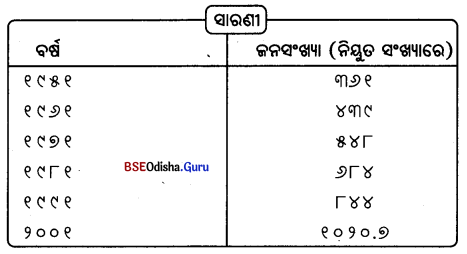
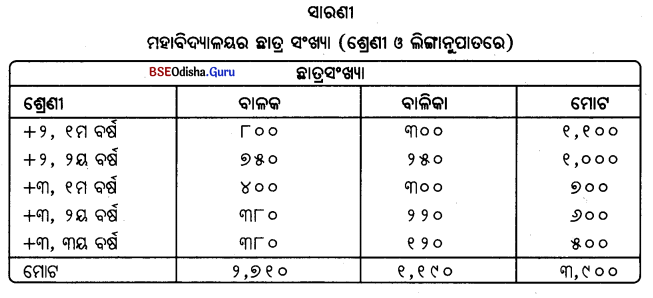
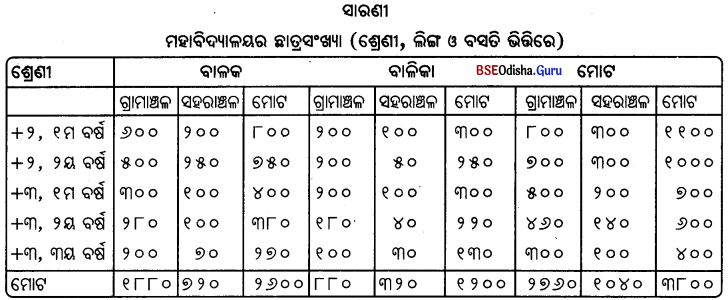
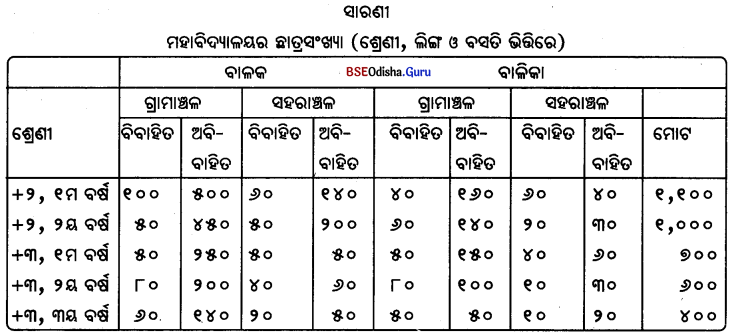
![]()
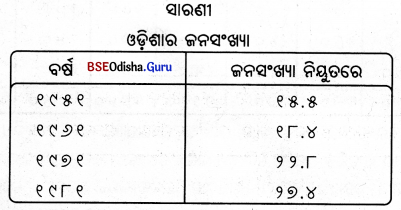
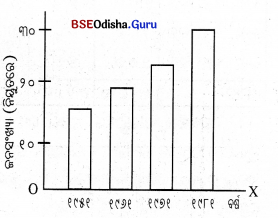
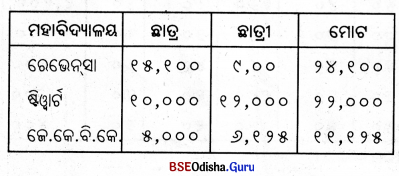
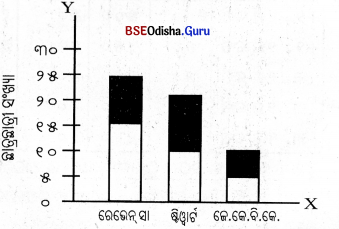
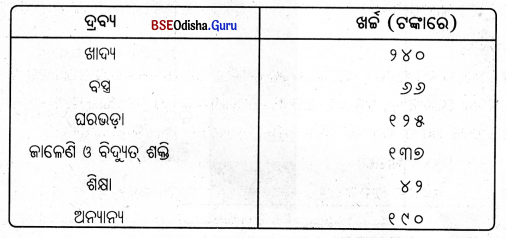
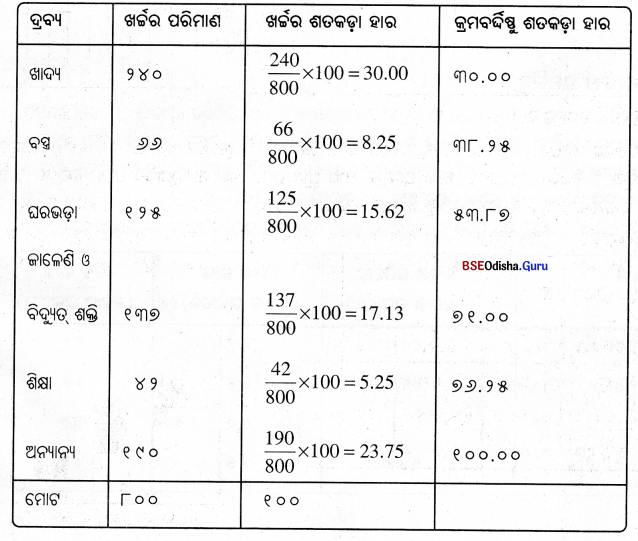
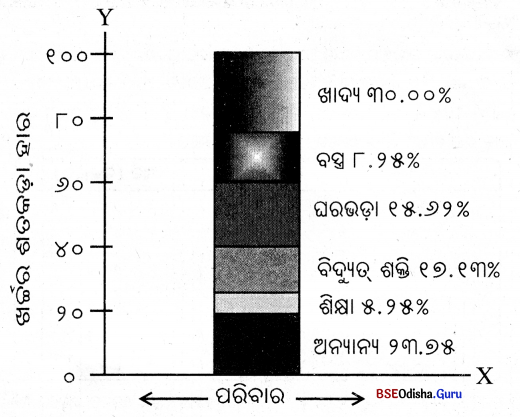
![]()
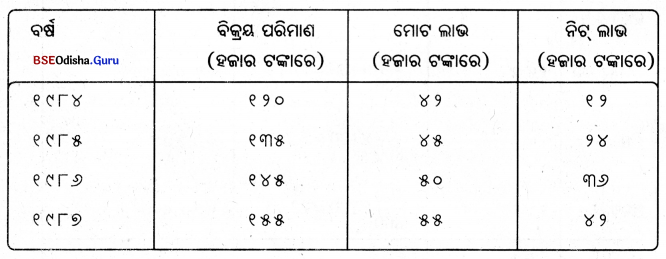
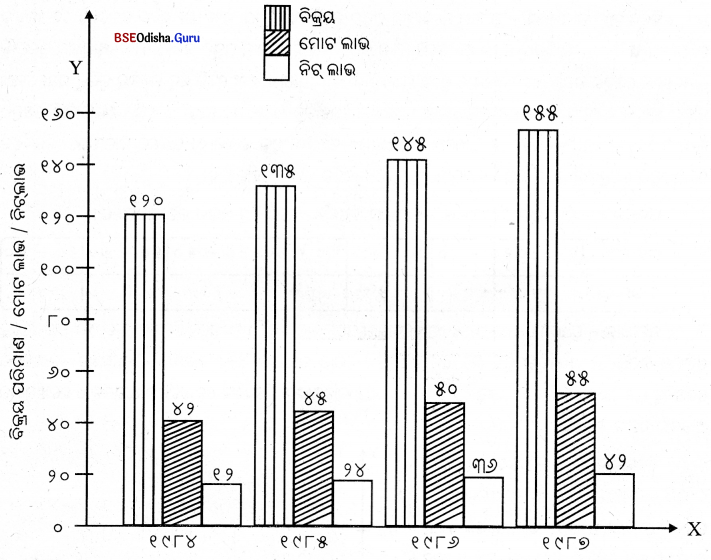
![]()

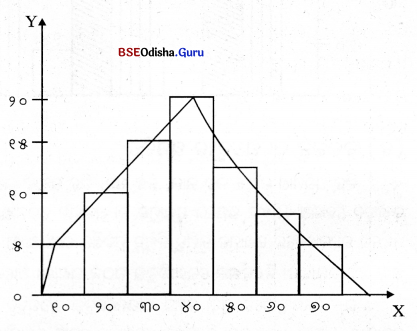

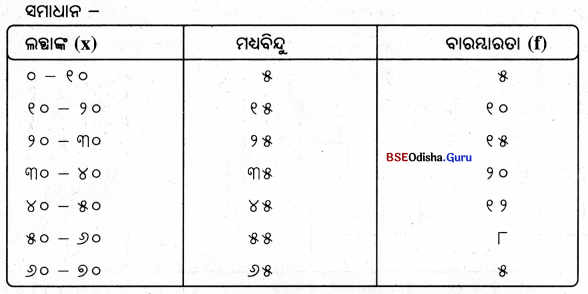
![]()

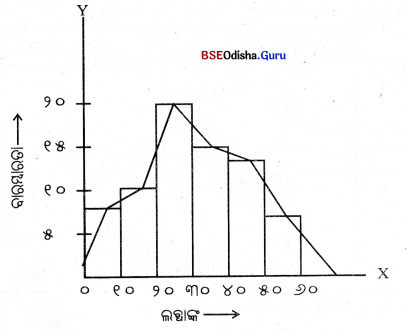

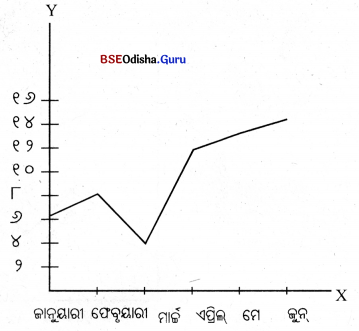

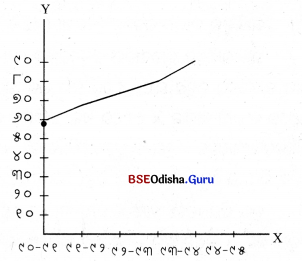
![]()

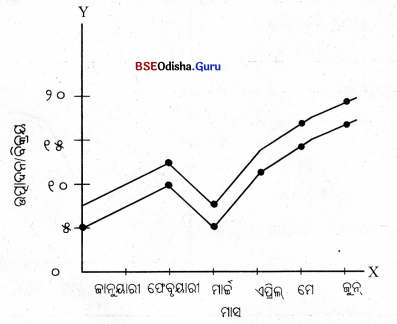

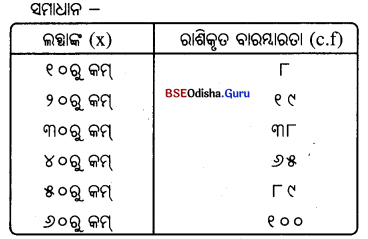
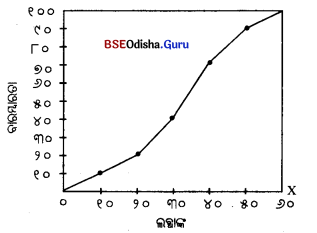
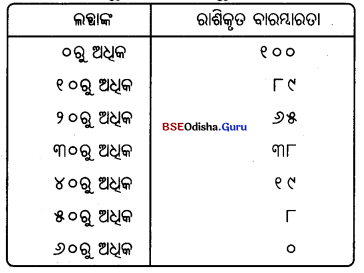
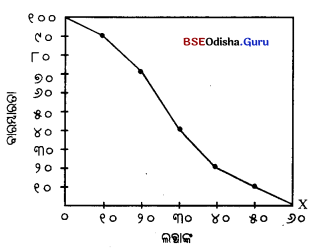
![]()

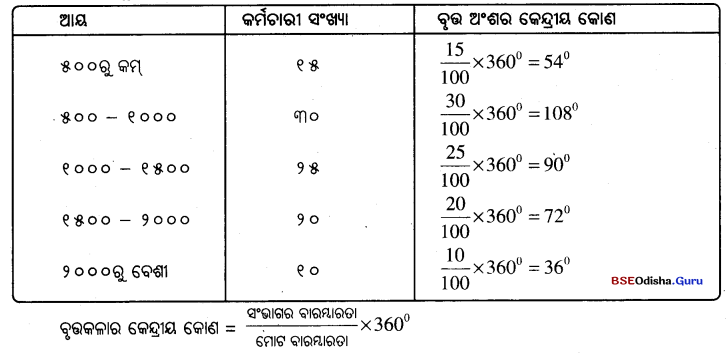
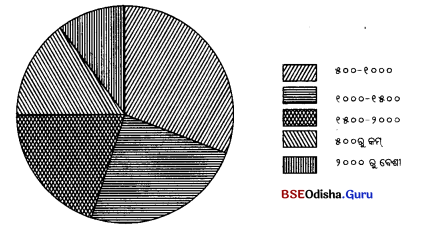
![]()

